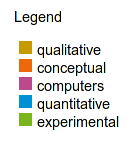abstracting
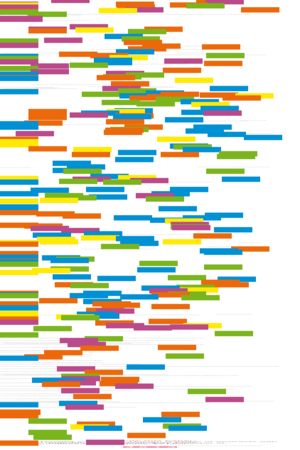
Human creation of abstracts with selected computer assistance tools
 Investigating the management information needs of academic heads of departments: a critical success factors approach
Investigating the management information needs of academic heads of departments: a critical success factors approach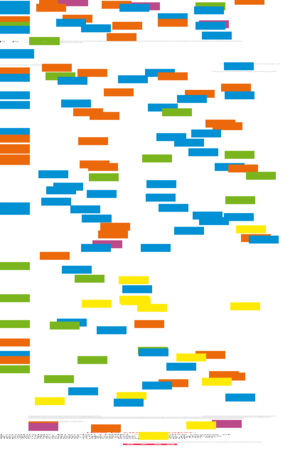 The management information needs of academic Heads of Department in universities in the United Kingdom
The management information needs of academic Heads of Department in universities in the United Kingdom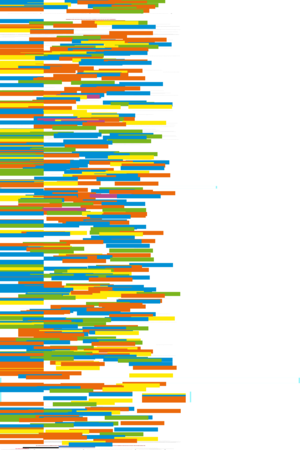 Benchmarking strategic engagement with information literacy in higher education: towards a working model.
Benchmarking strategic engagement with information literacy in higher education: towards a working model.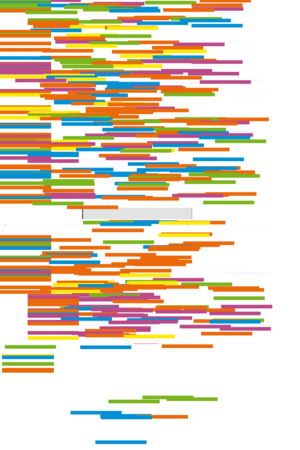 Freshmen's use of library electronic resources and self-efficacy
Freshmen's use of library electronic resources and self-efficacy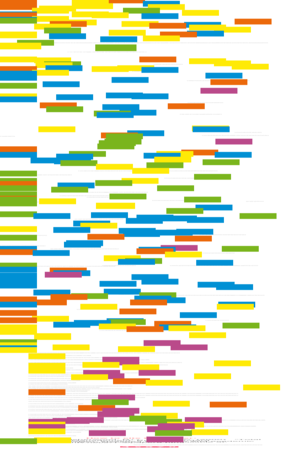 Total quality management, British Standard accreditation, Investors in People and academic libraries
Total quality management, British Standard accreditation, Investors in People and academic libraries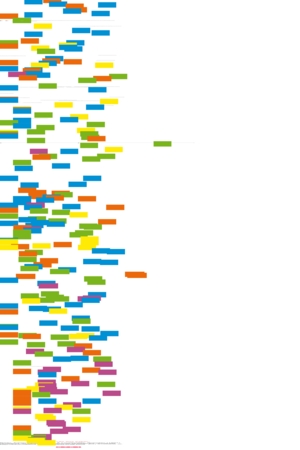 Towards an information provision strategy for university libraries in Ghana
Towards an information provision strategy for university libraries in Ghana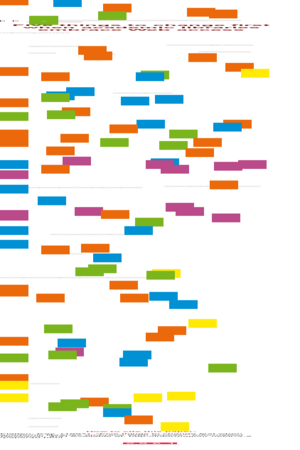 Five things to change first when academic libraries embrace Web access
Five things to change first when academic libraries embrace Web access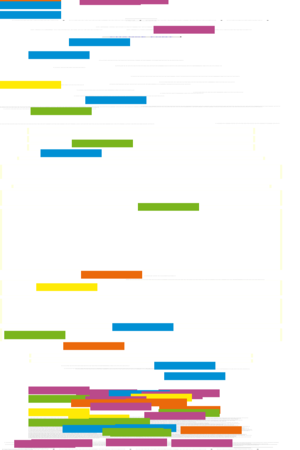 Comunicaci�n de conocimiento. �Habilidad de los profesores universitarios?
Comunicaci�n de conocimiento. �Habilidad de los profesores universitarios? Seeking relevance in academic information use
Seeking relevance in academic information use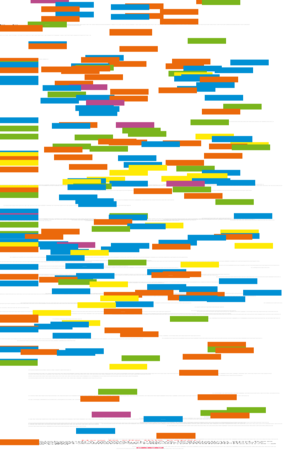 Library legislation and free access to information as new topics in library and information science education
Library legislation and free access to information as new topics in library and information science education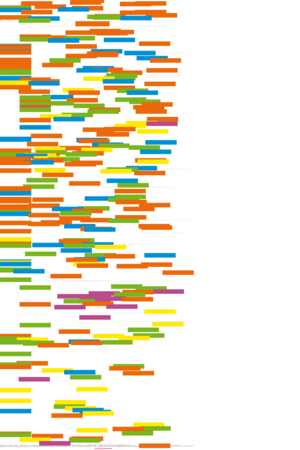 Designing Internet research assignments: building a framework for instructor collaboration
Designing Internet research assignments: building a framework for instructor collaboration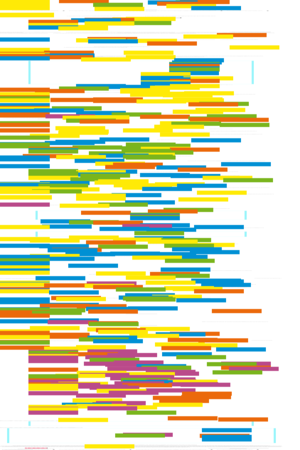 Generating and analysing data for applied research on emerging technologies: a grounded action learning approach
Generating and analysing data for applied research on emerging technologies: a grounded action learning approach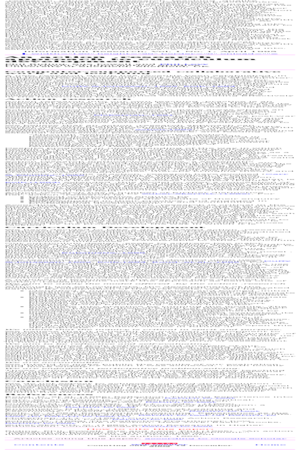 An action research approach to curriculum development
An action research approach to curriculum development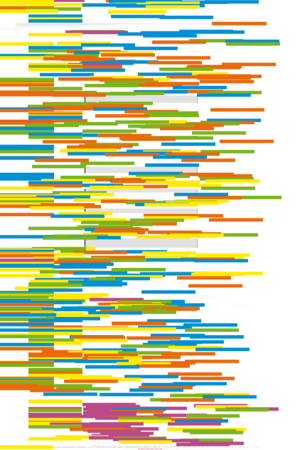 Recent trends in user studies: action research and qualitative methods
Recent trends in user studies: action research and qualitative methods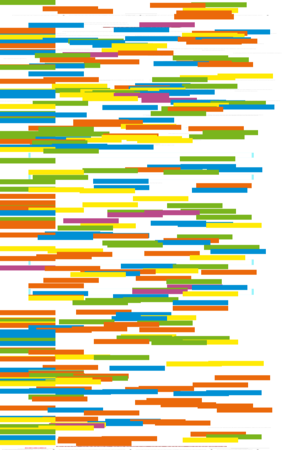 Activity systems, information sharing and the development of organizational knowledge in two Finnish firms: an exploratory study using Activity Theory
Activity systems, information sharing and the development of organizational knowledge in two Finnish firms: an exploratory study using Activity Theory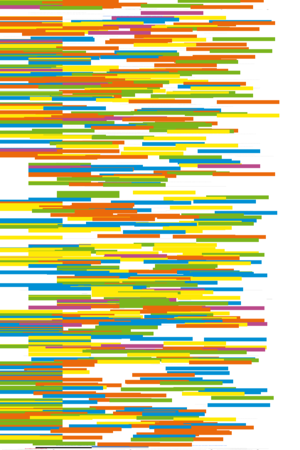 An activity-theory-based model to analyse Web application requirements
An activity-theory-based model to analyse Web application requirements Activity theory in information systems research and practice - theoretical underpinnings for an information systems development method
Activity theory in information systems research and practice - theoretical underpinnings for an information systems development method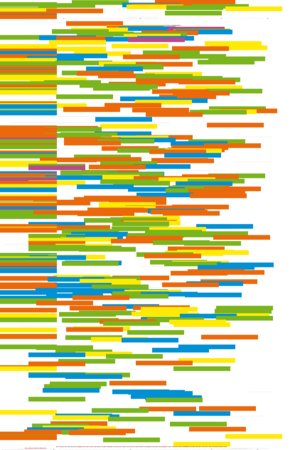 Building a foundation to study distributed information behaviour
Building a foundation to study distributed information behaviour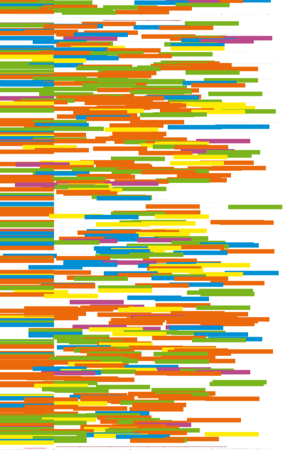 Everyday inclusive Web design: an activity perspective
Everyday inclusive Web design: an activity perspective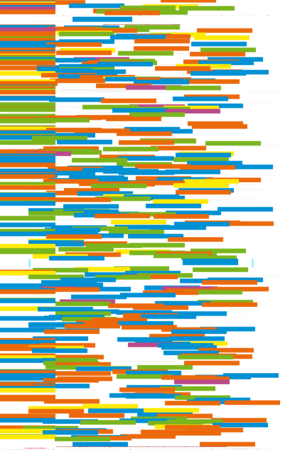 From activity to learning: using cultural historical activity theory to model school library programmes and practices
From activity to learning: using cultural historical activity theory to model school library programmes and practices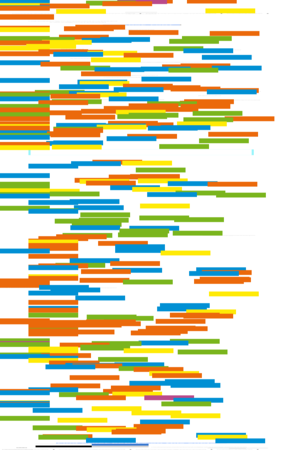 Information behaviour in research network building by relocated scholars in Swedish higher education: a report on a pilot project
Information behaviour in research network building by relocated scholars in Swedish higher education: a report on a pilot project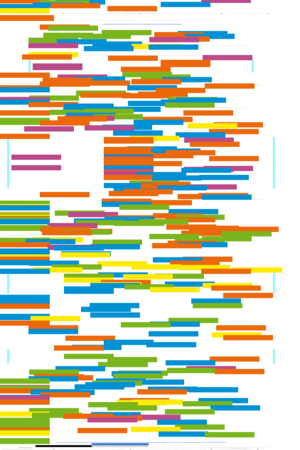 Information on the move: the use of mobile information systems by UK Police Forces
Information on the move: the use of mobile information systems by UK Police Forces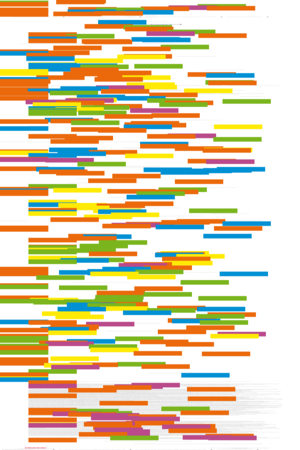 A re-examination of information seeking behaviour in the context of activity theory
A re-examination of information seeking behaviour in the context of activity theory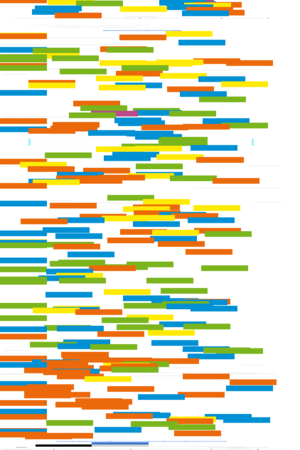 Tensions and contradictions in the information behaviour of Board members of a voluntary organization
Tensions and contradictions in the information behaviour of Board members of a voluntary organization Towards adaptive information systems: individual differences and hypermedia
Towards adaptive information systems: individual differences and hypermedia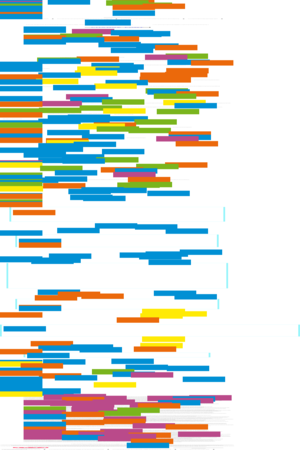 Information-seeking behaviour of Iranian extension managers and specialists
Information-seeking behaviour of Iranian extension managers and specialists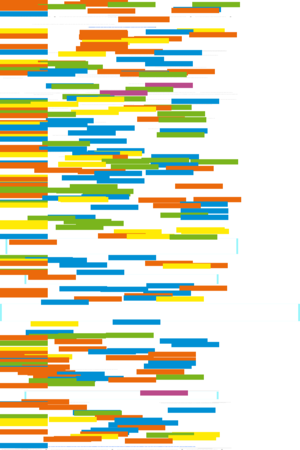 Agricultural information systems and communication networks: the case of dairy farmers in the Samsun province of Turkey
Agricultural information systems and communication networks: the case of dairy farmers in the Samsun province of Turkey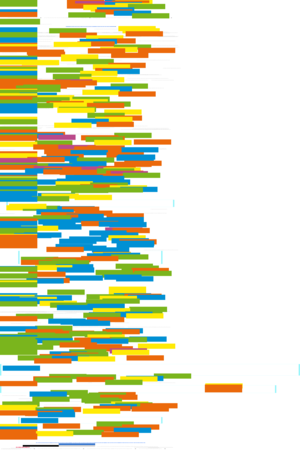 Information work analysis: an approach to research on information interactions and information behaviour in context
Information work analysis: an approach to research on information interactions and information behaviour in context Las revistas argentinas de Ciencias Antropológicas: visibilidad en bases de datos internacionales
Las revistas argentinas de Ciencias Antropológicas: visibilidad en bases de datos internacionales Where information is paramount: a mixed methods multi-disciplinary investigation of Australian online investors
Where information is paramount: a mixed methods multi-disciplinary investigation of Australian online investors Las revistas argentinas de Ciencias Antropológicas: visibilidad en bases de datos internacionales
Las revistas argentinas de Ciencias Antropológicas: visibilidad en bases de datos internacionales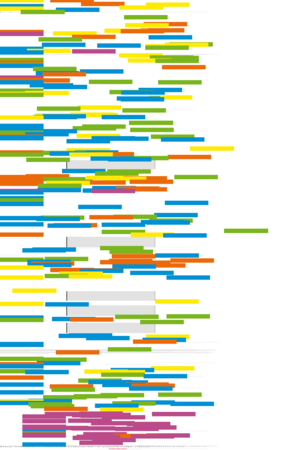 A bibliometric analysis of select information science print and electronic journals in the 1990s
A bibliometric analysis of select information science print and electronic journals in the 1990s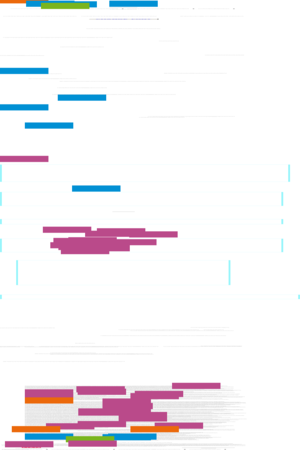 An�lisis bibliom�trico de la literatura cient�fica publicada en "Ciencia. Revista hispano-americana de ciencias puras y aplicadas" (1940-1974)
An�lisis bibliom�trico de la literatura cient�fica publicada en "Ciencia. Revista hispano-americana de ciencias puras y aplicadas" (1940-1974) A bibliometric study of the publication patterns of scientists in South Africa, 1992-96
A bibliometric study of the publication patterns of scientists in South Africa, 1992-96 Bibliometrics of electronic journals in information science,
Bibliometrics of electronic journals in information science,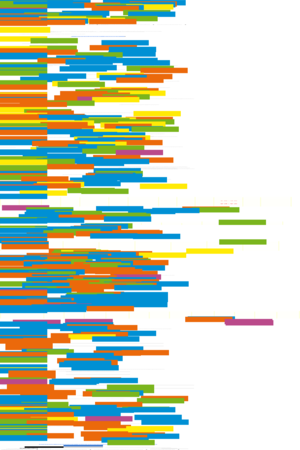 Comparative analysis of university-government-enterprise coauthorship networks in three scientific domains in the region of Madrid
Comparative analysis of university-government-enterprise coauthorship networks in three scientific domains in the region of Madrid Comunicaci�n de conocimiento. �Habilidad de los profesores universitarios?
Comunicaci�n de conocimiento. �Habilidad de los profesores universitarios? The evolution of recent research on Catalan literature through the production of PhD theses: a bibliometric and social network analysis.
The evolution of recent research on Catalan literature through the production of PhD theses: a bibliometric and social network analysis.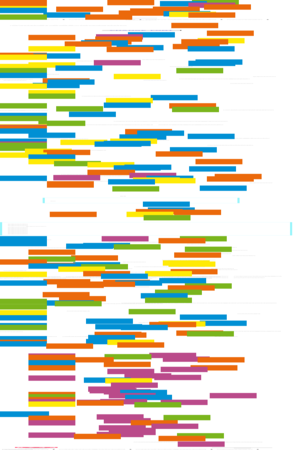 How human information behaviour researchers use each other's work: a basic citation analysis study.
How human information behaviour researchers use each other's work: a basic citation analysis study.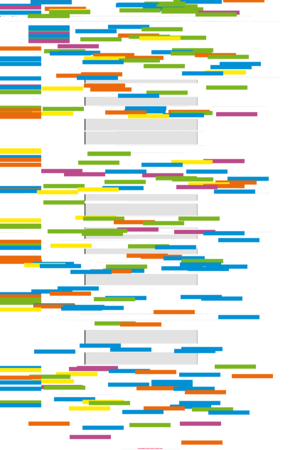 Intelligence obtained by applying data mining to a database of French theses on the subject of Brazil
Intelligence obtained by applying data mining to a database of French theses on the subject of Brazil Performance of Mexican scholarship holders in the production of scientific knowledge: from bibliometrics to science policy? (In Spanish: Desempe�o de becarios Mexicanos en la producci�n de conocimiento cientifico �de la bibliometria a la politica cientifica?)
Performance of Mexican scholarship holders in the production of scientific knowledge: from bibliometrics to science policy? (In Spanish: Desempe�o de becarios Mexicanos en la producci�n de conocimiento cientifico �de la bibliometria a la politica cientifica?)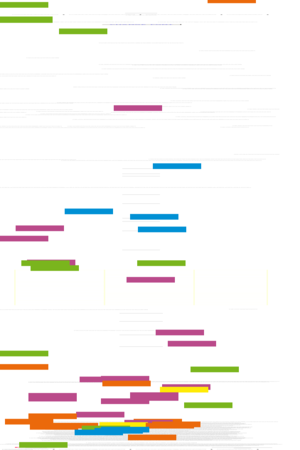 Producci�n latinoamericana en biblioteconom�a y documentaci�n en el Social Science Citation Index (SSCI) 1966-2003
Producci�n latinoamericana en biblioteconom�a y documentaci�n en el Social Science Citation Index (SSCI) 1966-2003 The publication activity of Region Västra Götaland: a bibliometric study of an administrative and political Swedish region during the period 1998-2006.
The publication activity of Region Västra Götaland: a bibliometric study of an administrative and political Swedish region during the period 1998-2006.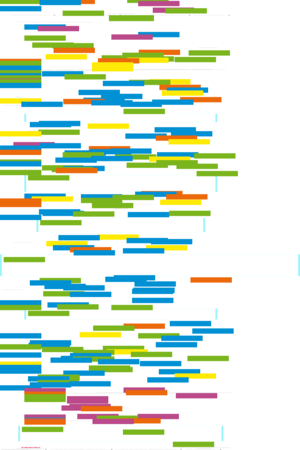 Study of interdisciplinarity in chemistry research based on the production of Puerto Rican scientists 1992-2001
Study of interdisciplinarity in chemistry research based on the production of Puerto Rican scientists 1992-2001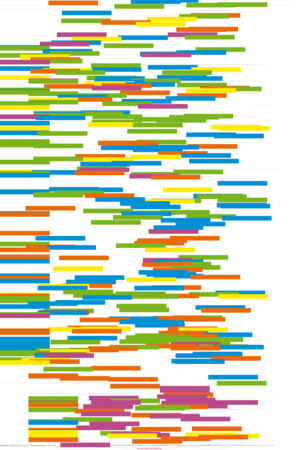 Access to electronic resources by visually impaired people
Access to electronic resources by visually impaired people Information seeking by blind and sight impaired citizens: an ecological study
Information seeking by blind and sight impaired citizens: an ecological study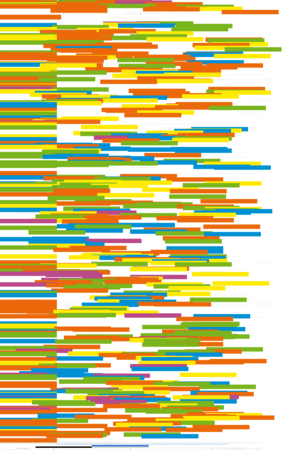 Scholarly blogging practice as situated genre: an analytical framework based on genre theory
Scholarly blogging practice as situated genre: an analytical framework based on genre theory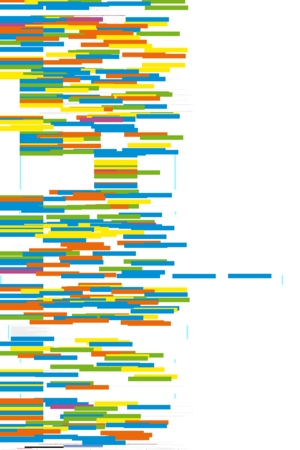 The use of Weblogs (blogs) by librarians and libraries to disseminate information
The use of Weblogs (blogs) by librarians and libraries to disseminate information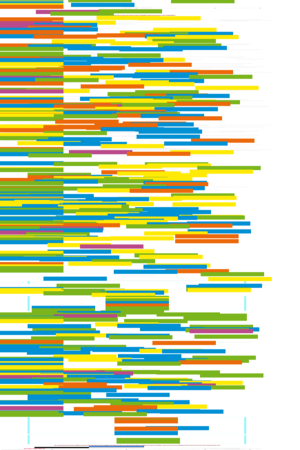 Which types of news story attract bloggers?
Which types of news story attract bloggers? The changing role of subjects connected with book history and publishing in the education of library specialists in Estonia
The changing role of subjects connected with book history and publishing in the education of library specialists in Estonia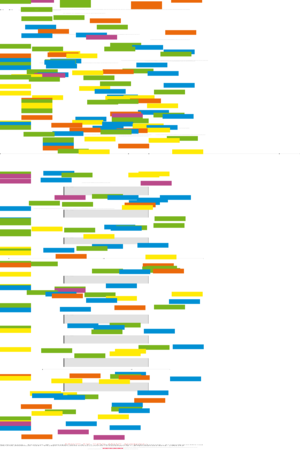 Publishing, bookselling and the World Wide Web
Publishing, bookselling and the World Wide Web Information needs and information competencies: a case study of the off-site supervision of financial institutions in Brazil
Information needs and information competencies: a case study of the off-site supervision of financial institutions in Brazil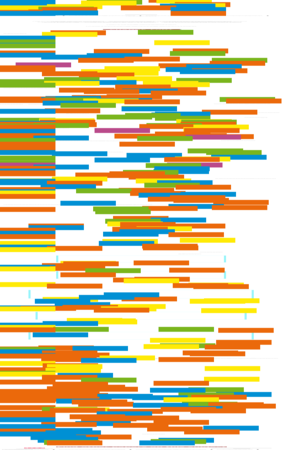 Information professionals in Brazil: core competencies and professional development
Information professionals in Brazil: core competencies and professional development The information professional's profile: an analysis of Brazilian job vacancies on the Internet
The information professional's profile: an analysis of Brazilian job vacancies on the Internet Intelligence obtained by applying data mining to a database of French theses on the subject of Brazil
Intelligence obtained by applying data mining to a database of French theses on the subject of Brazil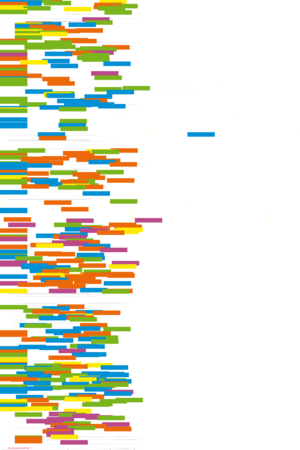 Combining ethnographic and clickstream data to identify user Web browsing strategies
Combining ethnographic and clickstream data to identify user Web browsing strategies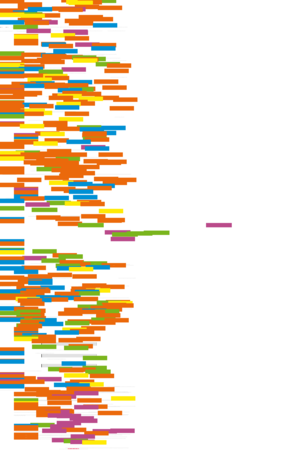 A literature-based approach to annotation and browsing of Web resources
A literature-based approach to annotation and browsing of Web resources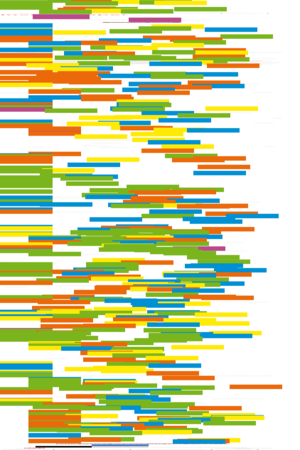 What is browsing—really? A model drawing from behavioural science research
What is browsing—really? A model drawing from behavioural science research Business information culture: a qualitative study of the information culture in the Finnish insurance industry
Business information culture: a qualitative study of the information culture in the Finnish insurance industry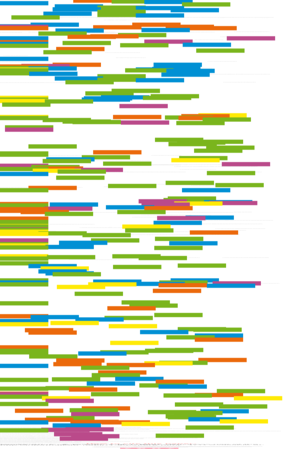 Business use of the World Wide Web
Business use of the World Wide Web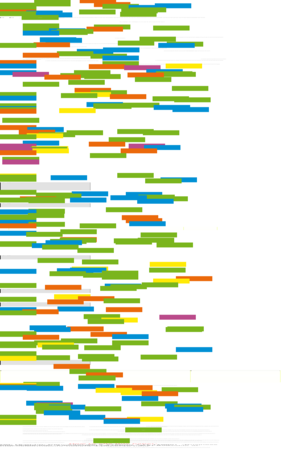 Business Use of The World Wide Web: a report on further investigations
Business Use of The World Wide Web: a report on further investigations Determining the information needs of small and medium-sized enterprises: a critical success factor analysis.
Determining the information needs of small and medium-sized enterprises: a critical success factor analysis.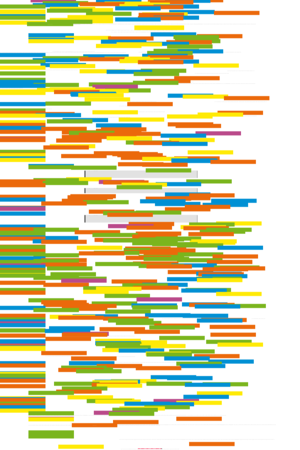 Finding competitive intelligence on Internet start-up companies: a study of secondary resource use and information-seeking processes
Finding competitive intelligence on Internet start-up companies: a study of secondary resource use and information-seeking processes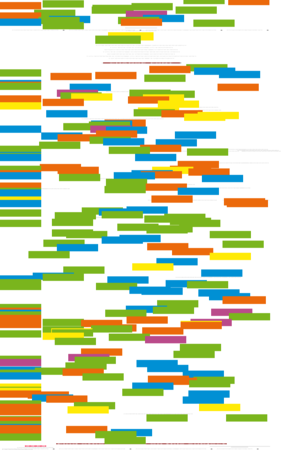 Information sharing between different groups: a qualitative study of information service to business in Japanese public libraries
Information sharing between different groups: a qualitative study of information service to business in Japanese public libraries Intranets in French firms: evolutions and revolutions.
Intranets in French firms: evolutions and revolutions. Link between contractually integrated retail entrepreneurs' working experience and their information gathering and interpreting styles
Link between contractually integrated retail entrepreneurs' working experience and their information gathering and interpreting styles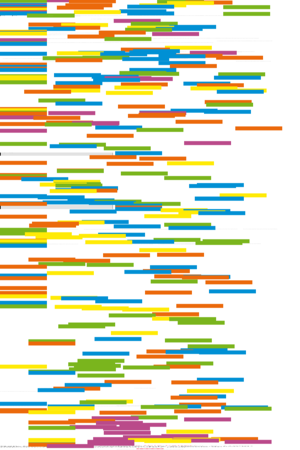 MISCO: A Conceptual Model for MIS Implementation in SMEs
MISCO: A Conceptual Model for MIS Implementation in SMEs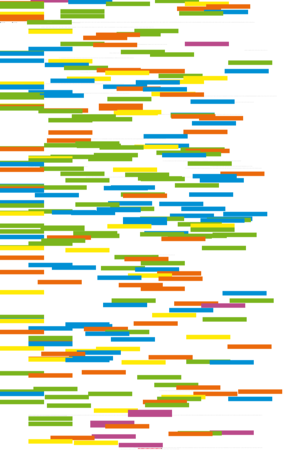 Strategy, information processing and scorecard models in the UK financial services sector
Strategy, information processing and scorecard models in the UK financial services sector Information seeking and use behaviour of economists and business analysts.
Information seeking and use behaviour of economists and business analysts.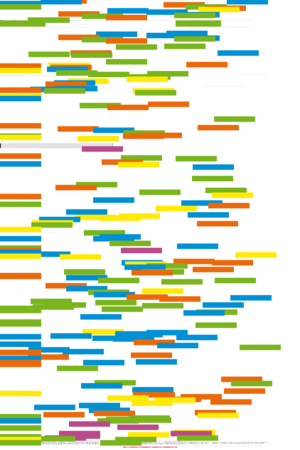 Scanning the business environment for information: a grounded theory approach
Scanning the business environment for information: a grounded theory approach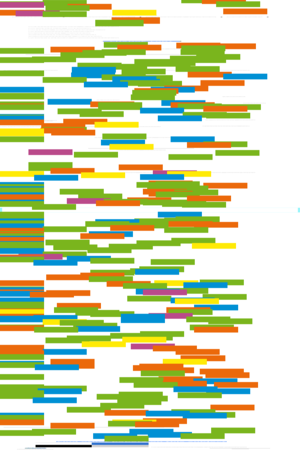 Satisfaction and perception of usefulness among users of business information services in Japan
Satisfaction and perception of usefulness among users of business information services in Japan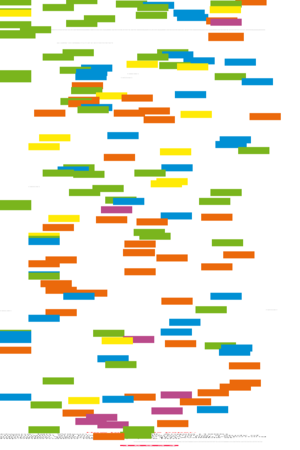 Information and business performance: a study of information systems and services in high-performing companies
Information and business performance: a study of information systems and services in high-performing companies Re-engineering change in higher education
Re-engineering change in higher education An examination of the health information seeking experiences of women in rural Ontario, Canada.
An examination of the health information seeking experiences of women in rural Ontario, Canada. Environmental scan on women's health information resources in Ontario, Canada
Environmental scan on women's health information resources in Ontario, Canada Studying digital library users over time: a follow-up survey of Early Canadiana Online
Studying digital library users over time: a follow-up survey of Early Canadiana Online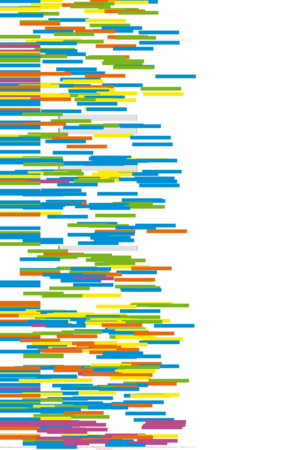 Use of historical documents in a digital world: comparisons with original materials and microfiche
Use of historical documents in a digital world: comparisons with original materials and microfiche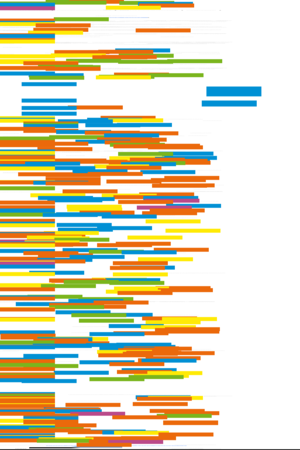 Information needs and information behaviour of patients and family members in a cancer palliative care setting
Information needs and information behaviour of patients and family members in a cancer palliative care setting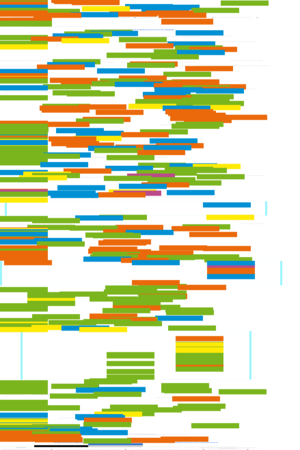 Knowledge acquisition and modification in students' exploratory Web search processes while career planning 376
Knowledge acquisition and modification in students' exploratory Web search processes while career planning 376 The evolution of recent research on Catalan literature through the production of PhD theses: a bibliometric and social network analysis.
The evolution of recent research on Catalan literature through the production of PhD theses: a bibliometric and social network analysis.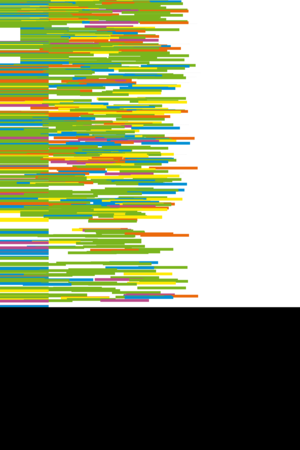 Accounting for users' inflated assessments of on-line catalogue search performance and usefulness: an experimental study
Accounting for users' inflated assessments of on-line catalogue search performance and usefulness: an experimental study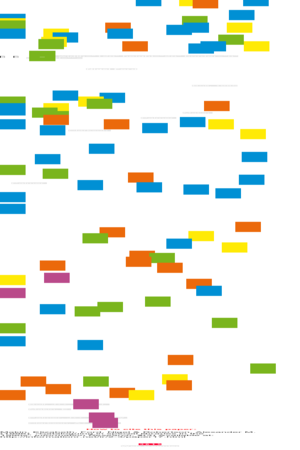 Cataloguing in special libraries in the 1990s
Cataloguing in special libraries in the 1990s What is the title of a Web page? A study of Webography practice
What is the title of a Web page? A study of Webography practice A study of the development of the digital ranch.
A study of the development of the digital ranch. Censura y tolerancia del material sexualmente expl�cito: la opini�n de los estudiantes universitarios de pregrado
Censura y tolerancia del material sexualmente expl�cito: la opini�n de los estudiantes universitarios de pregrado Molecular diversity techniques for chemical databases
Molecular diversity techniques for chemical databases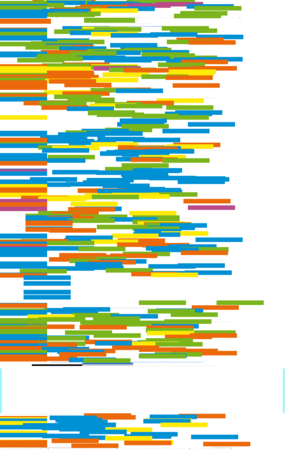 Extracting variant forms of chemical names for information retrieval
Extracting variant forms of chemical names for information retrieval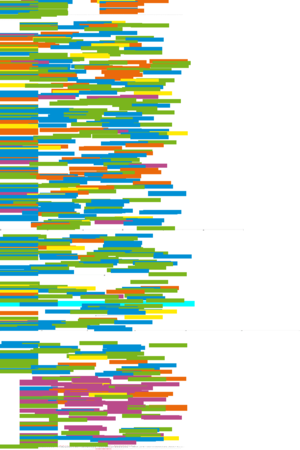 Textual and chemical information processing: different domains but similar algorithms
Textual and chemical information processing: different domains but similar algorithms Study of interdisciplinarity in chemistry research based on the production of Puerto Rican scientists 1992-2001
Study of interdisciplinarity in chemistry research based on the production of Puerto Rican scientists 1992-2001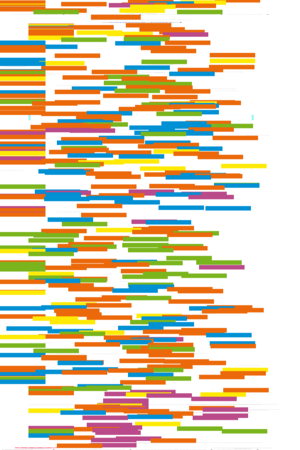 The development of children's Web searching skills - a non-linear model
The development of children's Web searching skills - a non-linear model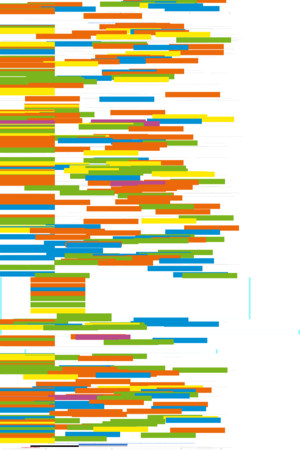 The impacts of Internet knowledge on college students' intention to continue to use the Internet
The impacts of Internet knowledge on college students' intention to continue to use the Internet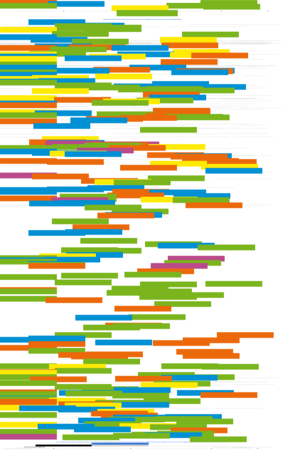 The mutual shaping of online and offline social relationships
The mutual shaping of online and offline social relationships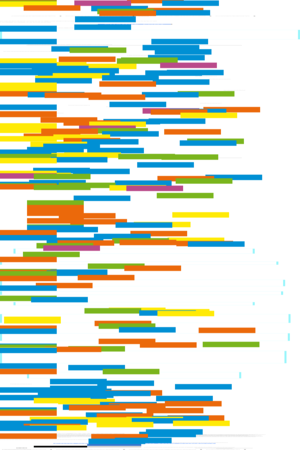 Perceived information needs and availability: results of a survey of small dairy farmers in Inner Mongolia
Perceived information needs and availability: results of a survey of small dairy farmers in Inner Mongolia Citation counts and the Research Assessment Exercise, part VI: Unit of assessment 67 (music)
Citation counts and the Research Assessment Exercise, part VI: Unit of assessment 67 (music)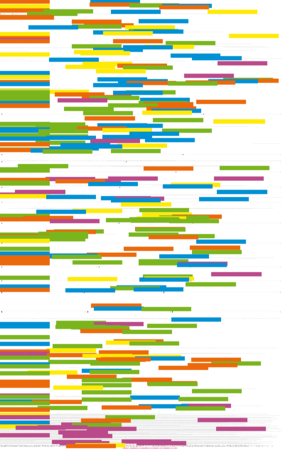 Electronic journals and scholarly communication: a citation and reference study.
Electronic journals and scholarly communication: a citation and reference study. Use of citation analysis to predict the outcome of the 2001 Research Assessment Exercise for Unit of Assessment (UoA) 61: Library and Information Management
Use of citation analysis to predict the outcome of the 2001 Research Assessment Exercise for Unit of Assessment (UoA) 61: Library and Information Management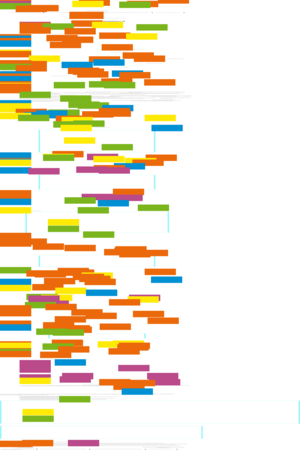 Web links as research indicators: analogues of citations?
Web links as research indicators: analogues of citations?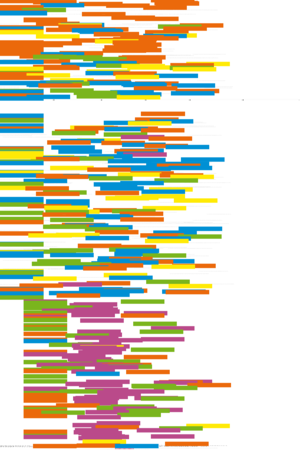 Do citation systems represent theories of truth?
Do citation systems represent theories of truth? Converting a controlled vocabulary into an ontology: the case of GEM
Converting a controlled vocabulary into an ontology: the case of GEM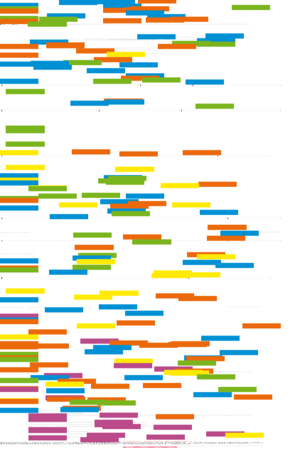 The impact of information on clinical decision-making by general medical practitioners
The impact of information on clinical decision-making by general medical practitioners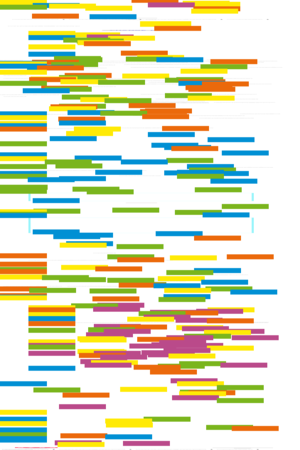 Variables associated with environmental scanning among clinicians at substance abuse treatment clinics
Variables associated with environmental scanning among clinicians at substance abuse treatment clinics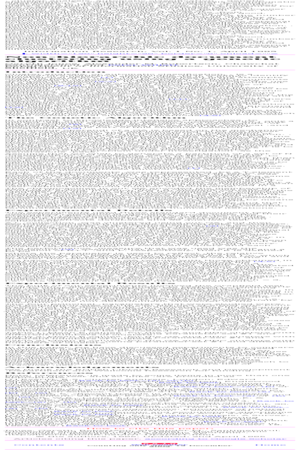 Non-hierarchic document clustering using a genetic algorithm.
Non-hierarchic document clustering using a genetic algorithm. Comparative analysis of university-government-enterprise coauthorship networks in three scientific domains in the region of Madrid
Comparative analysis of university-government-enterprise coauthorship networks in three scientific domains in the region of Madrid Validating coding for a theoretical model of information behaviour
Validating coding for a theoretical model of information behaviour Media credibility and cognitive authority. The case of seeking orienting information
Media credibility and cognitive authority. The case of seeking orienting information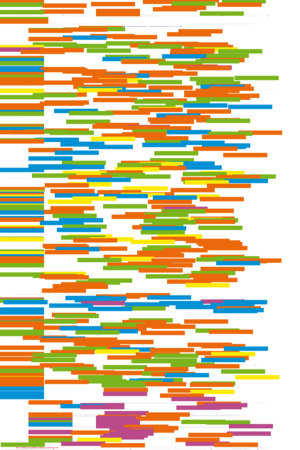 From information behaviour research to the design of information systems: the Cognitive Work Analysis framework
From information behaviour research to the design of information systems: the Cognitive Work Analysis framework The duality of knowledge
The duality of knowledge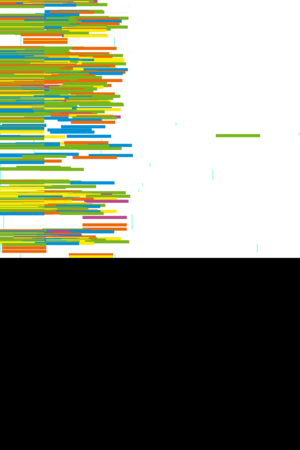 Searching Usenet for virtual communities of practice: using mixed methods to identify the constructs of Wenger's theory
Searching Usenet for virtual communities of practice: using mixed methods to identify the constructs of Wenger's theory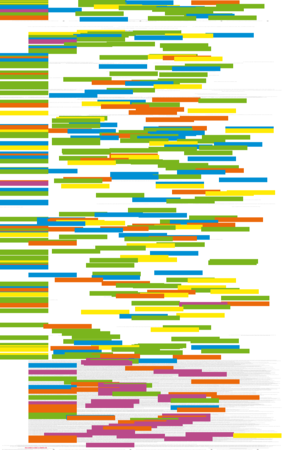 Community problem-solving framed as a distributed information use environment: bridging research and practice
Community problem-solving framed as a distributed information use environment: bridging research and practice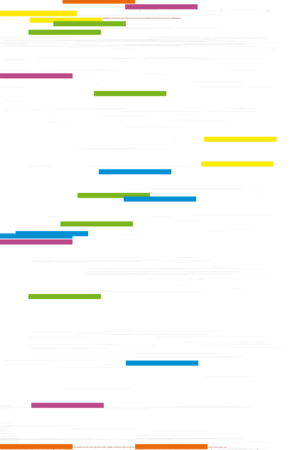 A social dynamics of the development of community network: problems raised by a case of community network development.
A social dynamics of the development of community network: problems raised by a case of community network development.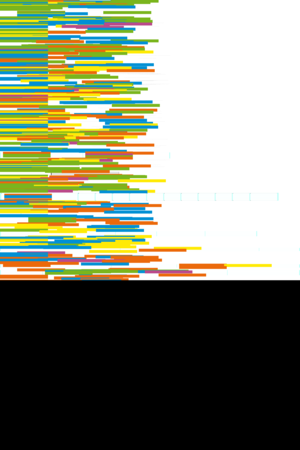 Telecentres and the provision of community based access to electronic information in everyday life in the UK
Telecentres and the provision of community based access to electronic information in everyday life in the UK Human creation of abstracts with selected computer assistance tools
Human creation of abstracts with selected computer assistance tools The role of computer-mediated communication in the research process of music scholars: an exploratory investigation
The role of computer-mediated communication in the research process of music scholars: an exploratory investigation Small worlds, lifeworlds, and information: the ramifications of the information behaviour of social groups in public policy and the public sphere
Small worlds, lifeworlds, and information: the ramifications of the information behaviour of social groups in public policy and the public sphere Scholarly communication in transition: computer scientists' information behaviour over twenty years
Scholarly communication in transition: computer scientists' information behaviour over twenty years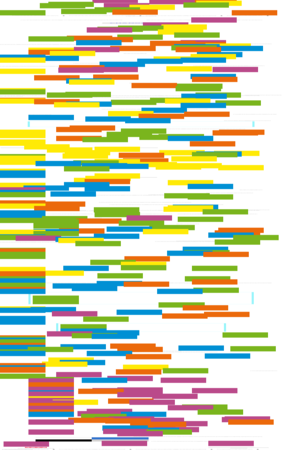 Towards formal evaluation of collaborative work
Towards formal evaluation of collaborative work Rhythms of being at ISIC - understanding the place of the ISIC conferences in information seeking research
Rhythms of being at ISIC - understanding the place of the ISIC conferences in information seeking research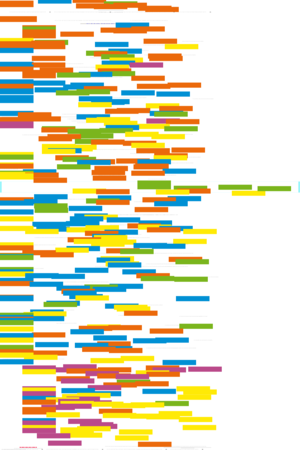 The applicability of constructivist user studies: how can constructivist inquiry inform service providers and systems designers?
The applicability of constructivist user studies: how can constructivist inquiry inform service providers and systems designers? An action research approach to curriculum development
An action research approach to curriculum development Gender and learning attitudes in using Web-based science lessons
Gender and learning attitudes in using Web-based science lessons Hypermedia as an experiential learning tool: a theoretical model
Hypermedia as an experiential learning tool: a theoretical model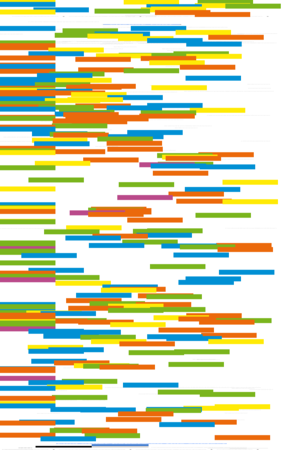 The social construction of the world of gay and lesbian people and their information behaviour
The social construction of the world of gay and lesbian people and their information behaviour Critical theory as a foundation for pragmatic information systems design
Critical theory as a foundation for pragmatic information systems design Finding competitive intelligence on Internet start-up companies: a study of secondary resource use and information-seeking processes
Finding competitive intelligence on Internet start-up companies: a study of secondary resource use and information-seeking processes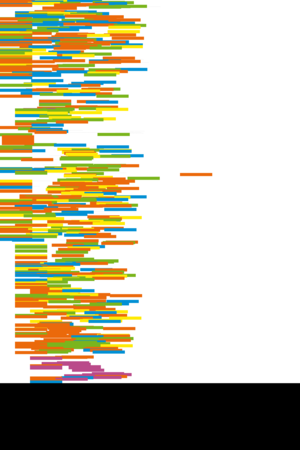 Observing documentary reading by verbal protocol
Observing documentary reading by verbal protocol The role of computer-mediated communication in the research process of music scholars: an exploratory investigation
The role of computer-mediated communication in the research process of music scholars: an exploratory investigation Speaking of users: on user discourses in the field of public libraries
Speaking of users: on user discourses in the field of public libraries Talking about the problem: a content analysis of pre-search interviews
Talking about the problem: a content analysis of pre-search interviews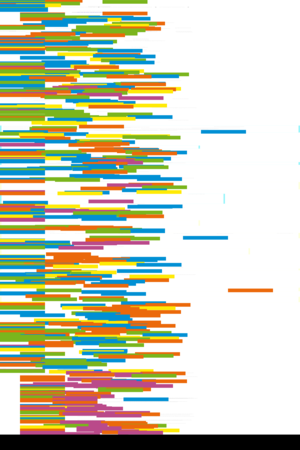 Web information seeking by pages: an observational study of moving and stopping
Web information seeking by pages: an observational study of moving and stopping What is this link doing here? Beginning a fine-grained process of identifying reasons for academic hyperlink creation
What is this link doing here? Beginning a fine-grained process of identifying reasons for academic hyperlink creation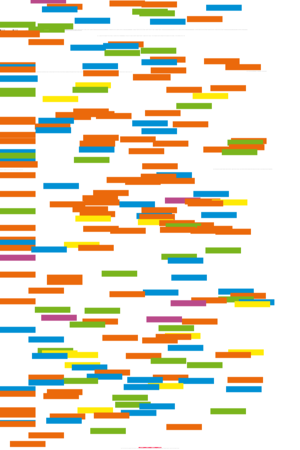 Focus on further education of librarians in Latvia
Focus on further education of librarians in Latvia Converting a controlled vocabulary into an ontology: the case of GEM
Converting a controlled vocabulary into an ontology: the case of GEM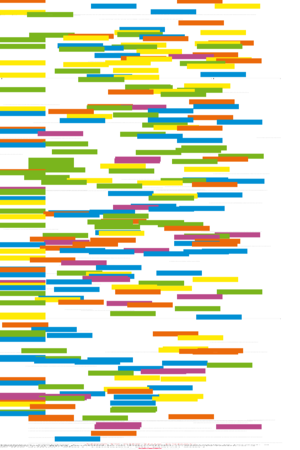 Copyright protection in Israel: a reality of being 'pushed into the corner'
Copyright protection in Israel: a reality of being 'pushed into the corner'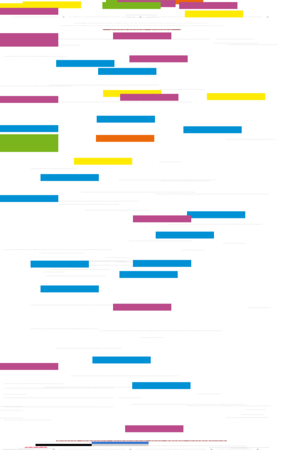 Las nuevas leyes de derecho de autor: ¿adecuadas para la preservación digital?
Las nuevas leyes de derecho de autor: ¿adecuadas para la preservación digital?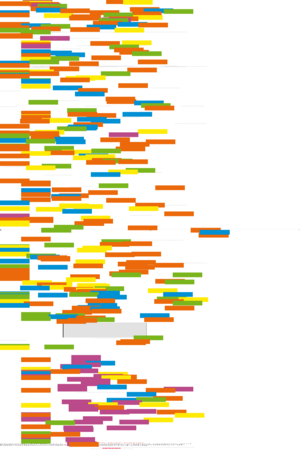 Critical realism and information systems research: why bother with philosophy?
Critical realism and information systems research: why bother with philosophy?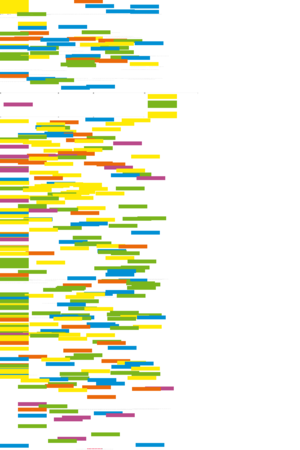 Critical Success Factors and information needs in Estonian industry
Critical Success Factors and information needs in Estonian industry Determining the information needs of small and medium-sized enterprises: a critical success factor analysis.
Determining the information needs of small and medium-sized enterprises: a critical success factor analysis. Determining organizational information needs: the Critical Success Factors approach.
Determining organizational information needs: the Critical Success Factors approach. Investigating the management information needs of academic heads of departments: a critical success factors approach
Investigating the management information needs of academic heads of departments: a critical success factors approach The management information needs of academic Heads of Department in universities in the United Kingdom
The management information needs of academic Heads of Department in universities in the United Kingdom Critical theory as a foundation for pragmatic information systems design
Critical theory as a foundation for pragmatic information systems design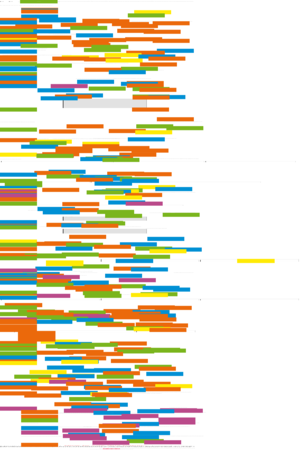 Compounds in dictionary-based cross-language information retrieval
Compounds in dictionary-based cross-language information retrieval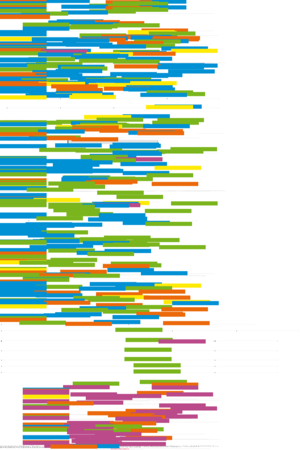 The RATF formula (Kwok's formula): exploiting average term frequency in cross-language retrieval
The RATF formula (Kwok's formula): exploiting average term frequency in cross-language retrieval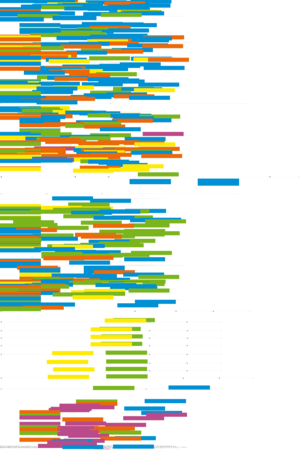 Targeted s-gram matching: a novel n-gram matching technique for cross- and mono-lingual word form variants
Targeted s-gram matching: a novel n-gram matching technique for cross- and mono-lingual word form variants An action research approach to curriculum development
An action research approach to curriculum development Agricultural information systems and communication networks: the case of dairy farmers in the Samsun province of Turkey
Agricultural information systems and communication networks: the case of dairy farmers in the Samsun province of Turkey Perceived information needs and availability: results of a survey of small dairy farmers in Inner Mongolia
Perceived information needs and availability: results of a survey of small dairy farmers in Inner Mongolia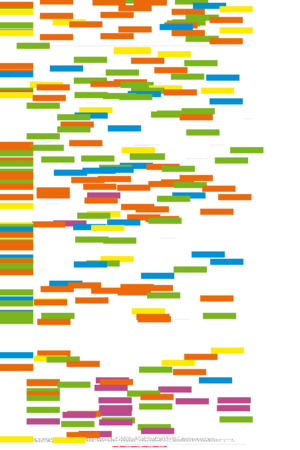 A selective review of knowledge-based approaches to database design.
A selective review of knowledge-based approaches to database design.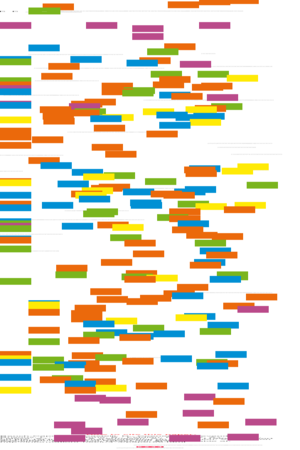 Report on the 1st International Workshop on Validation, Verification and Integrity Issues of Expert and Database Systems
Report on the 1st International Workshop on Validation, Verification and Integrity Issues of Expert and Database Systems Molecular diversity techniques for chemical databases
Molecular diversity techniques for chemical databases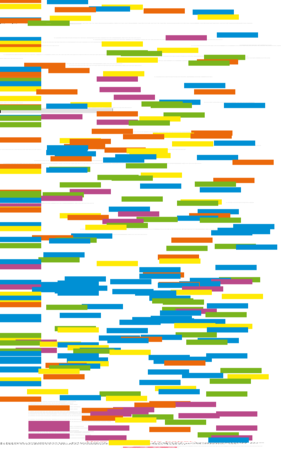 Discovering the hidden secrets in your data - the data mining approach to information.
Discovering the hidden secrets in your data - the data mining approach to information. Intelligence obtained by applying data mining to a database of French theses on the subject of Brazil
Intelligence obtained by applying data mining to a database of French theses on the subject of Brazil The impact of information on clinical decision-making by general medical practitioners
The impact of information on clinical decision-making by general medical practitioners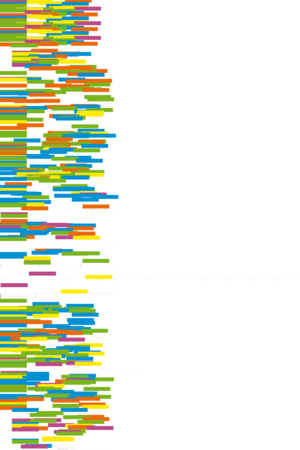 Information as a tool for management decision making: a case study of Singapore
Information as a tool for management decision making: a case study of Singapore The current state of decision support in Lithuanian business
The current state of decision support in Lithuanian business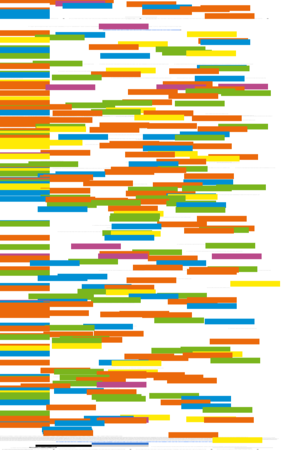 The influence of information behaviour on information sharing across cultural boundaries in development contexts
The influence of information behaviour on information sharing across cultural boundaries in development contexts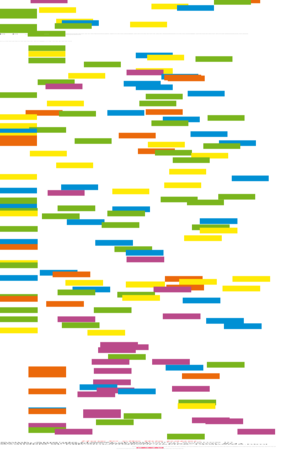 Information science in sustainable development and de-industrialization
Information science in sustainable development and de-industrialization An analysis of the use of electronic journals and commercial journal article collections through the FinELib portal
An analysis of the use of electronic journals and commercial journal article collections through the FinELib portal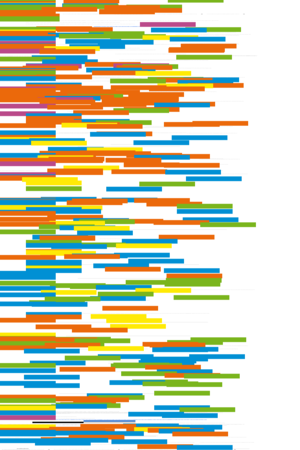 D-Fussion: a semantic selective dissemination of information service for the research community in digital libraries.
D-Fussion: a semantic selective dissemination of information service for the research community in digital libraries. Digital libraries and World Wide Web sites and page persistence.
Digital libraries and World Wide Web sites and page persistence.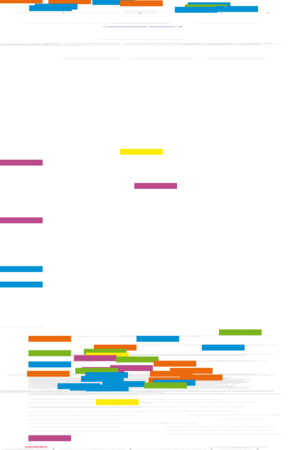 Dise�o y desarrollo de una plataforma digital de apoyo a la docencia y a la investigaci�n en Archivos Electr�nicos: un portal tem�tico
Dise�o y desarrollo de una plataforma digital de apoyo a la docencia y a la investigaci�n en Archivos Electr�nicos: un portal tem�tico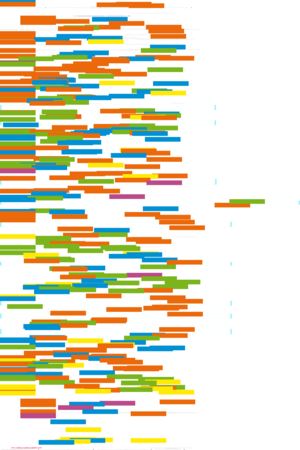 Discipline, availability of electronic resources and the use of Finnish National Electronic Library - FinELib.
Discipline, availability of electronic resources and the use of Finnish National Electronic Library - FinELib.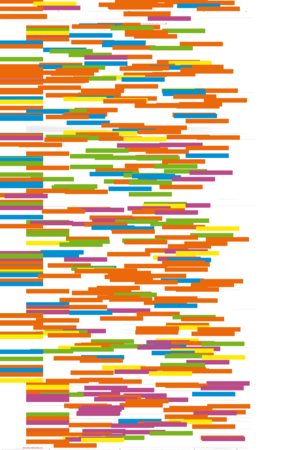 Language engineering for the Semantic Web: a digital library for endangered languages.
Language engineering for the Semantic Web: a digital library for endangered languages.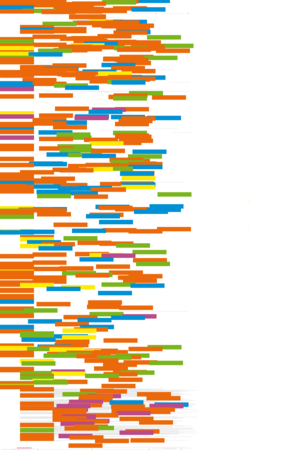 The Library Visit Study: user experiences at the virtual reference desk
The Library Visit Study: user experiences at the virtual reference desk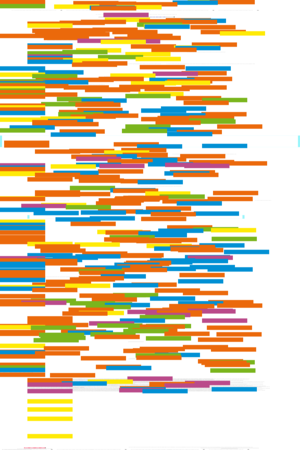 On identifying name equivalences in digital libraries
On identifying name equivalences in digital libraries Search features of digital libraries
Search features of digital libraries Studying digital library users over time: a follow-up survey of Early Canadiana Online
Studying digital library users over time: a follow-up survey of Early Canadiana Online Use of historical documents in a digital world: comparisons with original materials and microfiche
Use of historical documents in a digital world: comparisons with original materials and microfiche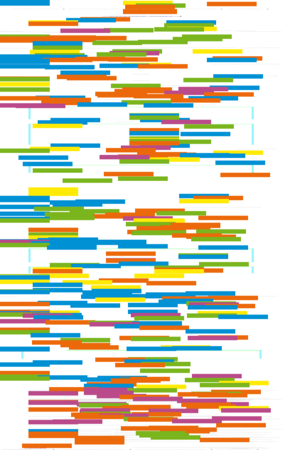 Three looks at users: a comparison of methods for studying digital library use
Three looks at users: a comparison of methods for studying digital library use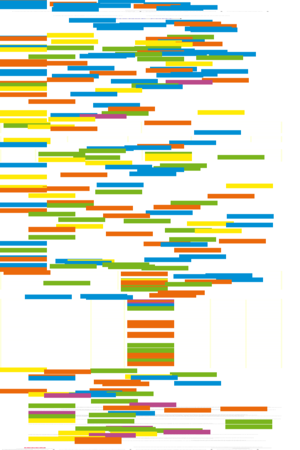 Users and user study methodology: the JUBILEE project
Users and user study methodology: the JUBILEE project Las nuevas leyes de derecho de autor: ¿adecuadas para la preservación digital?
Las nuevas leyes de derecho de autor: ¿adecuadas para la preservación digital? A study of the development of the digital ranch.
A study of the development of the digital ranch.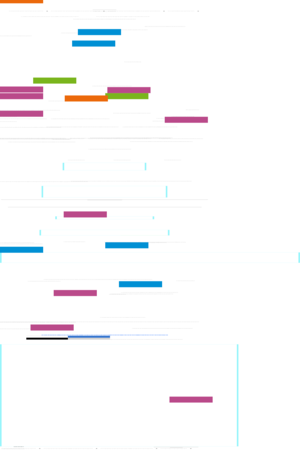 Implantaci�n de la Open Archives Initiative en Espa�a
Implantaci�n de la Open Archives Initiative en Espa�a Managing and evaluating digital
Managing and evaluating digital 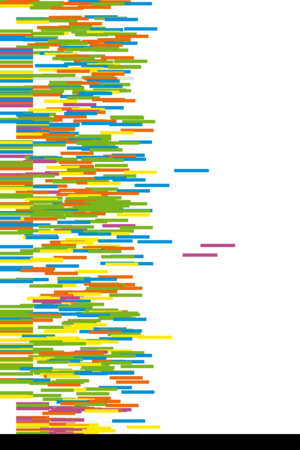 Inscription and interpretation of text: a cultural hermeneutic examination of virtual community
Inscription and interpretation of text: a cultural hermeneutic examination of virtual community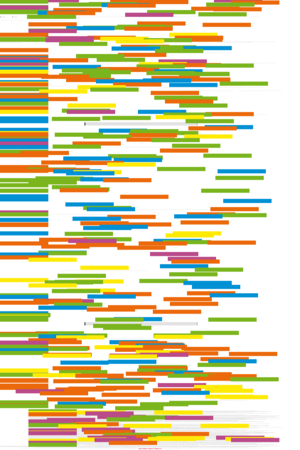 Affording a place: the role of persistent structures in social navigation
Affording a place: the role of persistent structures in social navigation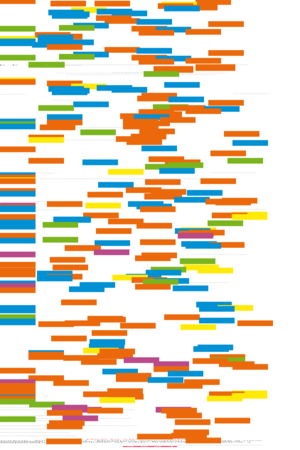 Distance education as a new possibility for librarians in Estonia
Distance education as a new possibility for librarians in Estonia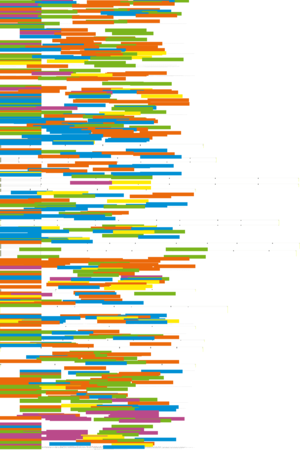 A social network study of the growth of community among distance learners
A social network study of the growth of community among distance learners Understanding on-line community: the affordances of virtual space
Understanding on-line community: the affordances of virtual space Building a foundation to study distributed information behaviour
Building a foundation to study distributed information behaviour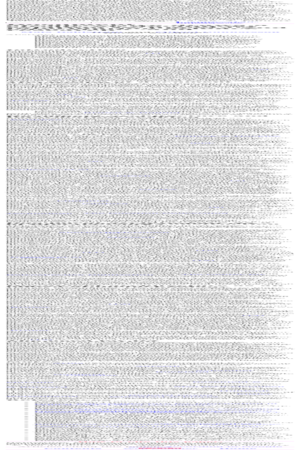 Document architecture draws a circle: on document architecture and its relation to library and information science education and research
Document architecture draws a circle: on document architecture and its relation to library and information science education and research Non-hierarchic document clustering using a genetic algorithm.
Non-hierarchic document clustering using a genetic algorithm.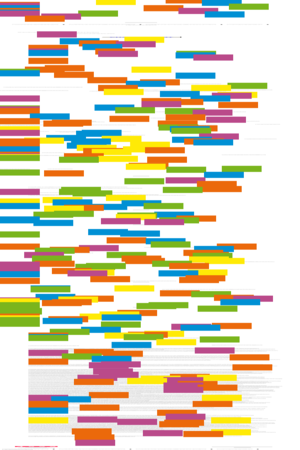 Constructing Web subject gateways using Dublin Core, the Resource Description Framework and Topic Maps
Constructing Web subject gateways using Dublin Core, the Resource Description Framework and Topic Maps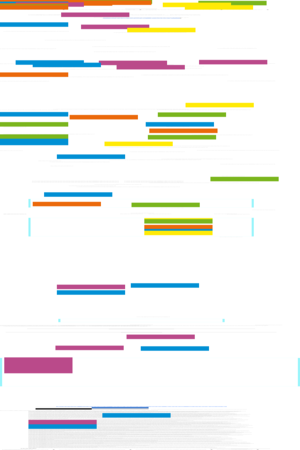 Criterios para la evaluaci�n de la usabilidad de los recursos educativos virtuales: un an�lisis desde la alfabetizaci�n en informaci�n
Criterios para la evaluaci�n de la usabilidad de los recursos educativos virtuales: un an�lisis desde la alfabetizaci�n en informaci�n A grounded theory study of the relationship between e-mail and burnout
A grounded theory study of the relationship between e-mail and burnout Information seeking and use behaviour of economists and business analysts.
Information seeking and use behaviour of economists and business analysts.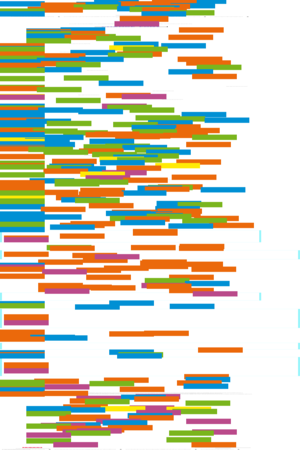 An empirical study of the effect of information technology expenditures on student achievement
An empirical study of the effect of information technology expenditures on student achievement Criterios para la evaluaci�n de la usabilidad de los recursos educativos virtuales: un an�lisis desde la alfabetizaci�n en informaci�n
Criterios para la evaluaci�n de la usabilidad de los recursos educativos virtuales: un an�lisis desde la alfabetizaci�n en informaci�n Developing educational hypermedia applications: a methodological approach
Developing educational hypermedia applications: a methodological approach Dise�o y desarrollo de una plataforma digital de apoyo a la docencia y a la investigaci�n en Archivos Electr�nicos: un portal tem�tico
Dise�o y desarrollo de una plataforma digital de apoyo a la docencia y a la investigaci�n en Archivos Electr�nicos: un portal tem�tico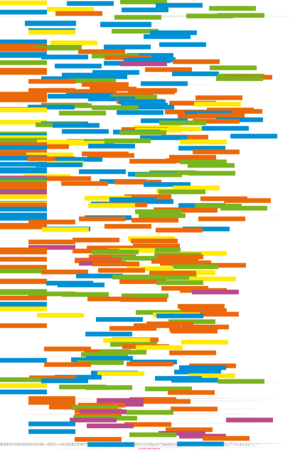 Embedding online information resources in Virtual Learning Environments: some implications for lecturers and librarians of the move towards delivering teaching in the online environment
Embedding online information resources in Virtual Learning Environments: some implications for lecturers and librarians of the move towards delivering teaching in the online environment Evaluation of the JISC Information Environment: student perceptions of services
Evaluation of the JISC Information Environment: student perceptions of services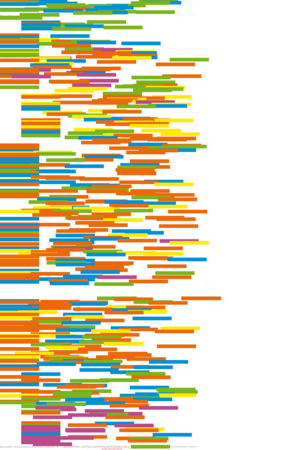 Experiencing information seeking and learning: a study of the interaction between two phenomena
Experiencing information seeking and learning: a study of the interaction between two phenomena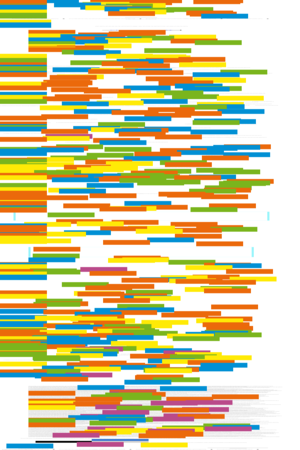 Fast surfing for availability or deep diving into quality - motivation and information seeking among middle and high school students
Fast surfing for availability or deep diving into quality - motivation and information seeking among middle and high school students From information to knowledge: charting and measuring changes in students' knowledge of a curriculum topic
From information to knowledge: charting and measuring changes in students' knowledge of a curriculum topic Gender and learning attitudes in using Web-based science lessons
Gender and learning attitudes in using Web-based science lessons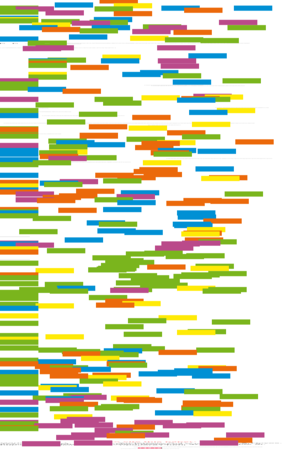 The Internet as a learning tool: a preliminary study
The Internet as a learning tool: a preliminary study Students' use of Web literacy skills and strategies: searching, reading and evaluating Web information
Students' use of Web literacy skills and strategies: searching, reading and evaluating Web information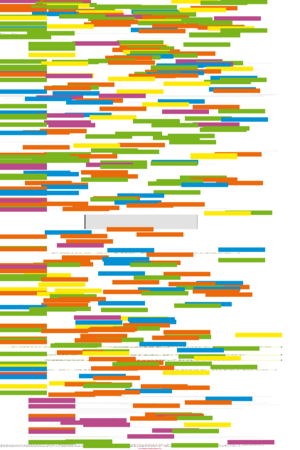 Task based design of a digital work environment (DWE) for an academic community
Task based design of a digital work environment (DWE) for an academic community A literature-based approach to annotation and browsing of Web resources
A literature-based approach to annotation and browsing of Web resources Access to electronic resources by visually impaired people
Access to electronic resources by visually impaired people Embedding online information resources in Virtual Learning Environments: some implications for lecturers and librarians of the move towards delivering teaching in the online environment
Embedding online information resources in Virtual Learning Environments: some implications for lecturers and librarians of the move towards delivering teaching in the online environment Evaluation of the JISC Information Environment: student perceptions of services
Evaluation of the JISC Information Environment: student perceptions of services Freshmen's use of library electronic resources and self-efficacy
Freshmen's use of library electronic resources and self-efficacy Library usage patterns in the electronic information environment
Library usage patterns in the electronic information environment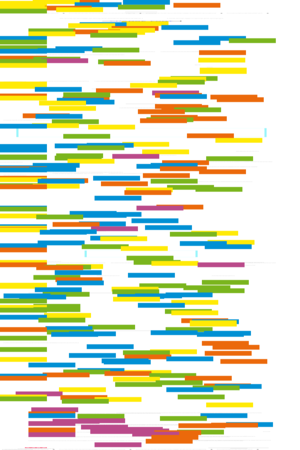 My e-journal - exploring the usefulness of personalized access to scholarly articles and services.
My e-journal - exploring the usefulness of personalized access to scholarly articles and services. Users and user study methodology: the JUBILEE project
Users and user study methodology: the JUBILEE project A bibliometric analysis of select information science print and electronic journals in the 1990s
A bibliometric analysis of select information science print and electronic journals in the 1990s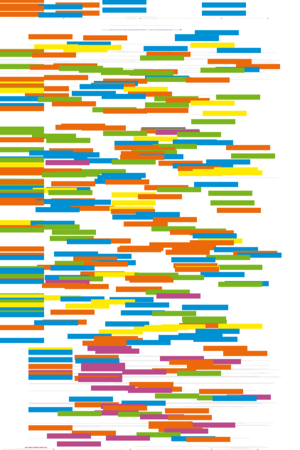 Beyond usage: understanding the use of electronic journals on the basis of information activity analysis
Beyond usage: understanding the use of electronic journals on the basis of information activity analysis Bibliometrics of electronic journals in information science,
Bibliometrics of electronic journals in information science, Electronic journals and scholarly communication: a citation and reference study.
Electronic journals and scholarly communication: a citation and reference study.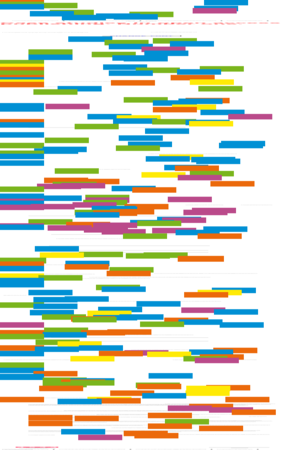 The Electronic Journal of Information Technology in Construction (ITcon): an open access journal using an un-paid, volunteer-based organization.
The Electronic Journal of Information Technology in Construction (ITcon): an open access journal using an un-paid, volunteer-based organization.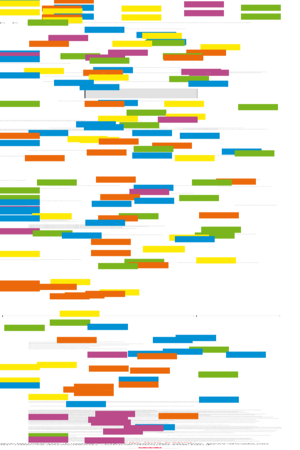 Lithuanian on-line periodicals on the World Wide Web
Lithuanian on-line periodicals on the World Wide Web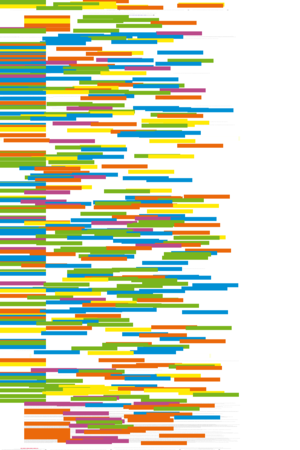 Open access to scientific publications - an analysis of the barriers to change
Open access to scientific publications - an analysis of the barriers to change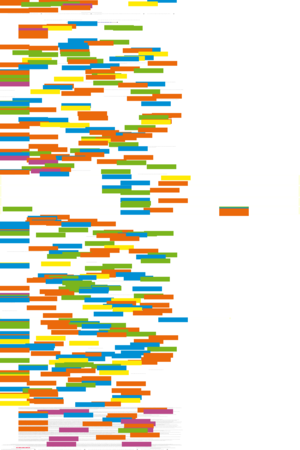 Supporting undergraduate learning through the collaborative promotion of e-journals by library and academic departments
Supporting undergraduate learning through the collaborative promotion of e-journals by library and academic departments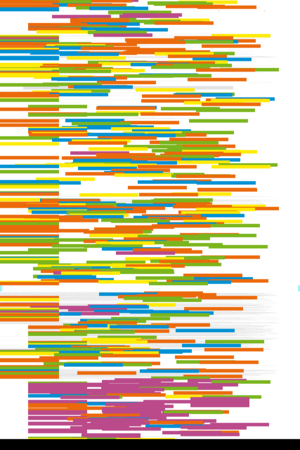 The use of genre analysis in the design of electronic meeting systems
The use of genre analysis in the design of electronic meeting systems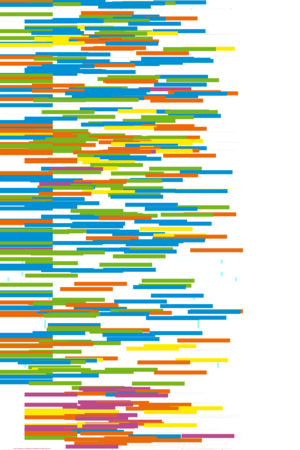 The complementary relationship between the Internet and traditional mass media: the case of online news and information
The complementary relationship between the Internet and traditional mass media: the case of online news and information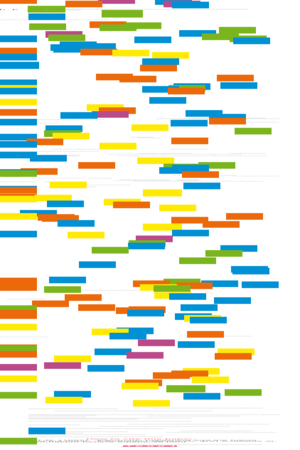 Electronic publishing and the future of the book
Electronic publishing and the future of the book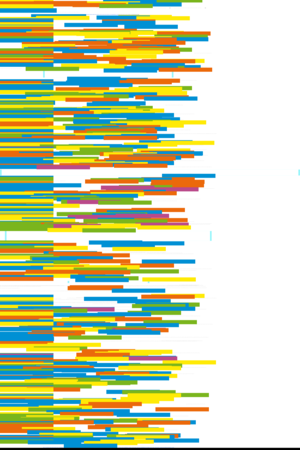 Electronic publishing in librarianship and information science in Latin America � a step towards development?
Electronic publishing in librarianship and information science in Latin America � a step towards development?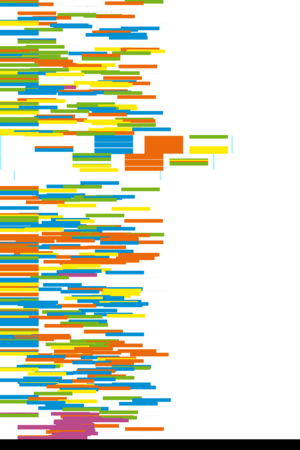 Online newspapers: the impact of culture, sex, and age on the perceived importance of specified quality factors
Online newspapers: the impact of culture, sex, and age on the perceived importance of specified quality factors Scholarly communication, scholarly publication and the status of emerging formats
Scholarly communication, scholarly publication and the status of emerging formats Supporting undergraduate learning through the collaborative promotion of e-journals by library and academic departments
Supporting undergraduate learning through the collaborative promotion of e-journals by library and academic departments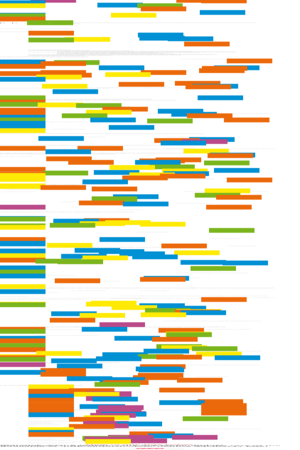 The lowest canonical denominator: electronic literary texts, and the role of the information professional
The lowest canonical denominator: electronic literary texts, and the role of the information professional Domain knowledge, search behaviour, and search effectiveness of engineering and science students: an exploratory study
Domain knowledge, search behaviour, and search effectiveness of engineering and science students: an exploratory study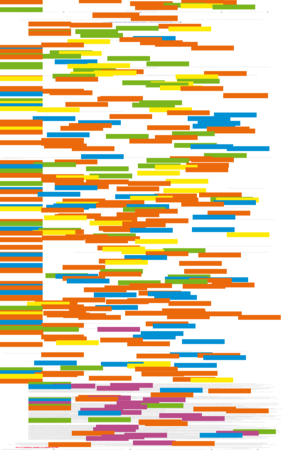 Information seeking and students studying for professional careers: the cases of engineering and law students in Ireland
Information seeking and students studying for professional careers: the cases of engineering and law students in Ireland Environmental scan on women's health information resources in Ontario, Canada
Environmental scan on women's health information resources in Ontario, Canada Environmental scanning as information seeking and organizational learning
Environmental scanning as information seeking and organizational learning Factors influencing environmental scanning in the organizational context
Factors influencing environmental scanning in the organizational context Finding competitive intelligence on Internet start-up companies: a study of secondary resource use and information-seeking processes
Finding competitive intelligence on Internet start-up companies: a study of secondary resource use and information-seeking processes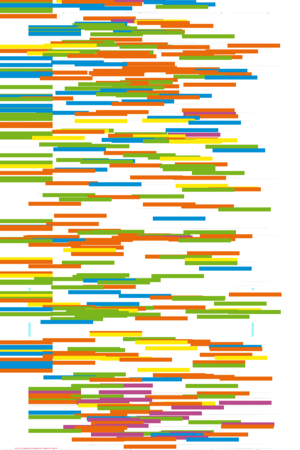 Environmental scanning: how developed is information acquisition in Western European companies?
Environmental scanning: how developed is information acquisition in Western European companies? Intelligent agent appropriation in the tracking phase of an environmental scanning process: a case study of a French trade union
Intelligent agent appropriation in the tracking phase of an environmental scanning process: a case study of a French trade union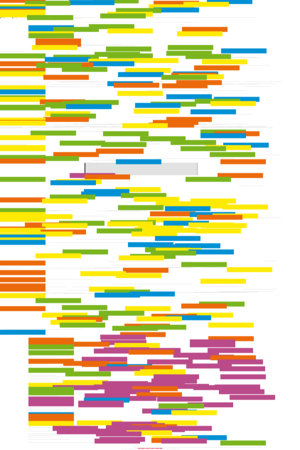 Scanning and vicarious learning from adverse events in health care
Scanning and vicarious learning from adverse events in health care Scanning the business external environment for information: evidence from Greece
Scanning the business external environment for information: evidence from Greece Scanning the business environment for information: a grounded theory approach
Scanning the business environment for information: a grounded theory approach Variables associated with environmental scanning among clinicians at substance abuse treatment clinics
Variables associated with environmental scanning among clinicians at substance abuse treatment clinics The changing role of subjects connected with book history and publishing in the education of library specialists in Estonia
The changing role of subjects connected with book history and publishing in the education of library specialists in Estonia Critical Success Factors and information needs in Estonian industry
Critical Success Factors and information needs in Estonian industry Distance education as a new possibility for librarians in Estonia
Distance education as a new possibility for librarians in Estonia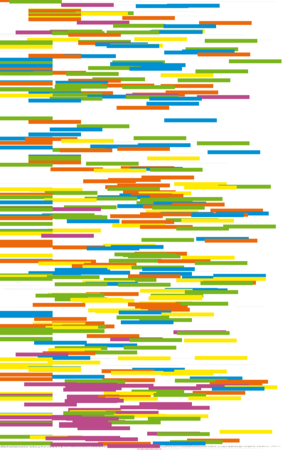 Ethnomethodology and the study of online communities: exploring the cyber streets
Ethnomethodology and the study of online communities: exploring the cyber streets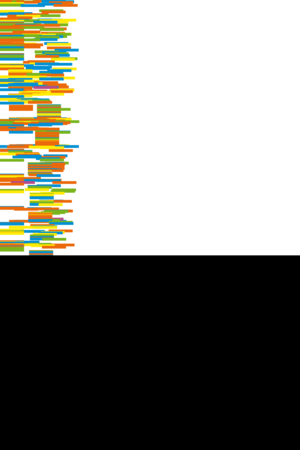 Archives, libraries and museums as communicators of memory in European Union projects.
Archives, libraries and museums as communicators of memory in European Union projects.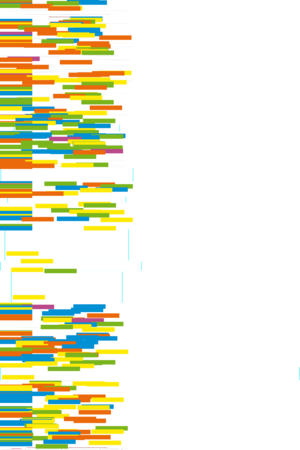 Diffusion and usage patterns of Internet services in the European Union
Diffusion and usage patterns of Internet services in the European Union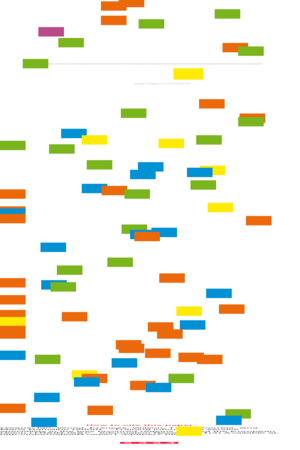 Training information services specialists in the less-favoured regions of the European Union (TRAIN-ISS)
Training information services specialists in the less-favoured regions of the European Union (TRAIN-ISS)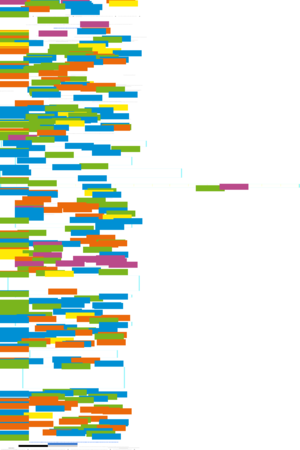 Analysis of the similarity of the responses of Web search engines to user queries: a user perspective
Analysis of the similarity of the responses of Web search engines to user queries: a user perspective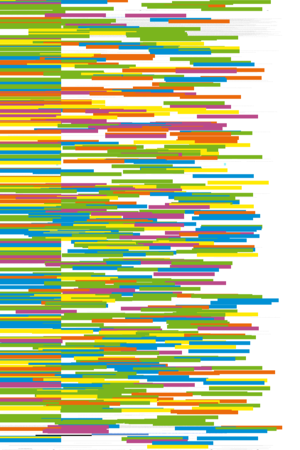 Evaluating shared workspace performance using human information processing models
Evaluating shared workspace performance using human information processing models Perceived difficulty as a determinant of Web search success
Perceived difficulty as a determinant of Web search success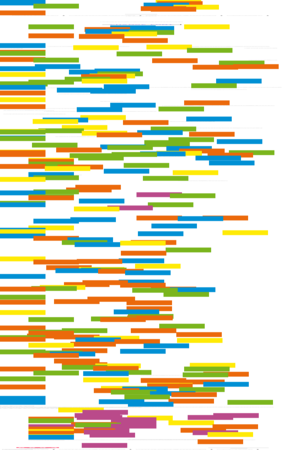 Enthusiastic, realistic and critical: discourses of Internet use in the context of everyday life information seeking
Enthusiastic, realistic and critical: discourses of Internet use in the context of everyday life information seeking Household information practices: how and why householders process and manage information
Household information practices: how and why householders process and manage information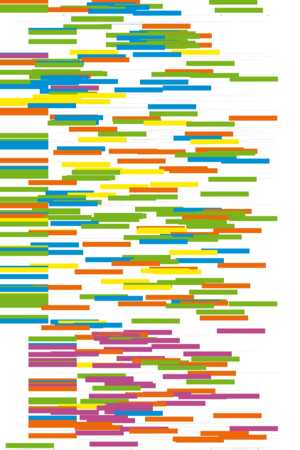 The role of information in a lifetime process – a model of weight maintenance by women over long time periods
The role of information in a lifetime process – a model of weight maintenance by women over long time periods Telecentres and the provision of community based access to electronic information in everyday life in the UK
Telecentres and the provision of community based access to electronic information in everyday life in the UK Selected results from a large study of Web searching: the Excite study
Selected results from a large study of Web searching: the Excite study Hypermedia as an experiential learning tool: a theoretical model
Hypermedia as an experiential learning tool: a theoretical model Report on the 1st International Workshop on Validation, Verification and Integrity Issues of Expert and Database Systems
Report on the 1st International Workshop on Validation, Verification and Integrity Issues of Expert and Database Systems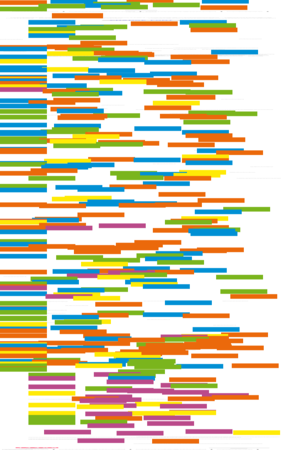 Information behaviour of migrant Hispanic farm workers and their families in the Pacific Northwest
Information behaviour of migrant Hispanic farm workers and their families in the Pacific Northwest Analysis of information sources representation for financial product design: new perspectives for information seeking and use behaviour.
Analysis of information sources representation for financial product design: new perspectives for information seeking and use behaviour. Information needs and information competencies: a case study of the off-site supervision of financial institutions in Brazil
Information needs and information competencies: a case study of the off-site supervision of financial institutions in Brazil Information synergy as the catalyst between information technology capability and innovativeness: empirical evidence from the financial service sector
Information synergy as the catalyst between information technology capability and innovativeness: empirical evidence from the financial service sector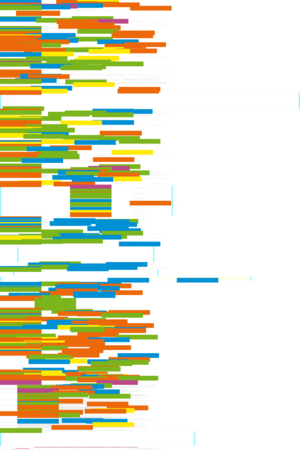 Information technology adoption for service innovation practices and competitive advantage: the case of financial firms
Information technology adoption for service innovation practices and competitive advantage: the case of financial firms Activity systems, information sharing and the development of organizational knowledge in two Finnish firms: an exploratory study using Activity Theory
Activity systems, information sharing and the development of organizational knowledge in two Finnish firms: an exploratory study using Activity Theory An analysis of the use of electronic journals and commercial journal article collections through the FinELib portal
An analysis of the use of electronic journals and commercial journal article collections through the FinELib portal Business information culture: a qualitative study of the information culture in the Finnish insurance industry
Business information culture: a qualitative study of the information culture in the Finnish insurance industry Discipline, availability of electronic resources and the use of Finnish National Electronic Library - FinELib.
Discipline, availability of electronic resources and the use of Finnish National Electronic Library - FinELib.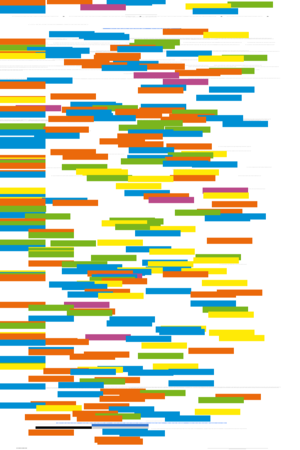 Prospective history teachers' information behaviour in lesson planning
Prospective history teachers' information behaviour in lesson planning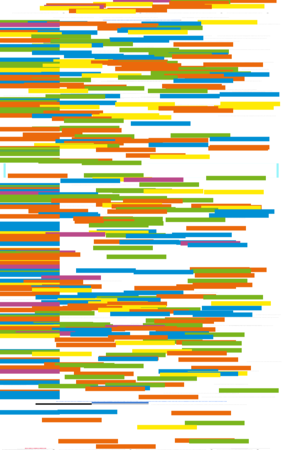 Flickr: a first look at user behaviour in the context of photography as serious leisure
Flickr: a first look at user behaviour in the context of photography as serious leisure Information seeking and use behaviour of economists and business analysts.
Information seeking and use behaviour of economists and business analysts. Intranets in French firms: evolutions and revolutions.
Intranets in French firms: evolutions and revolutions. The impact of information on clinical decision-making by general medical practitioners
The impact of information on clinical decision-making by general medical practitioners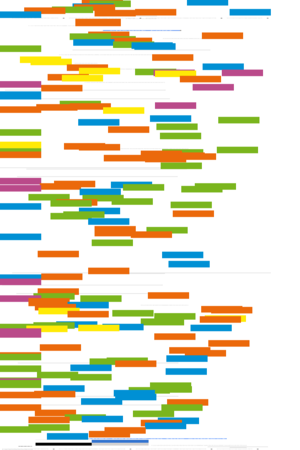 Keynote address. Mixed realities: information spaces then and now
Keynote address. Mixed realities: information spaces then and now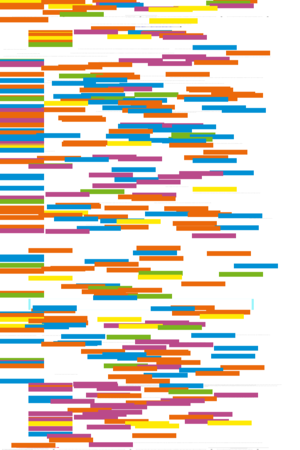 A gender perspective on Internet use: consequences for information seeking
A gender perspective on Internet use: consequences for information seeking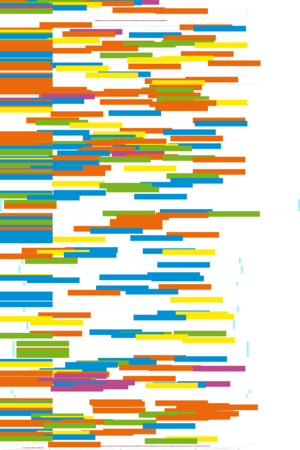 Users' information behaviour - a gender perspective
Users' information behaviour - a gender perspective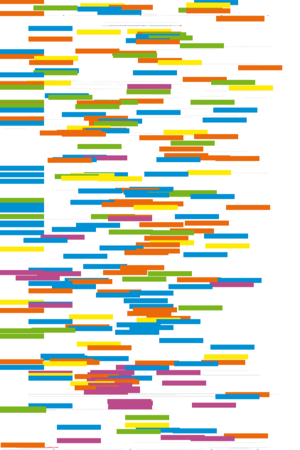 Seeking information, seeking connections, seeking meaning: genealogists and family historians
Seeking information, seeking connections, seeking meaning: genealogists and family historians Non-hierarchic document clustering using a genetic algorithm.
Non-hierarchic document clustering using a genetic algorithm. Scholarly blogging practice as situated genre: an analytical framework based on genre theory
Scholarly blogging practice as situated genre: an analytical framework based on genre theory The use of genre analysis in the design of electronic meeting systems
The use of genre analysis in the design of electronic meeting systems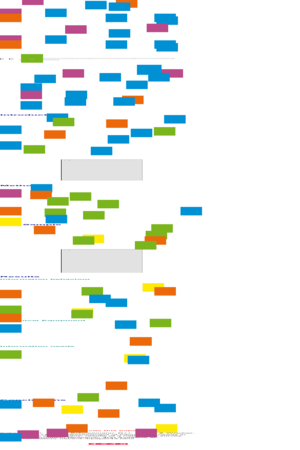 Assessment of information needs in public health in Germany: results of a nationwide survey
Assessment of information needs in public health in Germany: results of a nationwide survey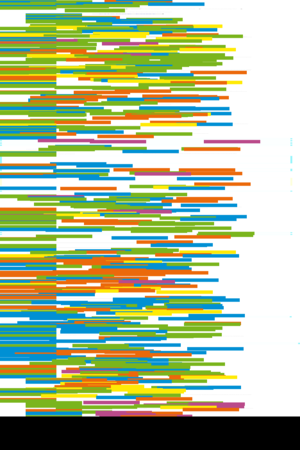 Evaluation of three German search engines: Altavista.de, Google.de and Lycos.de
Evaluation of three German search engines: Altavista.de, Google.de and Lycos.de Towards an information provision strategy for university libraries in Ghana
Towards an information provision strategy for university libraries in Ghana Comparative analysis of university-government-enterprise coauthorship networks in three scientific domains in the region of Madrid
Comparative analysis of university-government-enterprise coauthorship networks in three scientific domains in the region of Madrid Scanning the business external environment for information: evidence from Greece
Scanning the business external environment for information: evidence from Greece Generating and analysing data for applied research on emerging technologies: a grounded action learning approach
Generating and analysing data for applied research on emerging technologies: a grounded action learning approach A grounded theory study of the relationship between e-mail and burnout
A grounded theory study of the relationship between e-mail and burnout Information work analysis: an approach to research on information interactions and information behaviour in context
Information work analysis: an approach to research on information interactions and information behaviour in context Scanning the business environment for information: a grounded theory approach
Scanning the business environment for information: a grounded theory approach Evaluating shared workspace performance using human information processing models
Evaluating shared workspace performance using human information processing models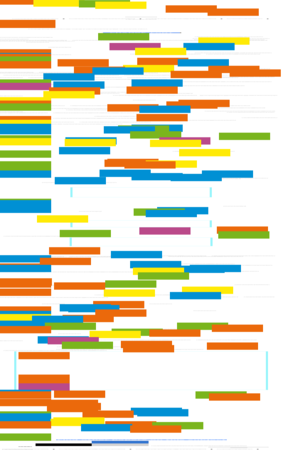 Access to health information: perception of barriers among elderly in a language minority
Access to health information: perception of barriers among elderly in a language minority Assessment of information needs in public health in Germany: results of a nationwide survey
Assessment of information needs in public health in Germany: results of a nationwide survey Environmental scan on women's health information resources in Ontario, Canada
Environmental scan on women's health information resources in Ontario, Canada An examination of the health information seeking experiences of women in rural Ontario, Canada.
An examination of the health information seeking experiences of women in rural Ontario, Canada.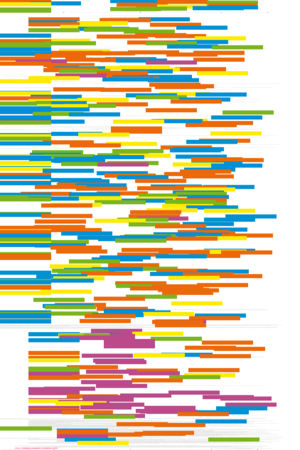 Health information-seeking among Latino newcomers: an exploratory study
Health information-seeking among Latino newcomers: an exploratory study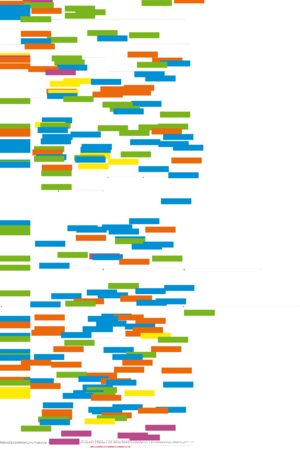 Health information for the teenage years: what do they want to know?
Health information for the teenage years: what do they want to know?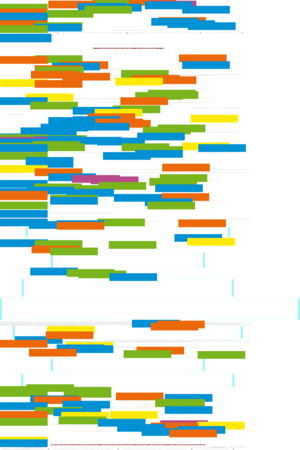 Health information ties: preliminary findings on the health information seeking behaviour of an African-American community
Health information ties: preliminary findings on the health information seeking behaviour of an African-American community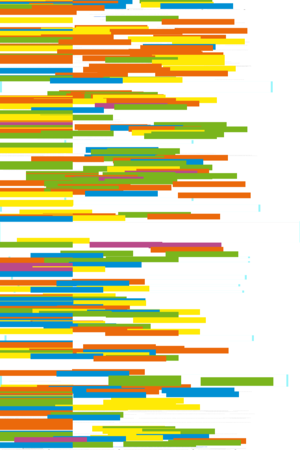 Information behaviour, health self-efficacy beliefs and health behaviour in Icelanders' everyday life
Information behaviour, health self-efficacy beliefs and health behaviour in Icelanders' everyday life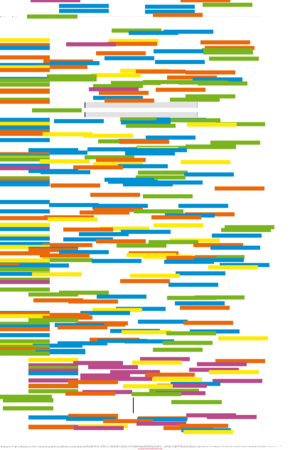 Information management and technology strategy in healthcare: local timescales and national requirements
Information management and technology strategy in healthcare: local timescales and national requirements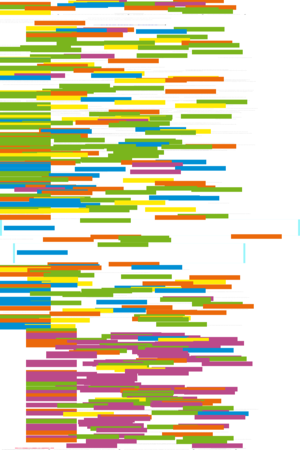 Intention to seek information on cancer genetics
Intention to seek information on cancer genetics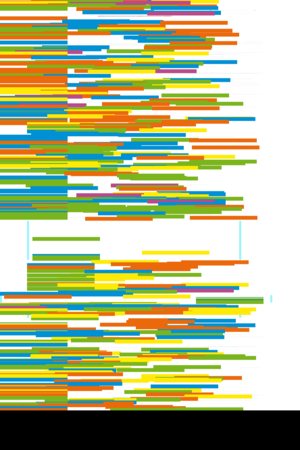 Predictors of cancer information overload: findings from a national survey
Predictors of cancer information overload: findings from a national survey Scanning and vicarious learning from adverse events in health care
Scanning and vicarious learning from adverse events in health care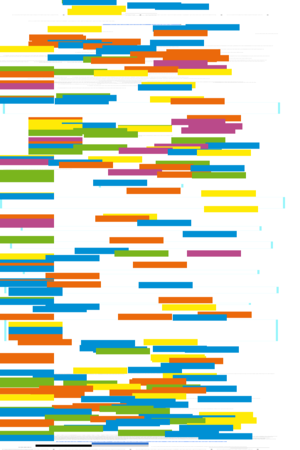 Seeking information about health and lifestyle on the Internet
Seeking information about health and lifestyle on the Internet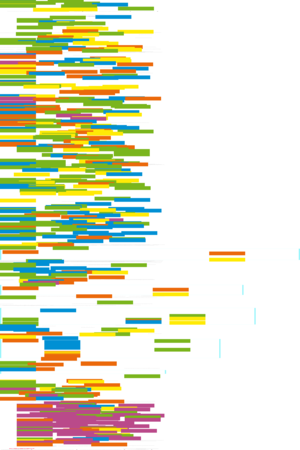 Use of information sources by cancer patients: results of a systematic review of the research literature
Use of information sources by cancer patients: results of a systematic review of the research literature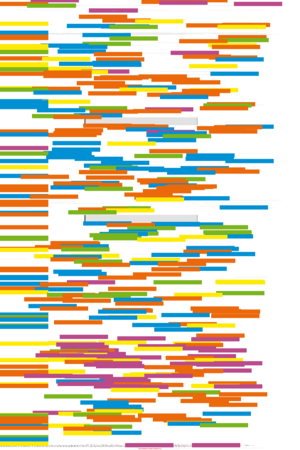 Using external training materials to strengthen health information management in East Africa
Using external training materials to strengthen health information management in East Africa Variables associated with environmental scanning among clinicians at substance abuse treatment clinics
Variables associated with environmental scanning among clinicians at substance abuse treatment clinics 'Whoever increases his knowledge merely increases his heartache.' Moral tensions in heart surgery patients' and their spouses' talk about information seeking
'Whoever increases his knowledge merely increases his heartache.' Moral tensions in heart surgery patients' and their spouses' talk about information seeking Inscription and interpretation of text: a cultural hermeneutic examination of virtual community
Inscription and interpretation of text: a cultural hermeneutic examination of virtual community Information and business performance: a study of information systems and services in high-performing companies
Information and business performance: a study of information systems and services in high-performing companies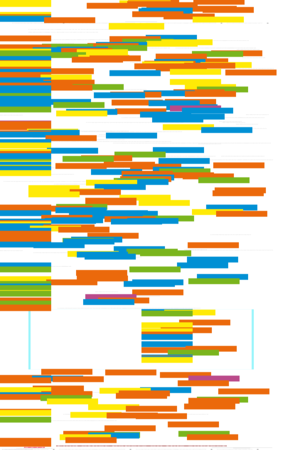 Information use and secondary school students: a model for understanding plagiarism
Information use and secondary school students: a model for understanding plagiarism Benchmarking strategic engagement with information literacy in higher education: towards a working model.
Benchmarking strategic engagement with information literacy in higher education: towards a working model. Embedding online information resources in Virtual Learning Environments: some implications for lecturers and librarians of the move towards delivering teaching in the online environment
Embedding online information resources in Virtual Learning Environments: some implications for lecturers and librarians of the move towards delivering teaching in the online environment Information behaviour in research network building by relocated scholars in Swedish higher education: a report on a pilot project
Information behaviour in research network building by relocated scholars in Swedish higher education: a report on a pilot project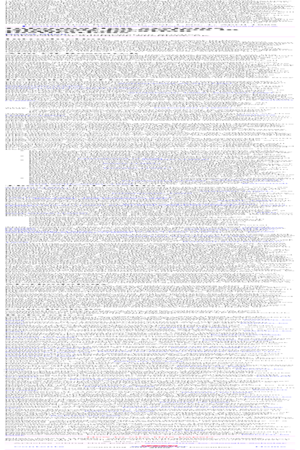 Information systems strategy formation in higher education institutions
Information systems strategy formation in higher education institutions Re-engineering change in higher education
Re-engineering change in higher education Social spaces, casual interactions, meaningful exchanges: 'information ground' characteristics based on the college student experience
Social spaces, casual interactions, meaningful exchanges: 'information ground' characteristics based on the college student experience The changing role of subjects connected with book history and publishing in the education of library specialists in Estonia
The changing role of subjects connected with book history and publishing in the education of library specialists in Estonia Use of historical documents in a digital world: comparisons with original materials and microfiche
Use of historical documents in a digital world: comparisons with original materials and microfiche The social construction of the world of gay and lesbian people and their information behaviour
The social construction of the world of gay and lesbian people and their information behaviour Household information practices: how and why householders process and manage information
Household information practices: how and why householders process and manage information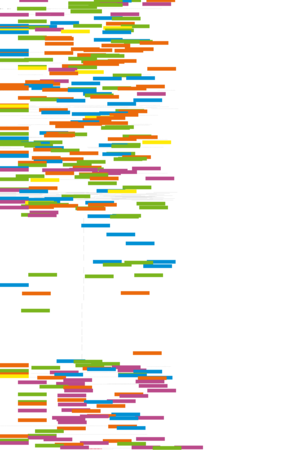 An improved method of studying user-system interaction by combining transaction log analysis and protocol analysis
An improved method of studying user-system interaction by combining transaction log analysis and protocol analysis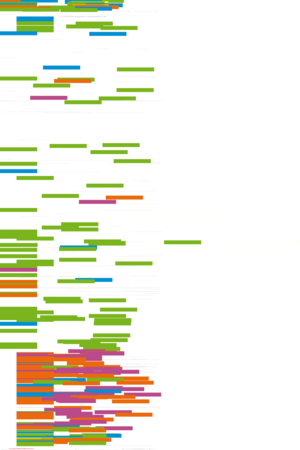 Metodologías para el desarrollo de Interfaces Visuales de Recuperación de Información: análisis y comparación
Metodologías para el desarrollo de Interfaces Visuales de Recuperación de Información: análisis y comparación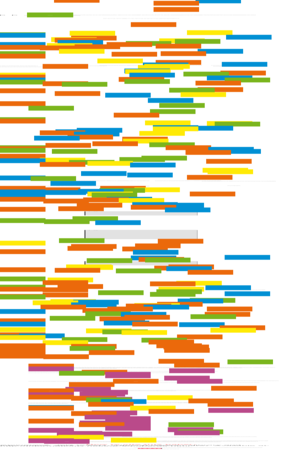 Human issues of library and information work
Human issues of library and information work What is this link doing here? Beginning a fine-grained process of identifying reasons for academic hyperlink creation
What is this link doing here? Beginning a fine-grained process of identifying reasons for academic hyperlink creation Towards adaptive information systems: individual differences and hypermedia
Towards adaptive information systems: individual differences and hypermedia Hypermedia as an experiential learning tool: a theoretical model
Hypermedia as an experiential learning tool: a theoretical model Developing educational hypermedia applications: a methodological approach
Developing educational hypermedia applications: a methodological approach Information behaviour, health self-efficacy beliefs and health behaviour in Icelanders' everyday life
Information behaviour, health self-efficacy beliefs and health behaviour in Icelanders' everyday life Seeking information about health and lifestyle on the Internet
Seeking information about health and lifestyle on the Internet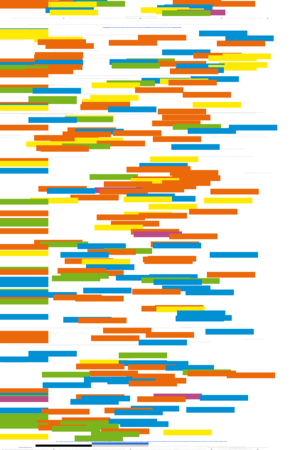 Immigrants' information needs: their role in the absorption process
Immigrants' information needs: their role in the absorption process Information behaviour in research network building by relocated scholars in Swedish higher education: a report on a pilot project
Information behaviour in research network building by relocated scholars in Swedish higher education: a report on a pilot project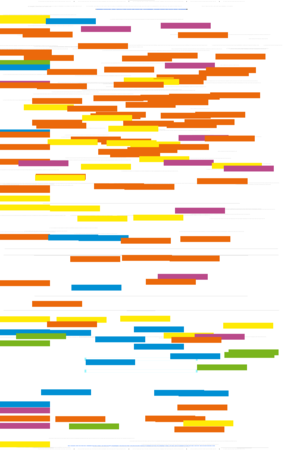 An associative index model for the results list based on Vannevar Bush's selection concept
An associative index model for the results list based on Vannevar Bush's selection concept Observing documentary reading by verbal protocol
Observing documentary reading by verbal protocol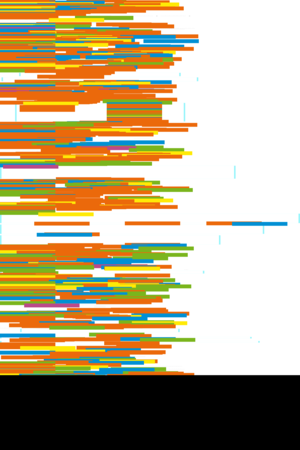 Term based comparison metrics for controlled and uncontrolled indexing languages
Term based comparison metrics for controlled and uncontrolled indexing languages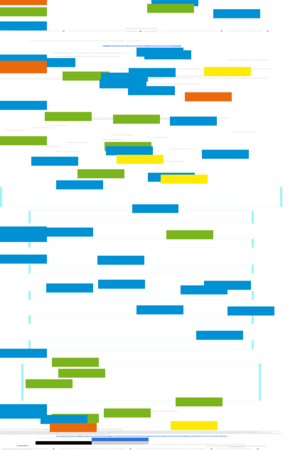 Open access publishing in Indian premier research institutions
Open access publishing in Indian premier research institutions Towards adaptive information systems: individual differences and hypermedia
Towards adaptive information systems: individual differences and hypermedia Beyond usage: understanding the use of electronic journals on the basis of information activity analysis
Beyond usage: understanding the use of electronic journals on the basis of information activity analysis Access to health information: perception of barriers among elderly in a language minority
Access to health information: perception of barriers among elderly in a language minority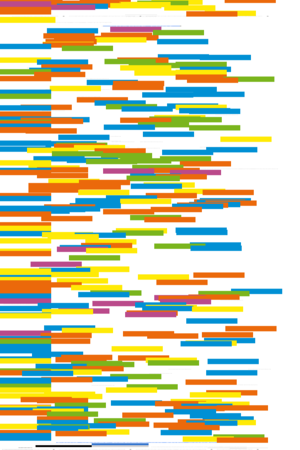 Information barriers and Maori secondary school students
Information barriers and Maori secondary school students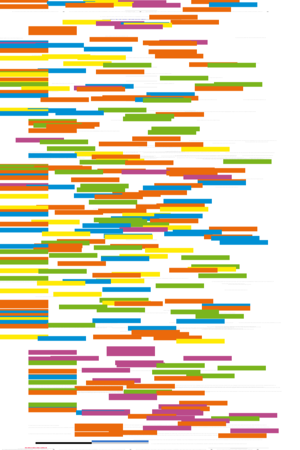 Beyond information seeking: towards a general model of information behaviour.
Beyond information seeking: towards a general model of information behaviour.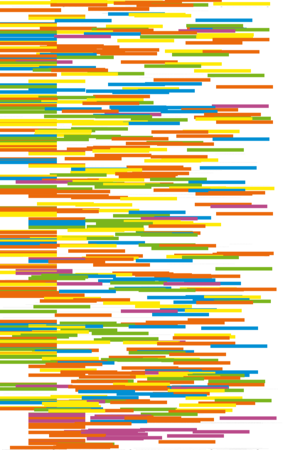 Bringing human information behaviour into information systems research: an application of systems modelling
Bringing human information behaviour into information systems research: an application of systems modelling Building a foundation to study distributed information behaviour
Building a foundation to study distributed information behaviour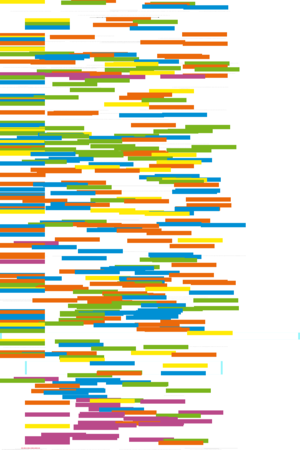 Challenges in sharing information effectively: examples from command and control.
Challenges in sharing information effectively: examples from command and control.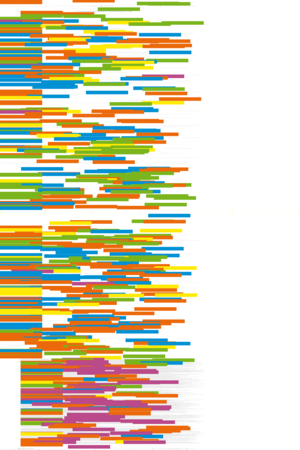 Five personality dimensions and their influence on information behaviour
Five personality dimensions and their influence on information behaviour Flickr: a first look at user behaviour in the context of photography as serious leisure
Flickr: a first look at user behaviour in the context of photography as serious leisure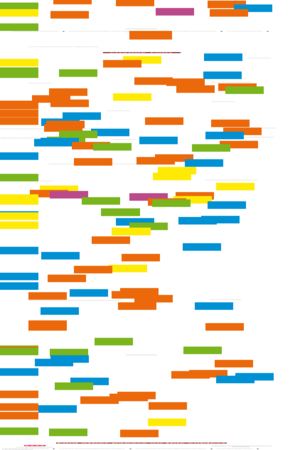 A framework for understanding culture and its relationship to information behaviour: Taiwanese aborigines' information behaviour
A framework for understanding culture and its relationship to information behaviour: Taiwanese aborigines' information behaviour From information behaviour research to the design of information systems: the Cognitive Work Analysis framework
From information behaviour research to the design of information systems: the Cognitive Work Analysis framework How human information behaviour researchers use each other's work: a basic citation analysis study.
How human information behaviour researchers use each other's work: a basic citation analysis study.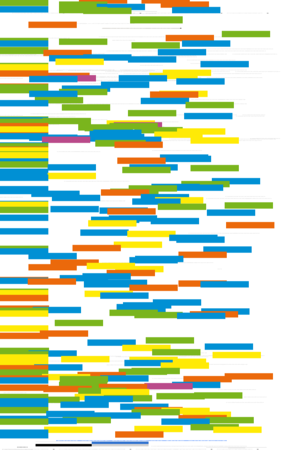 Influences on the judgement of enough information
Influences on the judgement of enough information Information behaviour, health self-efficacy beliefs and health behaviour in Icelanders' everyday life
Information behaviour, health self-efficacy beliefs and health behaviour in Icelanders' everyday life Information behaviour in research network building by relocated scholars in Swedish higher education: a report on a pilot project
Information behaviour in research network building by relocated scholars in Swedish higher education: a report on a pilot project Information behaviour of migrant Hispanic farm workers and their families in the Pacific Northwest
Information behaviour of migrant Hispanic farm workers and their families in the Pacific Northwest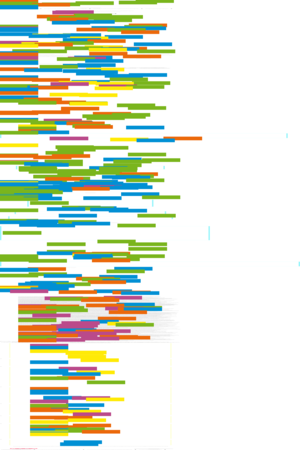 Information behaviour that keeps found things found
Information behaviour that keeps found things found The information environment of researchers in molecular medicine
The information environment of researchers in molecular medicine Information needs and information behaviour of patients and family members in a cancer palliative care setting
Information needs and information behaviour of patients and family members in a cancer palliative care setting Information on the move: the use of mobile information systems by UK Police Forces
Information on the move: the use of mobile information systems by UK Police Forces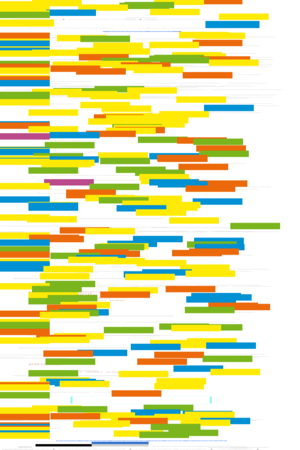 Information quality assessment on the Web: an expression of behaviour
Information quality assessment on the Web: an expression of behaviour Information seeking and use behaviour of economists and business analysts.
Information seeking and use behaviour of economists and business analysts. Information work analysis: an approach to research on information interactions and information behaviour in context
Information work analysis: an approach to research on information interactions and information behaviour in context Keynote address: Trends and approaches in information behaviour research
Keynote address: Trends and approaches in information behaviour research Link between contractually integrated retail entrepreneurs' working experience and their information gathering and interpreting styles
Link between contractually integrated retail entrepreneurs' working experience and their information gathering and interpreting styles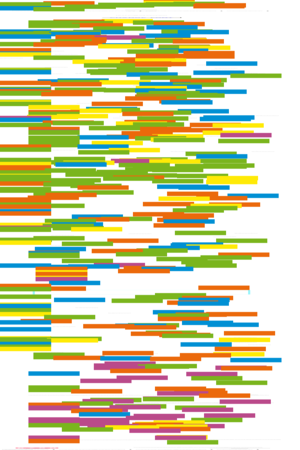 A new model of information behaviour based on the Search Situation Transition schema.
A new model of information behaviour based on the Search Situation Transition schema. Personality traits and group-based information behaviour: an exploratory study
Personality traits and group-based information behaviour: an exploratory study Preparing for opening night: temporal boundary objects in textually-mediated professional practice
Preparing for opening night: temporal boundary objects in textually-mediated professional practice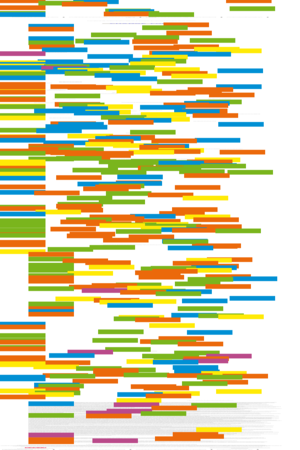 A proposed general model of information behaviour.
A proposed general model of information behaviour. Prospective history teachers' information behaviour in lesson planning
Prospective history teachers' information behaviour in lesson planning Researchers and practitioners talk about users and each other: making user and audience studies matter
Researchers and practitioners talk about users and each other: making user and audience studies matter Serendipity dimensions and users' information behaviour in the physical library interface
Serendipity dimensions and users' information behaviour in the physical library interface Small worlds, lifeworlds, and information: the ramifications of the information behaviour of social groups in public policy and the public sphere
Small worlds, lifeworlds, and information: the ramifications of the information behaviour of social groups in public policy and the public sphere The social construction of the world of gay and lesbian people and their information behaviour
The social construction of the world of gay and lesbian people and their information behaviour Tensions and contradictions in the information behaviour of Board members of a voluntary organization
Tensions and contradictions in the information behaviour of Board members of a voluntary organization Users' information behaviour - a gender perspective
Users' information behaviour - a gender perspective Using participant or non-participant observation to explain information behaviour
Using participant or non-participant observation to explain information behaviour Validating coding for a theoretical model of information behaviour
Validating coding for a theoretical model of information behaviour Where information is paramount: a mixed methods multi-disciplinary investigation of Australian online investors
Where information is paramount: a mixed methods multi-disciplinary investigation of Australian online investors Business information culture: a qualitative study of the information culture in the Finnish insurance industry
Business information culture: a qualitative study of the information culture in the Finnish insurance industry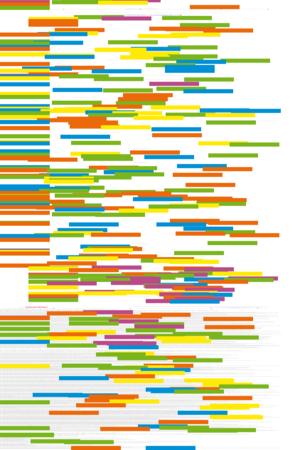 Constructing a model of effective information dissemination in a crisis
Constructing a model of effective information dissemination in a crisis My e-journal - exploring the usefulness of personalized access to scholarly articles and services.
My e-journal - exploring the usefulness of personalized access to scholarly articles and services. The information environment of researchers in molecular medicine
The information environment of researchers in molecular medicine Keynote address. Mixed realities: information spaces then and now
Keynote address. Mixed realities: information spaces then and now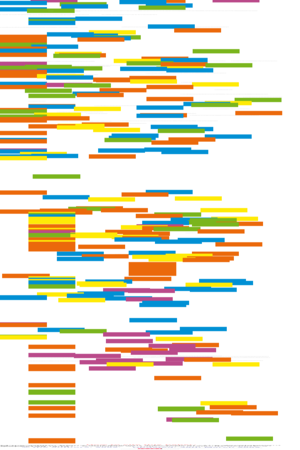 The development of the information management research area
The development of the information management research area The duality of knowledge
The duality of knowledge How users organize electronic files on their workstations in the office environment: a preliminary study of personal information organization behaviour
How users organize electronic files on their workstations in the office environment: a preliminary study of personal information organization behaviour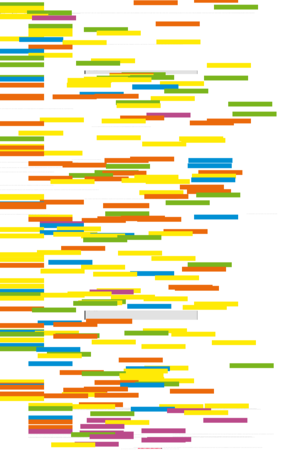 I = 0 (Information has no intrinsic meaning)
I = 0 (Information has no intrinsic meaning)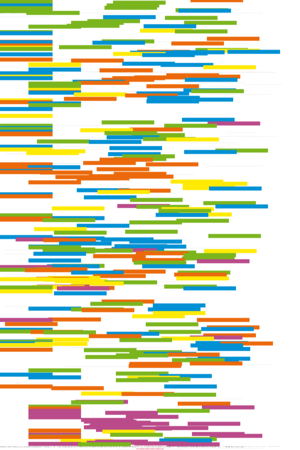 Information in organizations: directions for information management
Information in organizations: directions for information management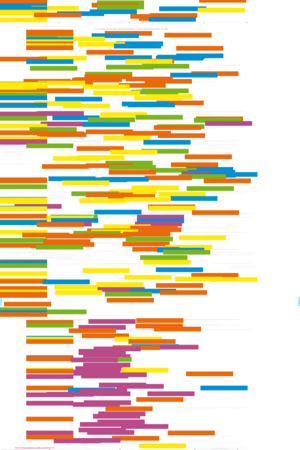 Information and knowledge management: dimensions and approaches.
Information and knowledge management: dimensions and approaches. Information management and technology strategy in healthcare: local timescales and national requirements
Information management and technology strategy in healthcare: local timescales and national requirements Information work analysis: an approach to research on information interactions and information behaviour in context
Information work analysis: an approach to research on information interactions and information behaviour in context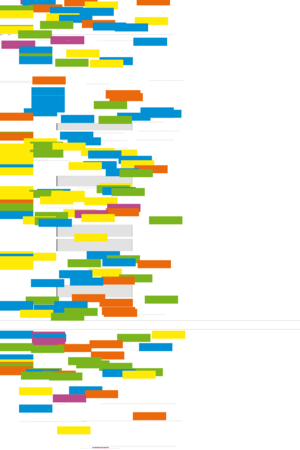 Knowledge management: another management fad?
Knowledge management: another management fad?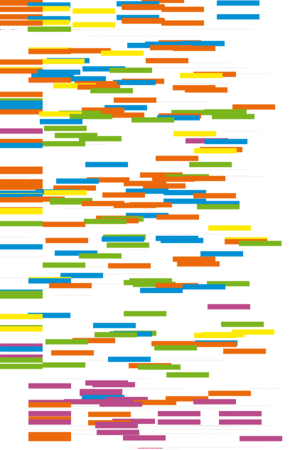 Knowledge management: re-thinking information management and facing the challenge of managing tacit knowledge
Knowledge management: re-thinking information management and facing the challenge of managing tacit knowledge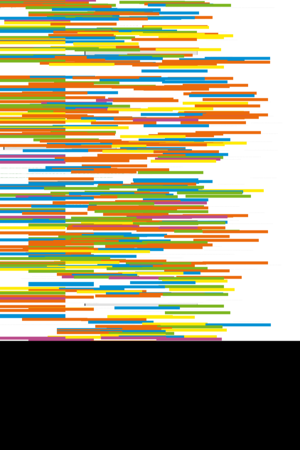 The nonsense of 'knowledge management'
The nonsense of 'knowledge management'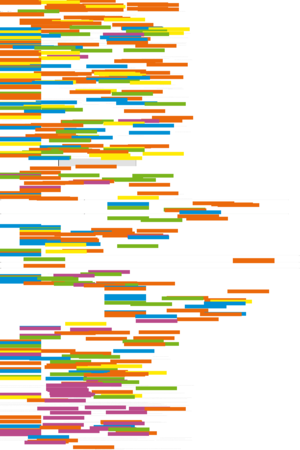 Understanding knowledge management and information management: the need for an empirical perspective
Understanding knowledge management and information management: the need for an empirical perspective Using external training materials to strengthen health information management in East Africa
Using external training materials to strengthen health information management in East Africa Using information technology to support knowledge conversion processes
Using information technology to support knowledge conversion processes Action research and users' needs.
Action research and users' needs. An activity-theory-based model to analyse Web application requirements
An activity-theory-based model to analyse Web application requirements Assessment of information needs in public health in Germany: results of a nationwide survey
Assessment of information needs in public health in Germany: results of a nationwide survey Bridging information requirements and information needs assessment: do scenarios and vignettes provide a link?
Bridging information requirements and information needs assessment: do scenarios and vignettes provide a link? Critical Success Factors and information needs in Estonian industry
Critical Success Factors and information needs in Estonian industry Determining organizational information needs: the Critical Success Factors approach.
Determining organizational information needs: the Critical Success Factors approach. Determining the information needs of small and medium-sized enterprises: a critical success factor analysis.
Determining the information needs of small and medium-sized enterprises: a critical success factor analysis. Immigrants' information needs: their role in the absorption process
Immigrants' information needs: their role in the absorption process Information management and technology strategy in healthcare: local timescales and national requirements
Information management and technology strategy in healthcare: local timescales and national requirements Information needs and information behaviour of patients and family members in a cancer palliative care setting
Information needs and information behaviour of patients and family members in a cancer palliative care setting Information needs and information competencies: a case study of the off-site supervision of financial institutions in Brazil
Information needs and information competencies: a case study of the off-site supervision of financial institutions in Brazil Information needs research in Russia and Lithuania, 1965-2003
Information needs research in Russia and Lithuania, 1965-2003 Investigating the management information needs of academic heads of departments: a critical success factors approach
Investigating the management information needs of academic heads of departments: a critical success factors approach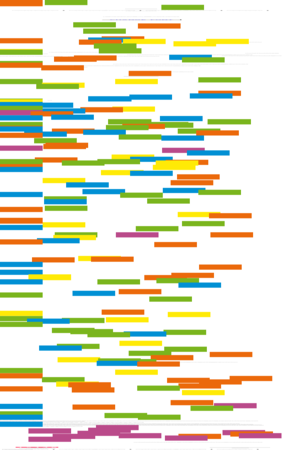 The information needs of female Police Officers involved in undercover prostitution work
The information needs of female Police Officers involved in undercover prostitution work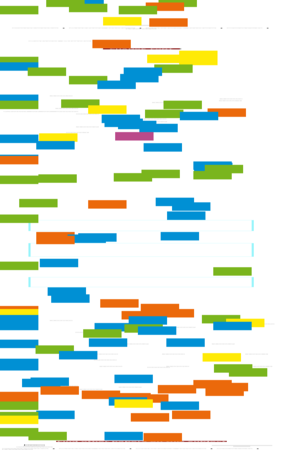 Iranian engineers' information needs and seeking habits: an agro-industry company experience
Iranian engineers' information needs and seeking habits: an agro-industry company experience The management information needs of academic Heads of Department in universities in the United Kingdom
The management information needs of academic Heads of Department in universities in the United Kingdom Perceived information needs and availability: results of a survey of small dairy farmers in Inner Mongolia
Perceived information needs and availability: results of a survey of small dairy farmers in Inner Mongolia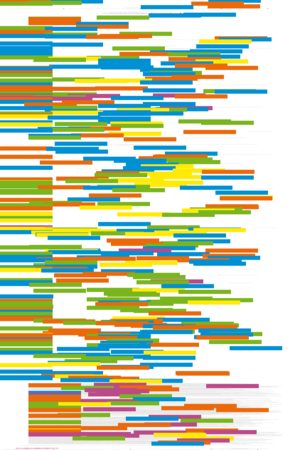 Personal anticipated information need
Personal anticipated information need A study of interpersonal information seeking: the role of topic and comment in the articulation of certainty and uncertainty of information need
A study of interpersonal information seeking: the role of topic and comment in the articulation of certainty and uncertainty of information need A grounded theory study of the relationship between e-mail and burnout
A grounded theory study of the relationship between e-mail and burnout Influences on the judgement of enough information
Influences on the judgement of enough information Predictors of cancer information overload: findings from a national survey
Predictors of cancer information overload: findings from a national survey Spreading the load: mobile information and communications technologies and their effect on information overload
Spreading the load: mobile information and communications technologies and their effect on information overload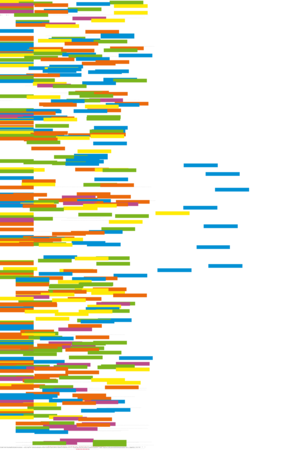 National Information Infrastructure and the realization of Singapore IT2000 initiative
National Information Infrastructure and the realization of Singapore IT2000 initiative Small worlds, lifeworlds, and information: the ramifications of the information behaviour of social groups in public policy and the public sphere
Small worlds, lifeworlds, and information: the ramifications of the information behaviour of social groups in public policy and the public sphere Evaluating shared workspace performance using human information processing models
Evaluating shared workspace performance using human information processing models Strategy, information processing and scorecard models in the UK financial services sector
Strategy, information processing and scorecard models in the UK financial services sector Textual and chemical information processing: different domains but similar algorithms
Textual and chemical information processing: different domains but similar algorithms Towards an information provision strategy for university libraries in Ghana
Towards an information provision strategy for university libraries in Ghana Information quality assessment on the Web: an expression of behaviour
Information quality assessment on the Web: an expression of behaviour Analysis of information sources representation for financial product design: new perspectives for information seeking and use behaviour.
Analysis of information sources representation for financial product design: new perspectives for information seeking and use behaviour. Criterios para la evaluaci�n de la usabilidad de los recursos educativos virtuales: un an�lisis desde la alfabetizaci�n en informaci�n
Criterios para la evaluaci�n de la usabilidad de los recursos educativos virtuales: un an�lisis desde la alfabetizaci�n en informaci�n The information condition: information resources and use in labour, work and action
The information condition: information resources and use in labour, work and action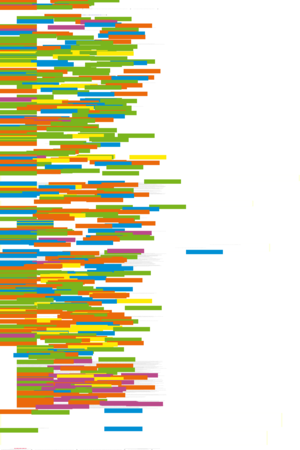 The challenge of automated tutoring in Web-based learning environments for information retrieval instruction
The challenge of automated tutoring in Web-based learning environments for information retrieval instruction The effectiveness of Web search engines to index new sites from different countries
The effectiveness of Web search engines to index new sites from different countries Extracting variant forms of chemical names for information retrieval
Extracting variant forms of chemical names for information retrieval Metodologías para el desarrollo de Interfaces Visuales de Recuperación de Información: análisis y comparación
Metodologías para el desarrollo de Interfaces Visuales de Recuperación de Información: análisis y comparación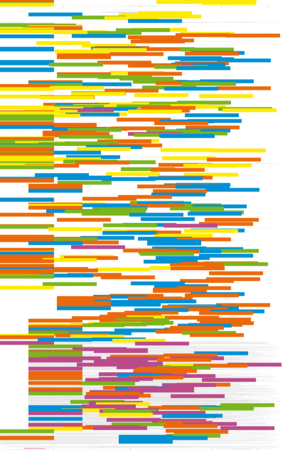 On conceptual models for information seeking and retrieval research
On conceptual models for information seeking and retrieval research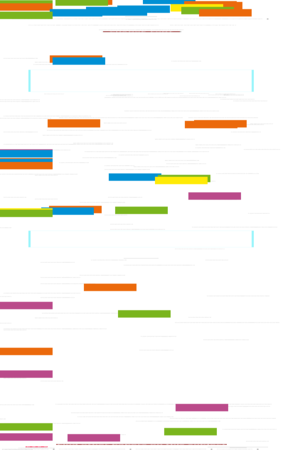 Uma revisão dos algoritmos de radicalização em língua portuguesa
Uma revisão dos algoritmos de radicalização em língua portuguesa Synchronised Object Retrieval: the enhancement of information retrieval performance in multimedia environments using synchronisation protocols.
Synchronised Object Retrieval: the enhancement of information retrieval performance in multimedia environments using synchronisation protocols. Targeted s-gram matching: a novel n-gram matching technique for cross- and mono-lingual word form variants
Targeted s-gram matching: a novel n-gram matching technique for cross- and mono-lingual word form variants Task dimensions of user evaluations of information retrieval systems
Task dimensions of user evaluations of information retrieval systems Term based comparison metrics for controlled and uncontrolled indexing languages
Term based comparison metrics for controlled and uncontrolled indexing languages Textual and chemical information processing: different domains but similar algorithms
Textual and chemical information processing: different domains but similar algorithms Towards collaboration between information seeking research and information retrieval
Towards collaboration between information seeking research and information retrieval Web search: how the Web has changed information retrieval
Web search: how the Web has changed information retrieval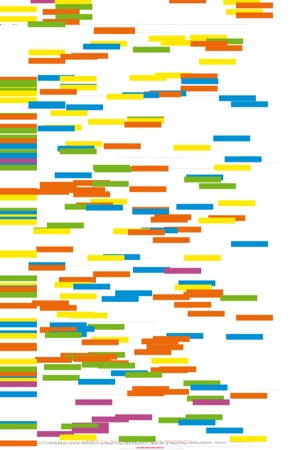 "In the catalogue ye go for men": evaluation criteria for information retrieval systems.
"In the catalogue ye go for men": evaluation criteria for information retrieval systems. Task dimensions of user evaluations of information retrieval systems
Task dimensions of user evaluations of information retrieval systems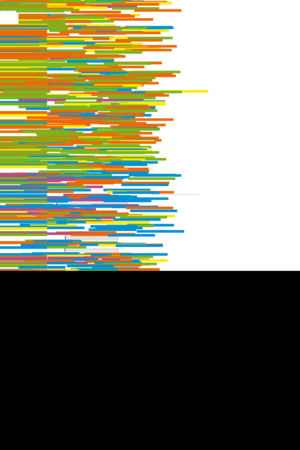 The IIR evaluation model: a framework for evaluation of interactive information retrieval systems
The IIR evaluation model: a framework for evaluation of interactive information retrieval systems A bibliometric analysis of select information science print and electronic journals in the 1990s
A bibliometric analysis of select information science print and electronic journals in the 1990s Bibliometrics of electronic journals in information science,
Bibliometrics of electronic journals in information science,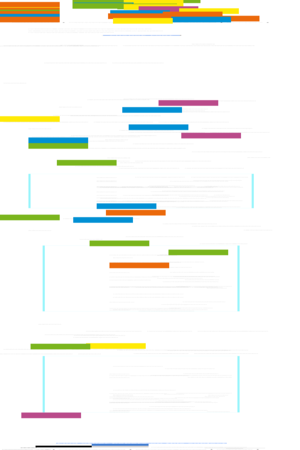 Coordenadas paradigmáticas, históricas y epistemológicas de la Ciencia de la Información: una sistematización.
Coordenadas paradigmáticas, históricas y epistemológicas de la Ciencia de la Información: una sistematización.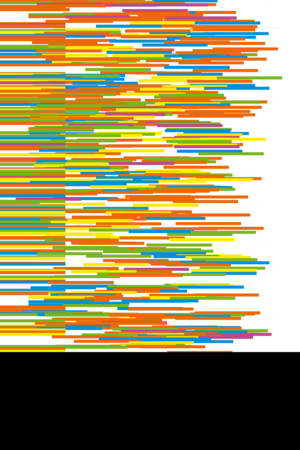 Information and knowledge: an evolutionary framework for information science
Information and knowledge: an evolutionary framework for information science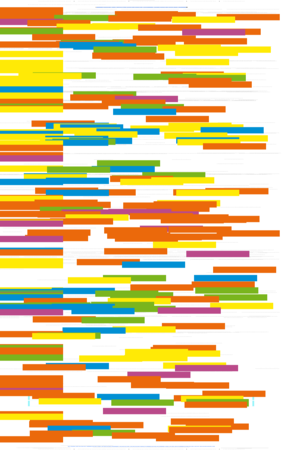 Information science as a social science
Information science as a social science Information science in sustainable development and de-industrialization
Information science in sustainable development and de-industrialization Construcción de estrategias sistemáticas para la búsqueda exhaustiva de información en Internet: un marco de toma de decisiones aplicado a la información sobre psicología de la salud
Construcción de estrategias sistemáticas para la búsqueda exhaustiva de información en Internet: un marco de toma de decisiones aplicado a la información sobre psicología de la salud The development of children's Web searching skills - a non-linear model
The development of children's Web searching skills - a non-linear model Domain knowledge, search behaviour, and search effectiveness of engineering and science students: an exploratory study
Domain knowledge, search behaviour, and search effectiveness of engineering and science students: an exploratory study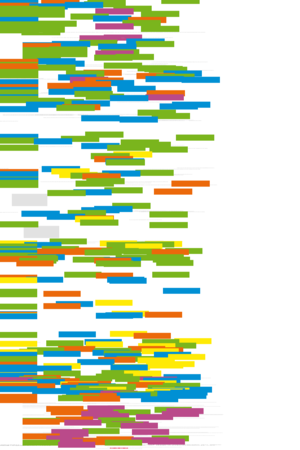 The effect of query complexity on Web searching results
The effect of query complexity on Web searching results The 'information search process' revisited: is the model still useful?
The 'information search process' revisited: is the model still useful? Knowledge acquisition and modification in students' exploratory Web search processes while career planning
Knowledge acquisition and modification in students' exploratory Web search processes while career planning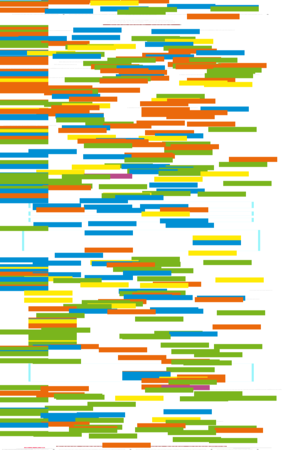 A naïve ontology for concepts of time and space for searching and learning
A naïve ontology for concepts of time and space for searching and learning Perceived difficulty as a determinant of Web search success
Perceived difficulty as a determinant of Web search success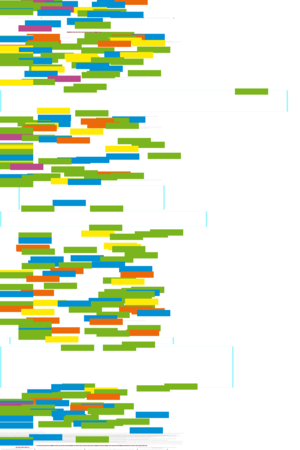 Search engines: a first step to finding information: preliminary findings from a study of observed searches.
Search engines: a first step to finding information: preliminary findings from a study of observed searches. Selected results from a large study of Web searching: the Excite study
Selected results from a large study of Web searching: the Excite study Analysis of information sources representation for financial product design: new perspectives for information seeking and use behaviour.
Analysis of information sources representation for financial product design: new perspectives for information seeking and use behaviour.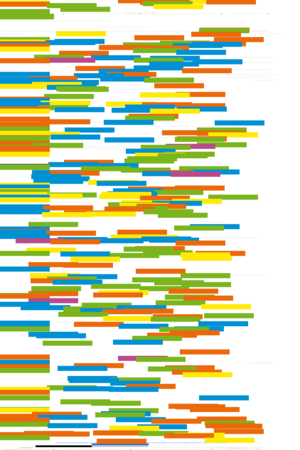 Autonomous, controlled and half-hearted. Unemployed people's motivations to seek information about jobs
Autonomous, controlled and half-hearted. Unemployed people's motivations to seek information about jobs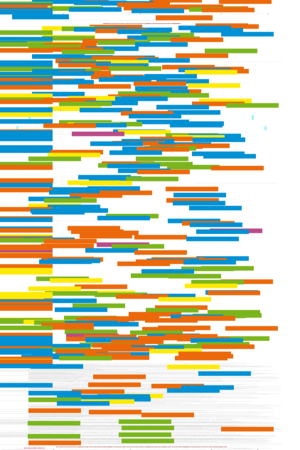 Barriers to information seeking in school libraries: conflicts in perceptions and practice
Barriers to information seeking in school libraries: conflicts in perceptions and practice 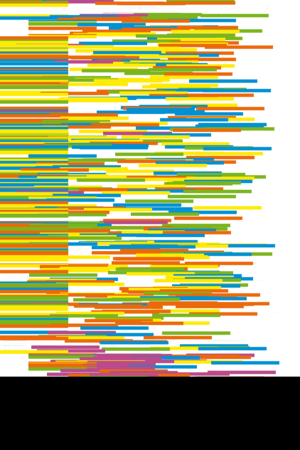 Beyond communication - research as communicating. Making user and audience studies matter—paper 2
Beyond communication - research as communicating. Making user and audience studies matter—paper 2 Bringing human information behaviour into information systems research: an application of systems modelling
Bringing human information behaviour into information systems research: an application of systems modelling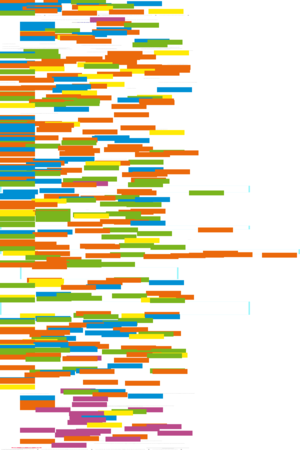 Choosing people: the role of social capital in information seeking behaviour
Choosing people: the role of social capital in information seeking behaviour Concentration of Web users' online information behaviour
Concentration of Web users' online information behaviour Enthusiastic, realistic and critical: discourses of Internet use in the context of everyday life information seeking
Enthusiastic, realistic and critical: discourses of Internet use in the context of everyday life information seeking Environmental scanning as information seeking and organizational learning
Environmental scanning as information seeking and organizational learning An examination of the health information seeking experiences of women in rural Ontario, Canada.
An examination of the health information seeking experiences of women in rural Ontario, Canada. Experiencing information seeking and learning: a study of the interaction between two phenomena
Experiencing information seeking and learning: a study of the interaction between two phenomena Fast surfing for availability or deep diving into quality - motivation and information seeking among middle and high school students
Fast surfing for availability or deep diving into quality - motivation and information seeking among middle and high school students Finding competitive intelligence on Internet start-up companies: a study of secondary resource use and information-seeking processes
Finding competitive intelligence on Internet start-up companies: a study of secondary resource use and information-seeking processes Freshmen's use of library electronic resources and self-efficacy
Freshmen's use of library electronic resources and self-efficacy A gender perspective on Internet use: consequences for information seeking
A gender perspective on Internet use: consequences for information seeking Health information-seeking among Latino newcomers: an exploratory study
Health information-seeking among Latino newcomers: an exploratory study Health information ties: preliminary findings on the health information seeking behaviour of an African-American community
Health information ties: preliminary findings on the health information seeking behaviour of an African-American community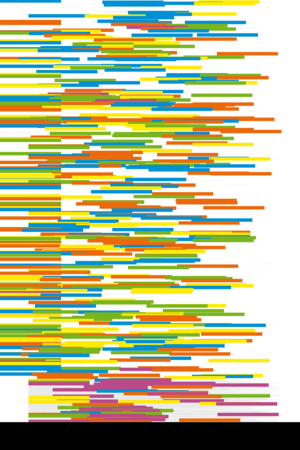 Human studies and user studies: a call for methodological interdisciplinarity
Human studies and user studies: a call for methodological interdisciplinarity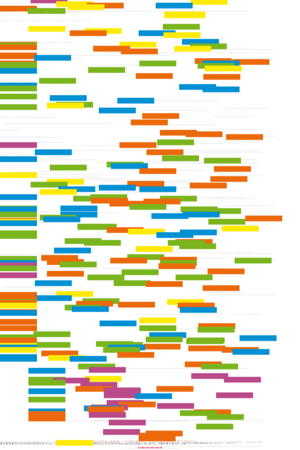 The impact of personality and approaches to learning on information behaviour.
The impact of personality and approaches to learning on information behaviour. Imposed information seeking in public libraries and school library media centers: a common behaviour?
Imposed information seeking in public libraries and school library media centers: a common behaviour? Information as a tool for management decision making: a case study of Singapore
Information as a tool for management decision making: a case study of Singapore Information behaviour that keeps found things found
Information behaviour that keeps found things found Information seeking and students studying for professional careers: the cases of engineering and law students in Ireland
Information seeking and students studying for professional careers: the cases of engineering and law students in Ireland Information seeking and use behaviour of economists and business analysts.
Information seeking and use behaviour of economists and business analysts. Information-seeking behaviour of Iranian extension managers and specialists
Information-seeking behaviour of Iranian extension managers and specialists Information seeking by blind and sight impaired citizens: an ecological study
Information seeking by blind and sight impaired citizens: an ecological study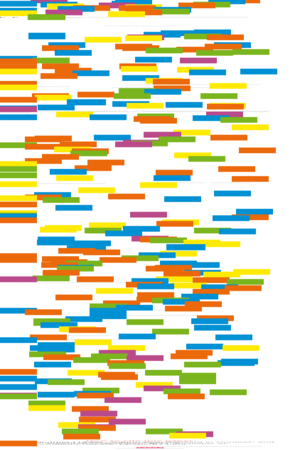 "Information Seeking in Context" and the development of information systems
"Information Seeking in Context" and the development of information systems Information seeking in organizations: epistemic contexts and contests
Information seeking in organizations: epistemic contexts and contests Information seeking research needs extension toward tasks and technology
Information seeking research needs extension toward tasks and technology Intention to seek information on cancer genetics
Intention to seek information on cancer genetics Iranian engineers' information needs and seeking habits: an agro-industry company experience
Iranian engineers' information needs and seeking habits: an agro-industry company experience Keynote address. Mixed realities: information spaces then and now
Keynote address. Mixed realities: information spaces then and now Managers look to the social network to seek information
Managers look to the social network to seek information Media credibility and cognitive authority. The case of seeking orienting information/td>
Media credibility and cognitive authority. The case of seeking orienting information/td> A non-linear model of information seeking behaviour
A non-linear model of information seeking behaviour On conceptual models for information seeking and retrieval research
On conceptual models for information seeking and retrieval research Personal anticipated information need
Personal anticipated information need Recent trends in user studies: action research and qualitative methods
Recent trends in user studies: action research and qualitative methods A re-examination of information seeking behaviour in the context of activity theory
A re-examination of information seeking behaviour in the context of activity theory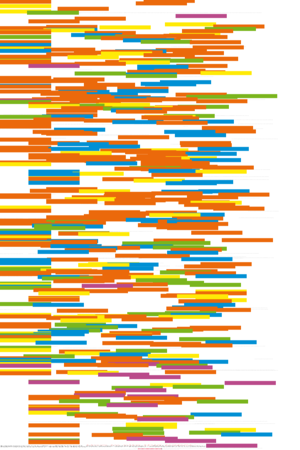 Reference group theory with implications for information studies: a theoretical essay,
Reference group theory with implications for information studies: a theoretical essay, A review of Web information seeking research: considerations of method and foci of interest
A review of Web information seeking research: considerations of method and foci of interest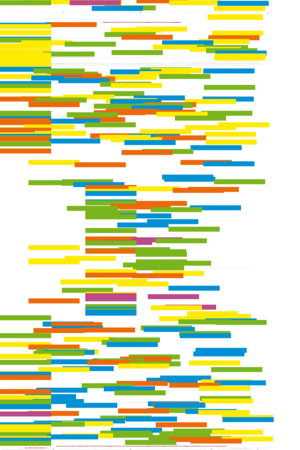 The role of the research phase in information seeking behaviour of Jewish scholars: a modification of Ellis's behavioural characteristics.
The role of the research phase in information seeking behaviour of Jewish scholars: a modification of Ellis's behavioural characteristics.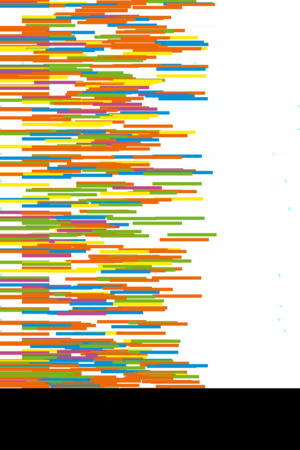 Scholarly use of information: graduate students' information seeking behaviour
Scholarly use of information: graduate students' information seeking behaviour Seeking information about health and lifestyle on the Internet
Seeking information about health and lifestyle on the Internet Seeking information, seeking connections, seeking meaning: genealogists and family historians
Seeking information, seeking connections, seeking meaning: genealogists and family historians Social spaces, casual interactions, meaningful exchanges: 'information ground' characteristics based on the college student experience
Social spaces, casual interactions, meaningful exchanges: 'information ground' characteristics based on the college student experience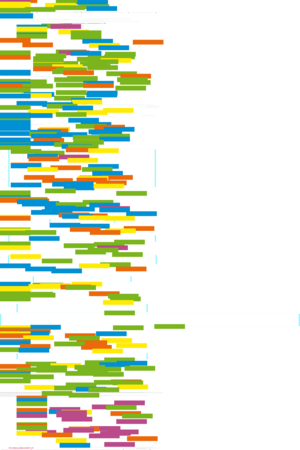 Something old, something new: preliminary findings from an exploratory study about people's information habits and information grounds
Something old, something new: preliminary findings from an exploratory study about people's information habits and information grounds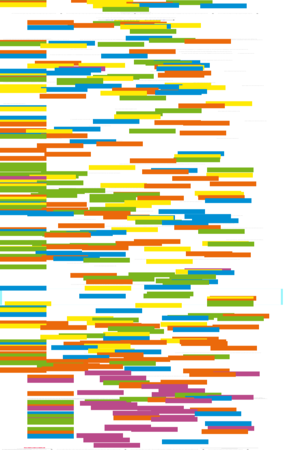 Spatial factors as contextual qualifiers of information seeking
Spatial factors as contextual qualifiers of information seeking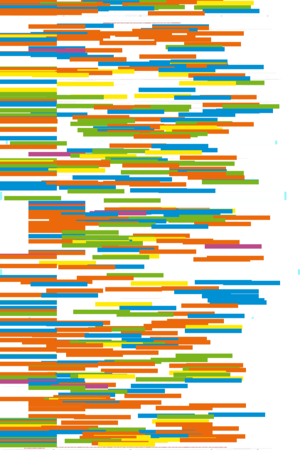 Students seeking information for their Master's thesis: the effect of the Internet
Students seeking information for their Master's thesis: the effect of the Internet A study of interpersonal information seeking: the role of topic and comment in the articulation of certainty and uncertainty of information need
A study of interpersonal information seeking: the role of topic and comment in the articulation of certainty and uncertainty of information need Talking about the problem: a content analysis of pre-search interviews
Talking about the problem: a content analysis of pre-search interviews Towards collaboration between information seeking research and information retrieval
Towards collaboration between information seeking research and information retrieval The applicability of constructivist user studies: how can constructivist inquiry inform service providers and systems designers?
The applicability of constructivist user studies: how can constructivist inquiry inform service providers and systems designers? Users and user study methodology: the JUBILEE project
Users and user study methodology: the JUBILEE project Web information seeking by pages: an observational study of moving and stopping
Web information seeking by pages: an observational study of moving and stopping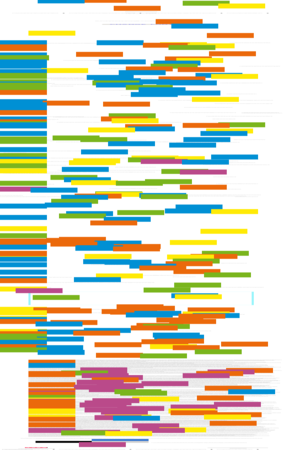 What defines 'enough' information? How policy workers make judgements and decisions during information seeking: preliminary results from an exploratory study
What defines 'enough' information? How policy workers make judgements and decisions during information seeking: preliminary results from an exploratory study 'Whoever increases his knowledge merely increases his heartache.' Moral tensions in heart surgery patients' and their spouses' talk about information seeking
'Whoever increases his knowledge merely increases his heartache.' Moral tensions in heart surgery patients' and their spouses' talk about information seeking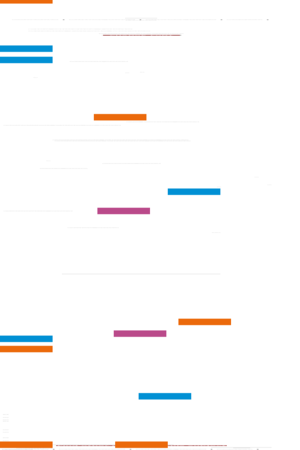 El efecto de las noticias de alto impacto en los servicios de documentación: el caso del atentado terrorista del 11 de marzo de 2004 en Madrid en la prensa española.
El efecto de las noticias de alto impacto en los servicios de documentación: el caso del atentado terrorista del 11 de marzo de 2004 en Madrid en la prensa española. Information sharing between different groups: a qualitative study of information service to business in Japanese public libraries
Information sharing between different groups: a qualitative study of information service to business in Japanese public libraries Training information services specialists in the less-favoured regions of the European Union (TRAIN-ISS)
Training information services specialists in the less-favoured regions of the European Union (TRAIN-ISS) Activity systems, information sharing and the development of organizational knowledge in two Finnish firms: an exploratory study using Activity Theory
Activity systems, information sharing and the development of organizational knowledge in two Finnish firms: an exploratory study using Activity Theory Beyond communication - research as communicating. Making user and audience studies matter—paper 2
Beyond communication - research as communicating. Making user and audience studies matter—paper 2 Challenges in sharing information effectively: examples from command and control.
Challenges in sharing information effectively: examples from command and control. The influence of information behaviour on information sharing across cultural boundaries in development contexts
The influence of information behaviour on information sharing across cultural boundaries in development contexts Information sharing between different groups: a qualitative study of information service to business in Japanese public libraries
Information sharing between different groups: a qualitative study of information service to business in Japanese public libraries Researchers and practitioners talk about users and each other. Making user and audience studies matter—paper 1.
Researchers and practitioners talk about users and each other. Making user and audience studies matter—paper 1. La alfabetización informacional en bibliotecas públicas. Situación actual y propuestas para una agenda de desarrollo
La alfabetización informacional en bibliotecas públicas. Situación actual y propuestas para una agenda de desarrollo Benchmarking strategic engagement with information literacy in higher education: towards a working model.
Benchmarking strategic engagement with information literacy in higher education: towards a working model. Comunicaci�n de conocimiento. ¿Habilidad de los profesores universitarios?
Comunicaci�n de conocimiento. ¿Habilidad de los profesores universitarios? Criterios para la evaluaci�n de la usabilidad de los recursos educativos virtuales: un an�lisis desde la alfabetizaci�n en informaci�n
Criterios para la evaluaci�n de la usabilidad de los recursos educativos virtuales: un an�lisis desde la alfabetizaci�n en informaci�n Information literacy in Europe: a literature review
Information literacy in Europe: a literature review Information needs and information competencies: a case study of the off-site supervision of financial institutions in Brazil
Information needs and information competencies: a case study of the off-site supervision of financial institutions in Brazil Standardised library instruction assessment: an institution-specific approach
Standardised library instruction assessment: an institution-specific approach Students' use of Web literacy skills and strategies: searching, reading and evaluating Web information
Students' use of Web literacy skills and strategies: searching, reading and evaluating Web information Towards an integrated analytical framework of information and communications technology literacy: from intended to implemented and achieved dimensions.
Towards an integrated analytical framework of information and communications technology literacy: from intended to implemented and achieved dimensions.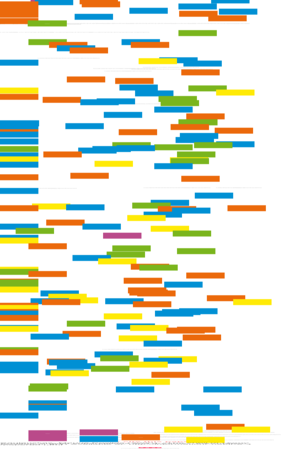 Competency in network use as a resource for citizenship: implications for the digital divide
Competency in network use as a resource for citizenship: implications for the digital divide Dise�o y desarrollo de una plataforma digital de apoyo a la docencia y a la investigaci�n en Archivos Electr�nicos: un portal tem�tico
Dise�o y desarrollo de una plataforma digital de apoyo a la docencia y a la investigaci�n en Archivos Electr�nicos: un portal tem�tico The spell of HOMO IRRETITUS:amidst superstitions and dreams
The spell of HOMO IRRETITUS:amidst superstitions and dreams National Information Infrastructure and the realization of Singapore IT2000 initiative
National Information Infrastructure and the realization of Singapore IT2000 initiative Small worlds, lifeworlds, and information: the ramifications of the information behaviour of social groups in public policy and the public sphere
Small worlds, lifeworlds, and information: the ramifications of the information behaviour of social groups in public policy and the public sphere Benchmarking strategic engagement with information literacy in higher education: towards a working model.
Benchmarking strategic engagement with information literacy in higher education: towards a working model. Information management and technology strategy in healthcare: local timescales and national requirements
Information management and technology strategy in healthcare: local timescales and national requirements Strategy, information processing and scorecard models in the UK financial services sector
Strategy, information processing and scorecard models in the UK financial services sector National Information Infrastructure and the realization of Singapore IT2000 initiative
National Information Infrastructure and the realization of Singapore IT2000 initiative Document architecture draws a circle: on document architecture and its relation to library and information science education and research
Document architecture draws a circle: on document architecture and its relation to library and information science education and research Activity Theory in information systems research and practice - theoretical underpinnings for an information systems development method
Activity Theory in information systems research and practice - theoretical underpinnings for an information systems development method Agricultural information systems and communication networks: the case of dairy farmers in the Samsun province of Turkey
Agricultural information systems and communication networks: the case of dairy farmers in the Samsun province of Turkey Bringing human information behaviour into information systems research: an application of systems modelling
Bringing human information behaviour into information systems research: an application of systems modelling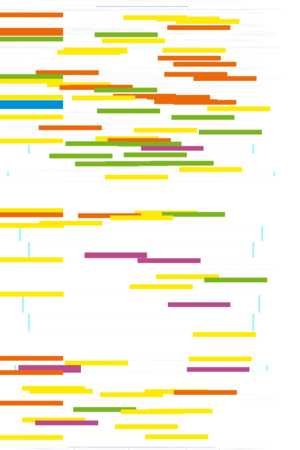 Chinese cultural and power perspective on information systems: technological frames and re-frames
Chinese cultural and power perspective on information systems: technological frames and re-frames Critical realism and information systems research: why bother with philosophy?
Critical realism and information systems research: why bother with philosophy? Critical theory as a foundation for pragmatic information systems design
Critical theory as a foundation for pragmatic information systems design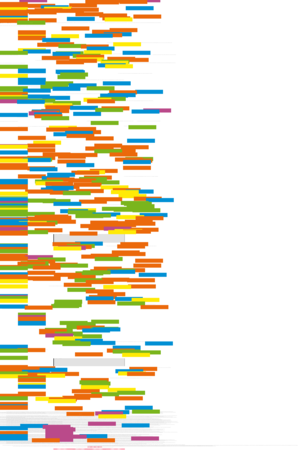 Forms of labour in information systems
Forms of labour in information systems From information behaviour research to the design of information systems: the Cognitive Work Analysis framework
From information behaviour research to the design of information systems: the Cognitive Work Analysis framework An improved method of studying user-system interaction by combining transaction log analysis and protocol analysis
An improved method of studying user-system interaction by combining transaction log analysis and protocol analysis Information and business performance: a study of information systems and services in high-performing companies
Information and business performance: a study of information systems and services in high-performing companies "Information Seeking in Context" and the development of information systems
"Information Seeking in Context" and the development of information systems Maintaining Web cache coherency
Maintaining Web cache coherency Operational use of electronic records in police work
Operational use of electronic records in police work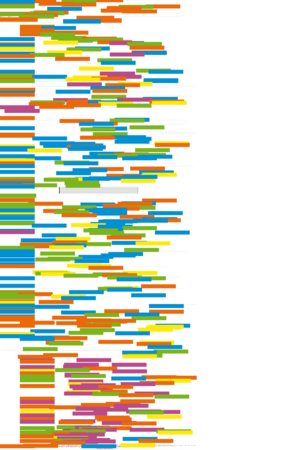 The status of the IS field: historical perspective and practical orientation
The status of the IS field: historical perspective and practical orientation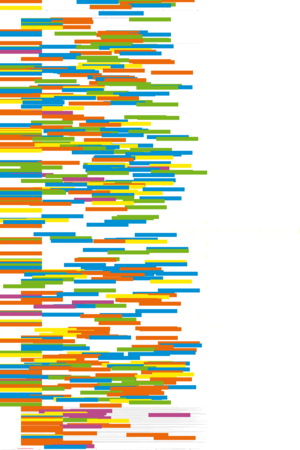 Systems for the management of information in a university context: an investigation of user need.
Systems for the management of information in a university context: an investigation of user need.Internet information systems
knowledge-based systems
mobile information systems
 Information systems strategy formation in higher education institutions
Information systems strategy formation in higher education institutions An empirical study of the effect of information technology expenditures on student achievement
An empirical study of the effect of information technology expenditures on student achievement Information synergy as the catalyst between information technology capability and innovativeness: empirical evidence from the financial service sector
Information synergy as the catalyst between information technology capability and innovativeness: empirical evidence from the financial service sector Information technology adoption for service innovation practices and competitive advantage: the case of financial firms
Information technology adoption for service innovation practices and competitive advantage: the case of financial firms Mapping techno-literary spaces: adapting multiple correspondence analysis for literature and art informatics.
Mapping techno-literary spaces: adapting multiple correspondence analysis for literature and art informatics. Access to electronic resources by visually impaired people
Access to electronic resources by visually impaired people Analysis of information sources representation for financial product design: new perspectives for information seeking and use behaviour.
Analysis of information sources representation for financial product design: new perspectives for information seeking and use behaviour. Beyond usage: understanding the use of electronic journals on the basis of information activity analysis
Beyond usage: understanding the use of electronic journals on the basis of information activity analysis Community problem-solving framed as a distributed information use environment: bridging research and practice
Community problem-solving framed as a distributed information use environment: bridging research and practice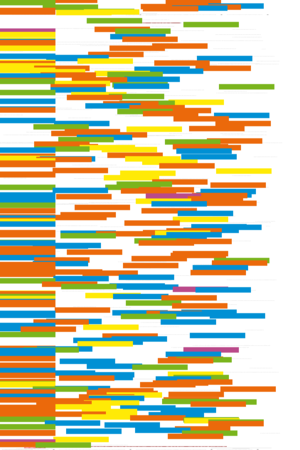 Conceptualizing the personal outcomes of information
Conceptualizing the personal outcomes of information Epistemic work and knowing in practice as conceptualizations of information use
Epistemic work and knowing in practice as conceptualizations of information use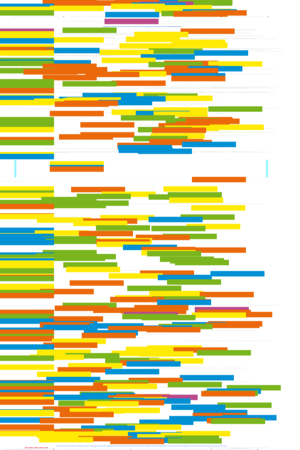 How are records used in organizations?
How are records used in organizations? The information condition: information resources and use in labour, work and action
The information condition: information resources and use in labour, work and action Information use and secondary school students: a model for understanding plagiarism
Information use and secondary school students: a model for understanding plagiarism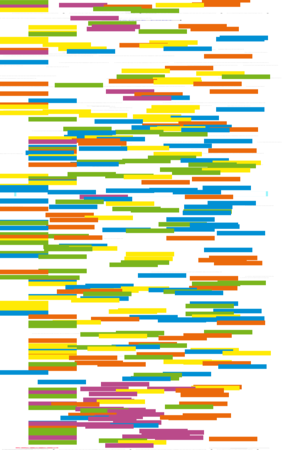 The nature of information and its effective use in rural development
The nature of information and its effective use in rural development The role of information in a lifetime process – a model of weight maintenance by women over long time periods
The role of information in a lifetime process – a model of weight maintenance by women over long time periods Seeking relevance in academic information use
Seeking relevance in academic information use Speaking of users: on user discourses in the field of public libraries
Speaking of users: on user discourses in the field of public libraries Three looks at users: a comparison of methods for studying digital library use
Three looks at users: a comparison of methods for studying digital library use Use of information sources by cancer patients: results of a systematic review of the research literature
Use of information sources by cancer patients: results of a systematic review of the research literature Where does the information come from? Information source use patterns in Wikipedia
Where does the information come from? Information source use patterns in Wikipedia Young people's perceptions and usage of Wikipedia
Young people's perceptions and usage of Wikipedia Metodologías para el desarrollo de Interfaces Visuales de Recuperación de Información: análisis y comparación
Metodologías para el desarrollo de Interfaces Visuales de Recuperación de Información: análisis y comparación Human issues of library and information work
Human issues of library and information work Information work analysis: an approach to research on information interactions and information behaviour in context
Information work analysis: an approach to research on information interactions and information behaviour in context Information synergy as the catalyst between information technology capability and innovativeness: empirical evidence from the financial service sector
Information synergy as the catalyst between information technology capability and innovativeness: empirical evidence from the financial service sector Information technology adoption for service innovation practices and competitive advantage: the case of financial firms
Information technology adoption for service innovation practices and competitive advantage: the case of financial firms Business information culture: a qualitative study of the information culture in the Finnish insurance industry
Business information culture: a qualitative study of the information culture in the Finnish insurance industry The ethics of DeCSS posting: towards assessing the morality of the Internet posting of DVD copyright circumvention software
The ethics of DeCSS posting: towards assessing the morality of the Internet posting of DVD copyright circumvention software Intellectual property rights vs. public access rights: ethical aspects of the DeCSS decryption program
Intellectual property rights vs. public access rights: ethical aspects of the DeCSS decryption program Study of interdisciplinarity in chemistry research based on the production of Puerto Rican scientists 1992-2001
Study of interdisciplinarity in chemistry research based on the production of Puerto Rican scientists 1992-2001 Censura y tolerancia del material sexualmente expl�cito: la opini�n de los estudiantes universitarios de pregrado
Censura y tolerancia del material sexualmente expl�cito: la opini�n de los estudiantes universitarios de pregrado Designing Internet research assignments: building a framework for instructor collaboration
Designing Internet research assignments: building a framework for instructor collaboration The effectiveness of Web search engines to index new sites from different countries
The effectiveness of Web search engines to index new sites from different countries Enthusiastic, realistic and critical: discourses of Internet use in the context of everyday life information seeking
Enthusiastic, realistic and critical: discourses of Internet use in the context of everyday life information seeking Finding competitive intelligence on Internet start-up companies: a study of secondary resource use and information-seeking processes
Finding competitive intelligence on Internet start-up companies: a study of secondary resource use and information-seeking processes A gender perspective on Internet use: consequences for information seeking
A gender perspective on Internet use: consequences for information seeking The impacts of Internet knowledge on college students' intention to continue to use the Internet
The impacts of Internet knowledge on college students' intention to continue to use the Internet Information seeking by blind and sight impaired citizens: an ecological study
Information seeking by blind and sight impaired citizens: an ecological study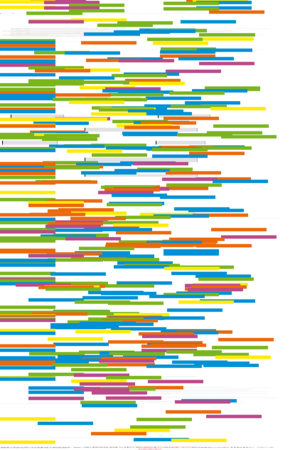 Public use of the Internet at Chester library, UK.
Public use of the Internet at Chester library, UK. Seeking information about health and lifestyle on the Internet
Seeking information about health and lifestyle on the Internet Students seeking information for their Master's thesis: the effect of the Internet
Students seeking information for their Master's thesis: the effect of the Internet The Social Science Information Gateway: putting theory into practice.
The Social Science Information Gateway: putting theory into practice. An Internet Information System for GPs
An Internet Information System for GPs Intranets in French firms: evolutions and revolutions.
Intranets in French firms: evolutions and revolutions. Information-seeking behaviour of Iranian extension managers and specialists
Information-seeking behaviour of Iranian extension managers and specialists Iranian engineers' information needs and seeking habits: an agro-industry company experience
Iranian engineers' information needs and seeking habits: an agro-industry company experience Copyright protection in Israel: a reality of being 'pushed into the corner'
Copyright protection in Israel: a reality of being 'pushed into the corner' Immigrants' information needs: their role in the absorption process
Immigrants' information needs: their role in the absorption process Information sharing between different groups: a qualitative study of information service to business in Japanese public libraries
Information sharing between different groups: a qualitative study of information service to business in Japanese public libraries Satisfaction and perception of usefulness among users of business information services in Japan
Satisfaction and perception of usefulness among users of business information services in Japan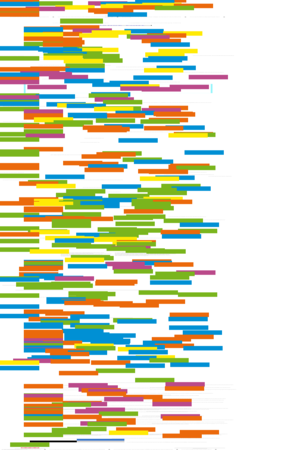 The influence that JavaScript™ has on the visibility of a Website to search engines - a pilot study
The influence that JavaScript™ has on the visibility of a Website to search engines - a pilot study The role of the research phase in information seeking behaviour of Jewish scholars: a modification of Ellis's behavioural characteristics.
The role of the research phase in information seeking behaviour of Jewish scholars: a modification of Ellis's behavioural characteristics. The information professional's profile: an analysis of Brazilian job vacancies on the Internet
The information professional's profile: an analysis of Brazilian job vacancies on the Internet A profession in transition: towards development and implementation of standards for visual resources management. Part A - the organization's perspective
A profession in transition: towards development and implementation of standards for visual resources management. Part A - the organization's perspective Análisis comparativo de la calidad de las revistas científico-técnicas españolas de Ciencias de la Actividad Física y el Deporte (2000-2005)
Análisis comparativo de la calidad de las revistas científico-técnicas españolas de Ciencias de la Actividad Física y el Deporte (2000-2005) Las revistas argentinas de Ciencias Antropológicas: visibilidad en bases de datos internacionales
Las revistas argentinas de Ciencias Antropológicas: visibilidad en bases de datos internacionales A selective review of knowledge-based approaches to database design.
A selective review of knowledge-based approaches to database design. Converting a controlled vocabulary into an ontology: the case of GEM
Converting a controlled vocabulary into an ontology: the case of GEM Do citation systems represent theories of truth?
Do citation systems represent theories of truth? Where is meaning when form is gone? Knowledge representation on the Web
Where is meaning when form is gone? Knowledge representation on the Web Forms of labour in information systems
Forms of labour in information systems Electronic publishing in librarianship and information science in Latin America � a step towards development?
Electronic publishing in librarianship and information science in Latin America � a step towards development? Producci�n latinoamericana en biblioteconom�a y documentaci�n en el Social Science Citation Index (SSCI) 1966-2003
Producci�n latinoamericana en biblioteconom�a y documentaci�n en el Social Science Citation Index (SSCI) 1966-2003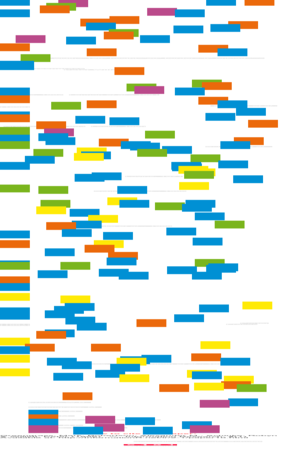 Processing morphological variants in searches of Latin text
Processing morphological variants in searches of Latin text Focus on further education of librarians in Latvia
Focus on further education of librarians in Latvia Domain knowledge, search behaviour, and search effectiveness of engineering and science students: an exploratory study
Domain knowledge, search behaviour, and search effectiveness of engineering and science students: an exploratory study Information seeking and students studying for professional careers: the cases of engineering and law students in Ireland
Information seeking and students studying for professional careers: the cases of engineering and law students in Ireland The impact of personality and approaches to learning on information behaviour.
The impact of personality and approaches to learning on information behaviour. The social construction of the world of gay and lesbian people and their information behaviour
The social construction of the world of gay and lesbian people and their information behaviour Training information services specialists in the less-favoured regions of the European Union (TRAIN-ISS)
Training information services specialists in the less-favoured regions of the European Union (TRAIN-ISS) The changing role of subjects connected with book history and publishing in the education of library specialists in Estonia
The changing role of subjects connected with book history and publishing in the education of library specialists in Estonia Distance education as a new possibility for librarians in Estonia
Distance education as a new possibility for librarians in Estonia Document architecture draws a circle: on document architecture and its relation to library and information science education and research
Document architecture draws a circle: on document architecture and its relation to library and information science education and research Electronic publishing in librarianship and information science in Latin America � a step towards development?
Electronic publishing in librarianship and information science in Latin America � a step towards development? Focus on further education of librarians in Latvia
Focus on further education of librarians in Latvia Human issues of library and information work
Human issues of library and information work Information professionals in Brazil: core competencies and professional development
Information professionals in Brazil: core competencies and professional development Library legislation and free access to information as new topics in library and information science education
Library legislation and free access to information as new topics in library and information science education Library legislation and free access to information as new topics in library and information science education
Library legislation and free access to information as new topics in library and information science education Discipline, availability of electronic resources and the use of Finnish National Electronic Library - FinELib.
Discipline, availability of electronic resources and the use of Finnish National Electronic Library - FinELib. Library usage patterns in the electronic information environment
Library usage patterns in the electronic information environment Mapping techno-literary spaces: adapting multiple correspondence analysis for literature and art informatics.
Mapping techno-literary spaces: adapting multiple correspondence analysis for literature and art informatics. The current state of decision support in Lithuanian business
The current state of decision support in Lithuanian business Information needs research in Russia and Lithuania, 1965-2003
Information needs research in Russia and Lithuania, 1965-2003 Lithuanian on-line periodicals on the World Wide Web
Lithuanian on-line periodicals on the World Wide Web Total quality management, British Standard accreditation, Investors in People and academic libraries
Total quality management, British Standard accreditation, Investors in People and academic libraries The current state of decision support in Lithuanian business
The current state of decision support in Lithuanian business Information as a tool for management decision making: a case study of Singapore
Information as a tool for management decision making: a case study of Singapore Investigating the management information needs of academic heads of departments: a critical success factors approach
Investigating the management information needs of academic heads of departments: a critical success factors approach Information in organizations: directions for information management
Information in organizations: directions for information management The management information needs of academic Heads of Department in universities in the United Kingdom
The management information needs of academic Heads of Department in universities in the United Kingdom Managers look to the social network to seek information
Managers look to the social network to seek information MISCO: A Conceptual Model for MIS Implementation in SMEs
MISCO: A Conceptual Model for MIS Implementation in SMEs Systems for the management of information in a university context: an investigation of user need
Systems for the management of information in a university context: an investigation of user need Information barriers and Maori secondary school students
Information barriers and Maori secondary school students
 The complementary relationship between the Internet and traditional mass media: the case of online news and information.
The complementary relationship between the Internet and traditional mass media: the case of online news and information. El efecto de las noticias de alto impacto en los servicios de documentación: el caso del atentado terrorista del 11 de marzo de 2004 en Madrid en la prensa española.
El efecto de las noticias de alto impacto en los servicios de documentación: el caso del atentado terrorista del 11 de marzo de 2004 en Madrid en la prensa española. Media credibility and cognitive authority. The case of seeking orienting information/td>
Media credibility and cognitive authority. The case of seeking orienting information/td>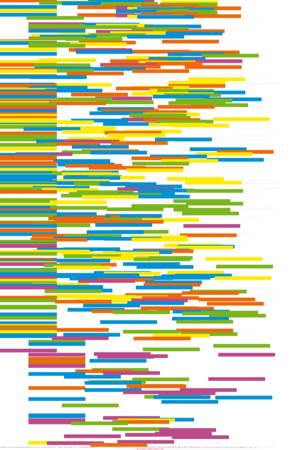 The public reception of the Research Assessment Exercise 1996
The public reception of the Research Assessment Exercise 1996 An Internet information system for GPs
An Internet information system for GPs Archives, libraries and museums as communicators of memory in European Union projects.
Archives, libraries and museums as communicators of memory in European Union projects. Making sense of the Web: a metaphorical approach
Making sense of the Web: a metaphorical approach Information behaviour of migrant Hispanic farm workers and their families in the Pacific Northwest
Information behaviour of migrant Hispanic farm workers and their families in the Pacific Northwest Information on the move: the use of mobile information systems by UK Police Forces
Information on the move: the use of mobile information systems by UK Police Forces Operational use of electronic records in police work
Operational use of electronic records in police work Spreading the load: mobile information and communications technologies and their effect on information overload
Spreading the load: mobile information and communications technologies and their effect on information overload Molecular diversity techniques for chemical databases
Molecular diversity techniques for chemical databases The information environment of researchers in molecular medicine
The information environment of researchers in molecular medicine Processing morphological variants in searches of Latin text
Processing morphological variants in searches of Latin text Synchronised Object Retrieval: the enhancement of information retrieval performance in multimedia environments using synchronisation protocols.
Synchronised Object Retrieval: the enhancement of information retrieval performance in multimedia environments using synchronisation protocols. Mapping techno-literary spaces: adapting multiple correspondence analysis for literature and art informatics.
Mapping techno-literary spaces: adapting multiple correspondence analysis for literature and art informatics. Citation counts and the Research Assessment Exercise, part VI: Unit of assessment 67 (music)
Citation counts and the Research Assessment Exercise, part VI: Unit of assessment 67 (music) The role of computer-mediated communication in the research process of music scholars: an exploratory investigation
The role of computer-mediated communication in the research process of music scholars: an exploratory investigation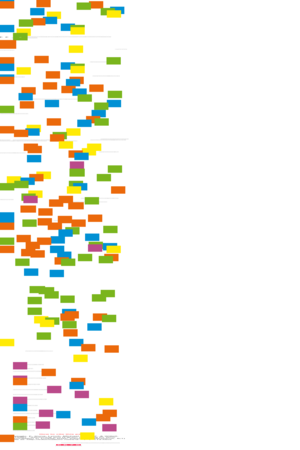 Stemming and N-gram matching for term conflation in Turkish texts
Stemming and N-gram matching for term conflation in Turkish texts Targeted s-gram matching: a novel n-gram matching technique for cross- and mono-lingual word form variants
Targeted s-gram matching: a novel n-gram matching technique for cross- and mono-lingual word form variants On identifying name equivalences in digital libraries
On identifying name equivalences in digital libraries Information management and technology strategy in healthcare: local timescales and national requirements
Information management and technology strategy in healthcare: local timescales and national requirements National Information Infrastructure and the realization of Singapore IT2000 initiative
National Information Infrastructure and the realization of Singapore IT2000 initiative Competency in network use as a resource for citizenship: implications for the digital divide
Competency in network use as a resource for citizenship: implications for the digital divide Information behaviour in research network building by relocated scholars in Swedish higher education: a report on a pilot project
Information behaviour in research network building by relocated scholars in Swedish higher education: a report on a pilot project A social dynamics of the development of community network: problems raised by a case of community network development.
A social dynamics of the development of community network: problems raised by a case of community network development. Using newsgroup headers to predict document relevance
Using newsgroup headers to predict document relevance Online newspapers: the impact of culture, sex, and age on the perceived importance of specified quality factors
Online newspapers: the impact of culture, sex, and age on the perceived importance of specified quality factors Which types of news story attract bloggers?
Which types of news story attract bloggers? An evaluation of New Zealand political party Websites
An evaluation of New Zealand political party Websites Information barriers and Maori secondary school students
Information barriers and Maori secondary school students Non-hierarchic document clustering using a genetic algorithm.
Non-hierarchic document clustering using a genetic algorithm. Using participant or non-participant observation to explain information behaviour
Using participant or non-participant observation to explain information behaviour Word variant identification in Old French
Word variant identification in Old French Access to health information: perception of barriers among elderly in a language minority
Access to health information: perception of barriers among elderly in a language minority The mutual shaping of online and offline social relationships
The mutual shaping of online and offline social relationships Accounting for users' inflated assessments of on-line catalogue search performance and usefulness: an experimental study
Accounting for users' inflated assessments of on-line catalogue search performance and usefulness: an experimental study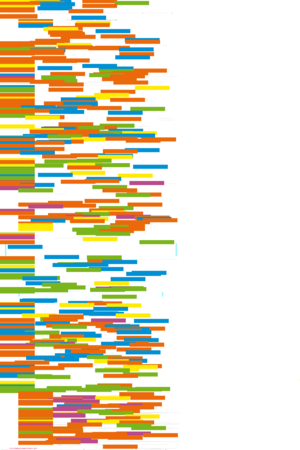 User satisfaction with referrals at a collaborative virtual reference service
User satisfaction with referrals at a collaborative virtual reference service The Electronic Journal of Information Technology in Construction (ITcon): an open access journal using an un-paid, volunteer-based organization.
The Electronic Journal of Information Technology in Construction (ITcon): an open access journal using an un-paid, volunteer-based organization.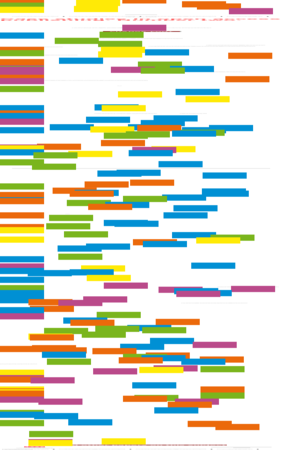 Medical Education Online: a case study of an open access journal in health professional education.
Medical Education Online: a case study of an open access journal in health professional education. Open access on a zero budget: a case study of Postcolonial Text
Open access on a zero budget: a case study of Postcolonial Text Open access publishing in Indian premier research institutions
Open access publishing in Indian premier research institutions Open access to scientific publications - an analysis of the barriers to change
Open access to scientific publications - an analysis of the barriers to change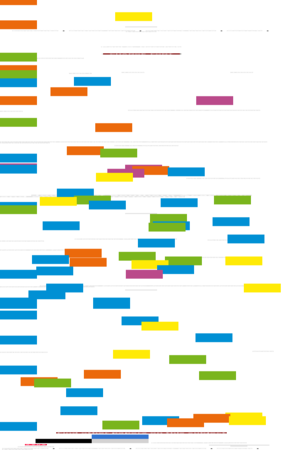 The 'platinum route' to open access: a case study of E-JASL: The Electronic Journal of Academic and Special Librarianship
The 'platinum route' to open access: a case study of E-JASL: The Electronic Journal of Academic and Special Librarianship Scientific journal publishing: yearly volume and open access availability
Scientific journal publishing: yearly volume and open access availability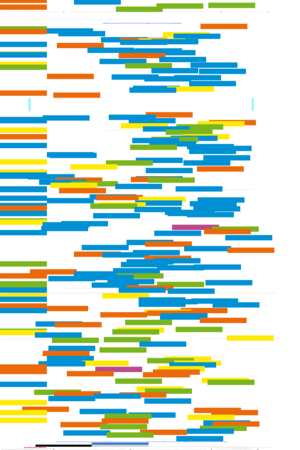 Taking the plunge: open access at the Canadian Journal of Sociology
Taking the plunge: open access at the Canadian Journal of Sociology Implantaci�n de la Open Archives Initiative en Espa�a
Implantaci�n de la Open Archives Initiative en Espa�a Communal resources in open source software development
Communal resources in open source software development Factors influencing environmental scanning in the organizational context
Factors influencing environmental scanning in the organizational context Five things to change first when academic libraries embrace Web access
Five things to change first when academic libraries embrace Web access Re-engineering change in higher education
Re-engineering change in higher education Using information technology to support knowledge conversion processes
Using information technology to support knowledge conversion processes Environmental scanning as information seeking and organizational learning
Environmental scanning as information seeking and organizational learning Scanning and vicarious learning from adverse events in health care
Scanning and vicarious learning from adverse events in health care Information needs and information behaviour of patients and family members in a cancer palliative care setting
Information needs and information behaviour of patients and family members in a cancer palliative care setting The impacts of Internet knowledge on college students' intention to continue to use the Internet
The impacts of Internet knowledge on college students' intention to continue to use the Internet Information needs and information behaviour of patients and family members in a cancer palliative care setting
Information needs and information behaviour of patients and family members in a cancer palliative care setting Household information practices: how and why householders process and manage information
Household information practices: how and why householders process and manage information How users organize electronic files on their workstations in the office environment: a preliminary study of personal information organization behaviour
How users organize electronic files on their workstations in the office environment: a preliminary study of personal information organization behaviour Five personality dimensions and their influence on information behaviour
Five personality dimensions and their influence on information behaviour The impact of personality and approaches to learning on information behaviour.
The impact of personality and approaches to learning on information behaviour. Personality traits and group-based information behaviour: an exploratory study
Personality traits and group-based information behaviour: an exploratory study Experiencing information seeking and learning: a study of the interaction between two phenomena
Experiencing information seeking and learning: a study of the interaction between two phenomena Flickr: a first look at user behaviour in the context of photography as serious leisure
Flickr: a first look at user behaviour in the context of photography as serious leisure Information use and secondary school students: a model for understanding plagiarism
Information use and secondary school students: a model for understanding plagiarism The information needs of female police officers involved in undercover prostitution work
The information needs of female police officers involved in undercover prostitution work Information on the move: the use of mobile information systems by UK Police Forces
Information on the move: the use of mobile information systems by UK Police Forces Operational use of electronic records in police work
Operational use of electronic records in police work An evaluation of New Zealand political party Websites
An evaluation of New Zealand political party Websites Censura y tolerancia del material sexualmente expl�cito: la opini�n de los estudiantes universitarios de pregrado
Censura y tolerancia del material sexualmente expl�cito: la opini�n de los estudiantes universitarios de pregrado Constructing Web subject gateways using Dublin Core, the Resource Description Framework and Topic Maps
Constructing Web subject gateways using Dublin Core, the Resource Description Framework and Topic Maps Dise�o y desarrollo de una plataforma digital de apoyo a la docencia y a la investigaci�n en Archivos Electr�nicos: un portal tem�tico
Dise�o y desarrollo de una plataforma digital de apoyo a la docencia y a la investigaci�n en Archivos Electr�nicos: un portal tem�tico My e-journal - exploring the usefulness of personalized access to scholarly articles and services.
My e-journal - exploring the usefulness of personalized access to scholarly articles and services. Community problem-solving framed as a distributed information use environment: bridging research and practice
Community problem-solving framed as a distributed information use environment: bridging research and practice Information professionals in Brazil: core competencies and professional development
Information professionals in Brazil: core competencies and professional development An improved method of studying user-system interaction by combining transaction log analysis and protocol analysis
An improved method of studying user-system interaction by combining transaction log analysis and protocol analysis The impacts of Internet knowledge on college students' intention to continue to use the Internet
The impacts of Internet knowledge on college students' intention to continue to use the Internet Assessment of information needs in public health in Germany: results of a nationwide survey
Assessment of information needs in public health in Germany: results of a nationwide survey La alfabetización informacional en bibliotecas públicas. Situación actual y propuestas para una agenda de desarrollo
La alfabetización informacional en bibliotecas públicas. Situación actual y propuestas para una agenda de desarrollo Imposed information seeking in public libraries and school library media centers: a common behaviour?
Imposed information seeking in public libraries and school library media centers: a common behaviour? Information sharing between different groups: a qualitative study of information service to business in Japanese public libraries
Information sharing between different groups: a qualitative study of information service to business in Japanese public libraries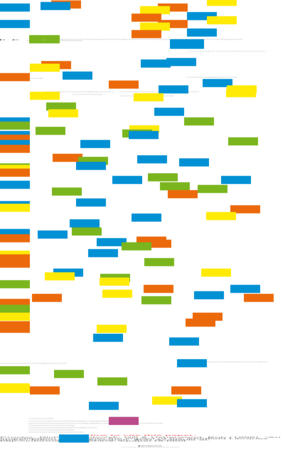 An investigation into the impact of the Sheffield Libraries strike
An investigation into the impact of the Sheffield Libraries strike Public use of the Internet at Chester library, UK.
Public use of the Internet at Chester library, UK. Satisfaction and perception of usefulness among users of business information services in Japan
Satisfaction and perception of usefulness among users of business information services in Japan Serendipity dimensions and users' information behaviour in the physical library interface
Serendipity dimensions and users' information behaviour in the physical library interface Speaking of users: on user discourses in the field of public libraries
Speaking of users: on user discourses in the field of public libraries What defines 'enough' information? How policy workers make judgements and decisions during information seeking: preliminary results from an exploratory study
What defines 'enough' information? How policy workers make judgements and decisions during information seeking: preliminary results from an exploratory study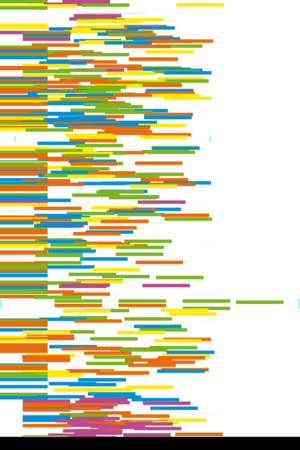 Towards a stakeholder model for the co-production of the public-sector information system
Towards a stakeholder model for the co-production of the public-sector information system The changing role of subjects connected with book history and publishing in the education of library specialists in Estonia
The changing role of subjects connected with book history and publishing in the education of library specialists in Estonia The Electronic Journal of Information Technology in Construction (ITcon): an open access journal using an un-paid, volunteer-based organization.
The Electronic Journal of Information Technology in Construction (ITcon): an open access journal using an un-paid, volunteer-based organization. Medical Education Online: a case study of an open access journal in health professional education.
Medical Education Online: a case study of an open access journal in health professional education.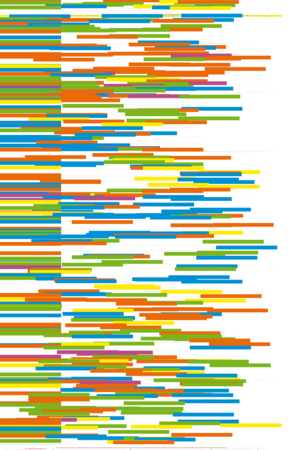 A model of scientific communication as a global distributed information system
A model of scientific communication as a global distributed information system Online newspapers: the impact of culture, sex, and age on the perceived importance of specified quality factors
Online newspapers: the impact of culture, sex, and age on the perceived importance of specified quality factors Open access publishing in Indian premier research institutions
Open access publishing in Indian premier research institutions Open access to scientific publications - an analysis of the barriers to change
Open access to scientific publications - an analysis of the barriers to change The 'platinum route' to open access: a case study of E-JASL: The Electronic Journal of Academic and Special Librarianship
The 'platinum route' to open access: a case study of E-JASL: The Electronic Journal of Academic and Special Librarianship Publishing, bookselling and the World Wide Web
Publishing, bookselling and the World Wide Web Scientific journal publishing: yearly volume and open access availability
Scientific journal publishing: yearly volume and open access availability Scholarly communication, scholarly publication and the status of emerging formats
Scholarly communication, scholarly publication and the status of emerging formats The applicability of constructivist user studies: how can constructivist inquiry inform service providers and systems designers?
The applicability of constructivist user studies: how can constructivist inquiry inform service providers and systems designers? Business information culture: a qualitative study of the information culture in the Finnish insurance industry
Business information culture: a qualitative study of the information culture in the Finnish insurance industry Combining ethnographic and clickstream data to identify user Web browsing strategies
Combining ethnographic and clickstream data to identify user Web browsing strategies Generating and analysing data for applied research on emerging technologies: a grounded action learning approach
Generating and analysing data for applied research on emerging technologies: a grounded action learning approach Information seeking by blind and sight impaired citizens: an ecological study
Information seeking by blind and sight impaired citizens: an ecological study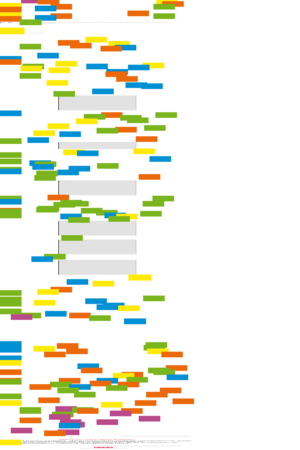 Navigational data: a graphical methodology to support qualitative analysis
Navigational data: a graphical methodology to support qualitative analysis Recent trends in user studies: action research and qualitative methods
Recent trends in user studies: action research and qualitative methods Validating coding for a theoretical model of information behaviour
Validating coding for a theoretical model of information behaviour Information quality assessment on the Web: an expression of behaviour
Information quality assessment on the Web: an expression of behaviour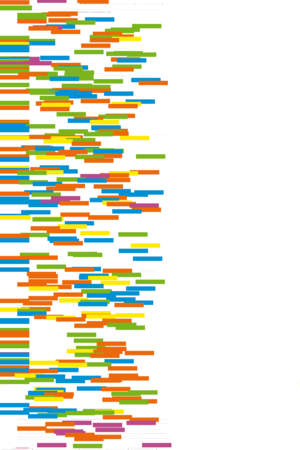 Education and training for records management in the electronic environment - the (re)search for an appropriate model
Education and training for records management in the electronic environment - the (re)search for an appropriate model How are records used in organizations?
How are records used in organizations? The information professional's profile: an analysis of Brazilian job vacancies on the Internet
The information professional's profile: an analysis of Brazilian job vacancies on the Internet Re-engineering change in higher education
Re-engineering change in higher education Reference group theory with implications for information studies: a theoretical essay,
Reference group theory with implications for information studies: a theoretical essay,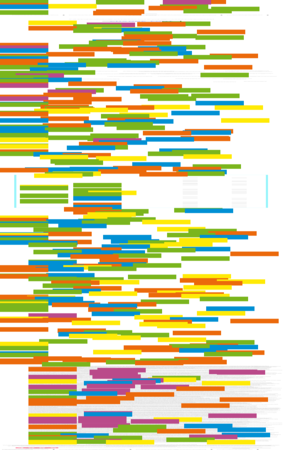 Relevance as process: judgements in the context of scholarly research
Relevance as process: judgements in the context of scholarly research Seeking relevance in academic information use
Seeking relevance in academic information use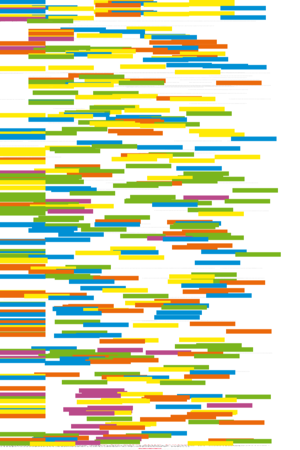 Situating relevance: exploring individual relevance assessments in context
Situating relevance: exploring individual relevance assessments in context Using newsgroup headers to predict document relevance
Using newsgroup headers to predict document relevance Citation counts and the Research Assessment Exercise, part VI: Unit of assessment 67 (music)
Citation counts and the Research Assessment Exercise, part VI: Unit of assessment 67 (music) The public reception of the Research Assessment Exercise 1996
The public reception of the Research Assessment Exercise 1996 Use of citation analysis to predict the outcome of the 2001 Research Assessment Exercise for Unit of Assessment (UoA) 61: Library and Information Management
Use of citation analysis to predict the outcome of the 2001 Research Assessment Exercise for Unit of Assessment (UoA) 61: Library and Information Management Using participant or non-participant observation to explain information behaviour
Using participant or non-participant observation to explain information behaviour Constructing Web subject gateways using Dublin Core, the Resource Description Framework and Topic Maps
Constructing Web subject gateways using Dublin Core, the Resource Description Framework and Topic Maps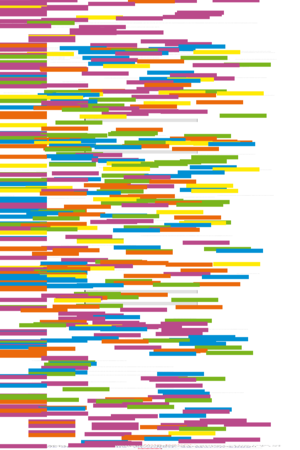 The role of motivation and risk behaviour in software development success
The role of motivation and risk behaviour in software development success The nature of information and its effective use in rural development
The nature of information and its effective use in rural development Information needs research in Russia and Lithuania, 1965-2003
Information needs research in Russia and Lithuania, 1965-2003 Bridging information requirements and information needs assessment: do scenarios and vignettes provide a link?
Bridging information requirements and information needs assessment: do scenarios and vignettes provide a link? Communicating research findings to library and information science practitioners: a study of ISIC papers from 1996 to 2000
Communicating research findings to library and information science practitioners: a study of ISIC papers from 1996 to 2000 Electronic journals and scholarly communication: a citation and reference study.
Electronic journals and scholarly communication: a citation and reference study. A model of scientific communication as a global distributed information system
A model of scientific communication as a global distributed information system Open access to scientific publications - an analysis of the barriers to change
Open access to scientific publications - an analysis of the barriers to change  Rhythms of being at ISIC - understanding the place of the ISIC conferences in information seeking research
Rhythms of being at ISIC - understanding the place of the ISIC conferences in information seeking research Scholarly communication in transition: computer scientists' information behaviour over twenty years
Scholarly communication in transition: computer scientists' information behaviour over twenty years Scholarly communication, scholarly publication and the status of emerging formats
Scholarly communication, scholarly publication and the status of emerging formats Scientific journal publishing: yearly volume and open access availability
Scientific journal publishing: yearly volume and open access availability Barriers to information seeking in school libraries: conflicts in perceptions and practice
Barriers to information seeking in school libraries: conflicts in perceptions and practice  From activity to learning: using cultural historical activity theory to model school library programmes and practices
From activity to learning: using cultural historical activity theory to model school library programmes and practices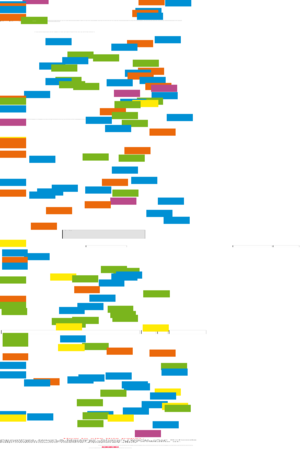 Are Schools Library Services equipped to survive in the Age of Information?
Are Schools Library Services equipped to survive in the Age of Information? Performance of Mexican scholarship holders in the production of scientific knowledge: from bibliometrics to science policy? (In Spanish: Desempe�o de becarios Mexicanos en la producci�n de conocimiento cientifico �de la bibliometria a la politica cientifica?)
Performance of Mexican scholarship holders in the production of scientific knowledge: from bibliometrics to science policy? (In Spanish: Desempe�o de becarios Mexicanos en la producci�n de conocimiento cientifico �de la bibliometria a la politica cientifica?) Strategy, information processing and scorecard models in the UK financial services sector
Strategy, information processing and scorecard models in the UK financial services sector Analysis of the similarity of the responses of Web search engines to user queries: a user perspective
Analysis of the similarity of the responses of Web search engines to user queries: a user perspective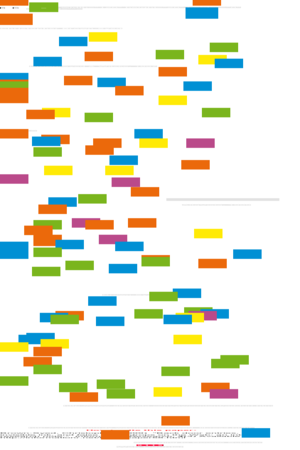 Back door entries, invisible ink, and false drops on the Web: in interim research note
Back door entries, invisible ink, and false drops on the Web: in interim research note The effect of query complexity on Web searching results
The effect of query complexity on Web searching results The effectiveness of Web search engines to index new sites from different countries
The effectiveness of Web search engines to index new sites from different countries Evaluation of three German search engines: Altavista.de, Google.de and Lycos.de
Evaluation of three German search engines: Altavista.de, Google.de and Lycos.de The influence that JavaScript™ has on the visibility of a Website to search engines - a pilot study
The influence that JavaScript™ has on the visibility of a Website to search engines - a pilot study The nature of meaning in the age of Google
The nature of meaning in the age of Google Search engines: a first step to finding information: preliminary findings from a study of observed searches.
Search engines: a first step to finding information: preliminary findings from a study of observed searches. Search features of digital libraries
Search features of digital libraries Selected results from a large study of Web searching: the Excite study
Selected results from a large study of Web searching: the Excite study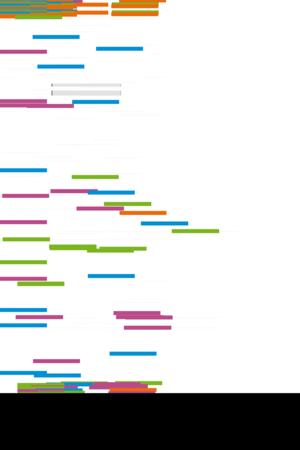 Sythesis and critical analysis of evaluations of the effectiveness of Web search engines. (In Spanish: S�ntesis y cr�tica de las evaluaciones de la efectividad de los motores de b�squeda en la Web)
Sythesis and critical analysis of evaluations of the effectiveness of Web search engines. (In Spanish: S�ntesis y cr�tica de las evaluaciones de la efectividad de los motores de b�squeda en la Web) Web search: how the Web has changed information retrieval
Web search: how the Web has changed information retrieval Fast surfing for availability or deep diving into quality - motivation and information seeking among middle and high school students
Fast surfing for availability or deep diving into quality - motivation and information seeking among middle and high school students Information barriers and Maori secondary school students
Information barriers and Maori secondary school students
 Information use and secondary school students: a model for understanding plagiarism
Information use and secondary school students: a model for understanding plagiarism Students' use of Web literacy skills and strategies: searching, reading and evaluating Web information
Students' use of Web literacy skills and strategies: searching, reading and evaluating Web information Young people's perceptions and usage of Wikipedia
Young people's perceptions and usage of Wikipedia D-Fussion: a semantic selective dissemination of information service for the research community in digital libraries.
D-Fussion: a semantic selective dissemination of information service for the research community in digital libraries. Information behaviour, health self-efficacy beliefs and health behaviour in Icelanders' everyday life
Information behaviour, health self-efficacy beliefs and health behaviour in Icelanders' everyday life A literature-based approach to annotation and browsing of Web resources
A literature-based approach to annotation and browsing of Web resources Forms of labour in information systems
Forms of labour in information systems Language engineering for the Semantic Web: a digital library for endangered languages.
Language engineering for the Semantic Web: a digital library for endangered languages. The necessity for information space mapping for information retrieval on the semantic web
The necessity for information space mapping for information retrieval on the semantic web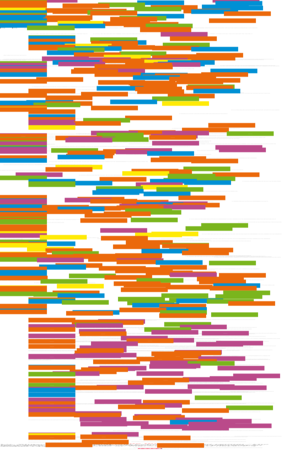 The Semantic Web: opportunities and challenges for next-generation Web applications
The Semantic Web: opportunities and challenges for next-generation Web applications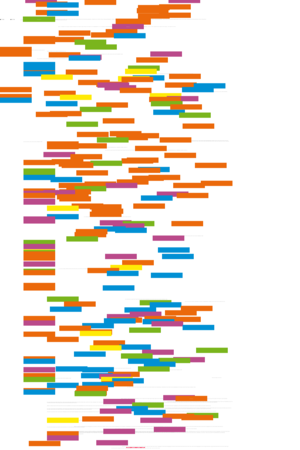 The Semantic Web, universalist ambition and some lessons from librarianship
The Semantic Web, universalist ambition and some lessons from librarianship Human studies and user studies: a call for methodological interdisciplinarity
Human studies and user studies: a call for methodological interdisciplinarity Serendipity dimensions and users' information behaviour in the physical library interface
Serendipity dimensions and users' information behaviour in the physical library interface An investigation into the impact of the Sheffield Libraries strike
An investigation into the impact of the Sheffield Libraries strike Information as a tool for management decision making: a case study of Singapore
Information as a tool for management decision making: a case study of Singapore National Information Infrastructure and the realization of Singapore IT2000 initiative
National Information Infrastructure and the realization of Singapore IT2000 initiative Synchronised Object Retrieval: the enhancement of information retrieval performance in multimedia environments using synchronisation protocols.
Synchronised Object Retrieval: the enhancement of information retrieval performance in multimedia environments using synchronisation protocols. Choosing people: the role of social capital in information seeking behaviour
Choosing people: the role of social capital in information seeking behaviour The impacts of Internet knowledge on college students' intention to continue to use the Internet
The impacts of Internet knowledge on college students' intention to continue to use the Internet A social network study of the growth of community among distance learners
A social network study of the growth of community among distance learners Choosing people: the role of social capital in information seeking behaviour
Choosing people: the role of social capital in information seeking behaviour The evolution of recent research on Catalan literature through the production of PhD theses: a bibliometric and social network analysis.
The evolution of recent research on Catalan literature through the production of PhD theses: a bibliometric and social network analysis. Managers look to the social network to seek information
Managers look to the social network to seek information The mutual shaping of online and offline social relationships
The mutual shaping of online and offline social relationships The Social Science Information Gateway: putting theory into practice.
The Social Science Information Gateway: putting theory into practice. Term based comparison metrics for controlled and uncontrolled indexing languages
Term based comparison metrics for controlled and uncontrolled indexing languages Information work analysis: an approach to research on information interactions and information behaviour in context
Information work analysis: an approach to research on information interactions and information behaviour in context The role of motivation and risk behaviour in software development success
The role of motivation and risk behaviour in software development success Using information technology to support knowledge conversion processes
Using information technology to support knowledge conversion processes The Social Science Information Gateway: putting theory into practice.
The Social Science Information Gateway: putting theory into practice. The nature of information and its effective use in rural development
The nature of information and its effective use in rural development Comunicaci�n de conocimiento. �Habilidad de los profesores universitarios?
Comunicaci�n de conocimiento. �Habilidad de los profesores universitarios? Comparative analysis of university-government-enterprise coauthorship networks in three scientific domains in the region of Madrid
Comparative analysis of university-government-enterprise coauthorship networks in three scientific domains in the region of Madrid El efecto de las noticias de alto impacto en los servicios de documentación: el caso del atentado terrorista del 11 de marzo de 2004 en Madrid en la prensa española.
El efecto de las noticias de alto impacto en los servicios de documentación: el caso del atentado terrorista del 11 de marzo de 2004 en Madrid en la prensa española. Implantación de la Open Archives Initiative en España
Implantación de la Open Archives Initiative en España Cataloguing in special libraries in the 1990s
Cataloguing in special libraries in the 1990s Análisis comparativo de la calidad de las revistas científico-técnicas españolas de Ciencias de la Actividad Física y el Deporte (2000-2005)
Análisis comparativo de la calidad de las revistas científico-técnicas españolas de Ciencias de la Actividad Física y el Deporte (2000-2005) Uma revisão dos algoritmos de radicalização em língua portuguesa
Uma revisão dos algoritmos de radicalização em língua portuguesa Stemming and N-gram matching for term conflation in Turkish texts
Stemming and N-gram matching for term conflation in Turkish texts A grounded theory study of the relationship between e-mail and burnout
A grounded theory study of the relationship between e-mail and burnout An investigation into the impact of the Sheffield Libraries strike
An investigation into the impact of the Sheffield Libraries strike Variables associated with environmental scanning among clinicians at substance abuse treatment clinics
Variables associated with environmental scanning among clinicians at substance abuse treatment clinics Information behaviour in research network building by relocated scholars in Swedish higher education: a report on a pilot project
Information behaviour in research network building by relocated scholars in Swedish higher education: a report on a pilot project Operational use of electronic records in police work
Operational use of electronic records in police work The publication activity of Region Västra Götaland: a bibliometric study of an administrative and political Swedish region during the period 1998-2006.
The publication activity of Region Västra Götaland: a bibliometric study of an administrative and political Swedish region during the period 1998-2006. Bringing human information behaviour into information systems research: an application of systems modelling
Bringing human information behaviour into information systems research: an application of systems modelling The duality of knowledge
The duality of knowledge Knowledge management: re-thinking information management and facing the challenge of managing tacit knowledge
Knowledge management: re-thinking information management and facing the challenge of managing tacit knowledge The nonsense of 'knowledge management'
The nonsense of 'knowledge management' A framework for understanding culture and its relationship to information behaviour: Taiwanese aborigines' information behaviour
A framework for understanding culture and its relationship to information behaviour: Taiwanese aborigines' information behaviour Information seeking research needs extension toward tasks and technology
Information seeking research needs extension toward tasks and technology Task based design of a digital work environment (DWE) for an academic community
Task based design of a digital work environment (DWE) for an academic community Task dimensions of user evaluations of information retrieval systems
Task dimensions of user evaluations of information retrieval systems Prospective history teachers' information behaviour in lesson planning
Prospective history teachers' information behaviour in lesson planning Designing Internet research assignments: building a framework for instructor collaboration
Designing Internet research assignments: building a framework for instructor collaboration The impacts of Internet knowledge on college students' intention to continue to use the Internet
The impacts of Internet knowledge on college students' intention to continue to use the Internet Health information for the teenage years: what do they want to know?
Health information for the teenage years: what do they want to know?  Telecentres and the provision of community based access to electronic information in everyday life in the UK
Telecentres and the provision of community based access to electronic information in everyday life in the UK Stemming and N-gram matching for term conflation in Turkish texts
Stemming and N-gram matching for term conflation in Turkish texts Textual and chemical information processing: different domains but similar algorithms
Textual and chemical information processing: different domains but similar algorithms Term based comparison metrics for controlled and uncontrolled indexing languages
Term based comparison metrics for controlled and uncontrolled indexing languages Intelligence obtained by applying data mining to a database of French theses on the subject of Brazil
Intelligence obtained by applying data mining to a database of French theses on the subject of Brazil Constructing Web subject gateways using Dublin Core, the Resource Description Framework and Topic Maps
Constructing Web subject gateways using Dublin Core, the Resource Description Framework and Topic Maps Total quality management, British Standard accreditation, Investors in People and academic libraries
Total quality management, British Standard accreditation, Investors in People and academic libraries Training information services specialists in the less-favoured regions of the European Union (TRAIN-ISS)
Training information services specialists in the less-favoured regions of the European Union (TRAIN-ISS) Training information services specialists in the less-favoured regions of the European Union (TRAIN-ISS)
Training information services specialists in the less-favoured regions of the European Union (TRAIN-ISS) An improved method of studying user-system interaction by combining transaction log analysis and protocol analysis
An improved method of studying user-system interaction by combining transaction log analysis and protocol analysis Agricultural information systems and communication networks: the case of dairy farmers in the Samsun province of Turkey
Agricultural information systems and communication networks: the case of dairy farmers in the Samsun province of Turkey Stemming and N-gram matching for term conflation in Turkish texts
Stemming and N-gram matching for term conflation in Turkish texts Autonomous, controlled and half-hearted. Unemployed people's motivations to seek information about jobs
Autonomous, controlled and half-hearted. Unemployed people's motivations to seek information about jobs Comparative analysis of university-government-enterprise coauthorship networks in three scientific domains in the region of Madrid
Comparative analysis of university-government-enterprise coauthorship networks in three scientific domains in the region of Madrid Domain knowledge, search behaviour, and search effectiveness of engineering and science students: an exploratory study
Domain knowledge, search behaviour, and search effectiveness of engineering and science students: an exploratory study Freshmen's use of library electronic resources and self-efficacy
Freshmen's use of library electronic resources and self-efficacy Information seeking and students studying for professional careers: the cases of engineering and law students in Ireland
Information seeking and students studying for professional careers: the cases of engineering and law students in Ireland Supporting undergraduate learning through the collaborative promotion of e-journals by library and academic departments
Supporting undergraduate learning through the collaborative promotion of e-journals by library and academic departments Task based design of a digital work environment (DWE) for an academic community
Task based design of a digital work environment (DWE) for an academic community Young people's perceptions and usage of Wikipedia
Young people's perceptions and usage of Wikipedia Criterios para la evaluaci�n de la usabilidad de los recursos educativos virtuales: un an�lisis desde la alfabetizaci�n en informaci�n
Criterios para la evaluaci�n de la usabilidad de los recursos educativos virtuales: un an�lisis desde la alfabetizaci�n en informaci�n Searching Usenet for virtual communities of practice: using mixed methods to identify the constructs of Wenger's theory
Searching Usenet for virtual communities of practice: using mixed methods to identify the constructs of Wenger's theory Accounting for users' inflated assessments of on-line catalogue search performance and usefulness: an experimental study
Accounting for users' inflated assessments of on-line catalogue search performance and usefulness: an experimental study Satisfaction and perception of usefulness among users of business information services in Japan
Satisfaction and perception of usefulness among users of business information services in Japan User satisfaction with referrals at a collaborative virtual reference service
User satisfaction with referrals at a collaborative virtual reference service Observing documentary reading by verbal protocol
Observing documentary reading by verbal protocol Bridging information requirements and information needs assessment: do scenarios and vignettes provide a link?
Bridging information requirements and information needs assessment: do scenarios and vignettes provide a link? A social network study of the growth of community among distance learners
A social network study of the growth of community among distance learners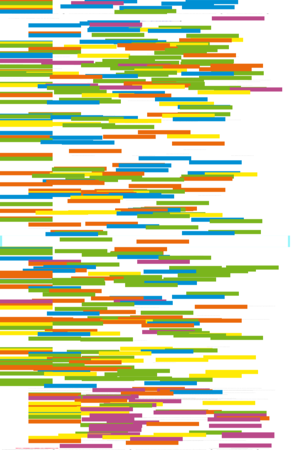 A model for the development of virtual communities for people with long-term, severe physical disabilities
A model for the development of virtual communities for people with long-term, severe physical disabilities Affording a place: the role of persistent structures in social navigation
Affording a place: the role of persistent structures in social navigation Field differences in the use and perceived usefulness of scholarly mailing lists
Field differences in the use and perceived usefulness of scholarly mailing lists Inscription and interpretation of text: a cultural hermeneutic examination of virtual community
Inscription and interpretation of text: a cultural hermeneutic examination of virtual community The mutual shaping of online and offline social relationships
The mutual shaping of online and offline social relationships Searching Usenet for virtual communities of practice: using mixed methods to identify the constructs of Wenger's theory
Searching Usenet for virtual communities of practice: using mixed methods to identify the constructs of Wenger's theory Small worlds, lifeworlds, and information: the ramifications of the information behaviour of social groups in public policy and the public sphere
Small worlds, lifeworlds, and information: the ramifications of the information behaviour of social groups in public policy and the public sphere Understanding on-line community: the affordances of virtual space
Understanding on-line community: the affordances of virtual space Ethnomethodology and the study of online communities: exploring the cyber streets
Ethnomethodology and the study of online communities: exploring the cyber streets Information exchange in virtual communities: a typology.
Information exchange in virtual communities: a typology. The challenge of automated tutoring in Web-based learning environments for information retrieval instruction
The challenge of automated tutoring in Web-based learning environments for information retrieval instruction Embedding online information resources in Virtual Learning Environments: some implications for lecturers and librarians of the move towards delivering teaching in the online environment
Embedding online information resources in Virtual Learning Environments: some implications for lecturers and librarians of the move towards delivering teaching in the online environment Evaluation of the JISC Information Environment: student perceptions of services
Evaluation of the JISC Information Environment: student perceptions of services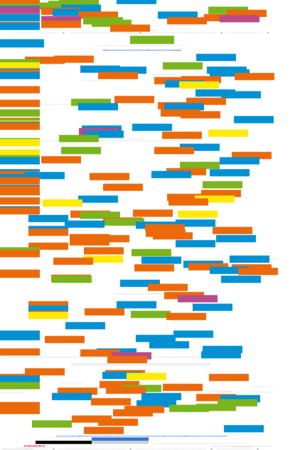 Students' collective knowledge construction in the virtual learning environment "TôLigado - your school interactive newspaper
Students' collective knowledge construction in the virtual learning environment "TôLigado - your school interactive newspaper The Library Visit Study: user experiences at the virtual reference desk
The Library Visit Study: user experiences at the virtual reference desk A profession in transition: towards development and implementation of standards for visual resources management. Part A - the organization's perspective
A profession in transition: towards development and implementation of standards for visual resources management. Part A - the organization's perspective Tensions and contradictions in the information behaviour of Board members of a voluntary organization
Tensions and contradictions in the information behaviour of Board members of a voluntary organization Everyday inclusive Web design: an activity perspective
Everyday inclusive Web design: an activity perspective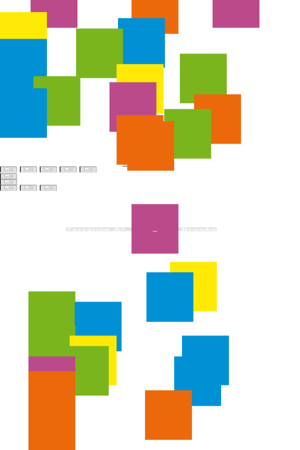 No bad web pages: reader empowerment and the Web
No bad web pages: reader empowerment and the Web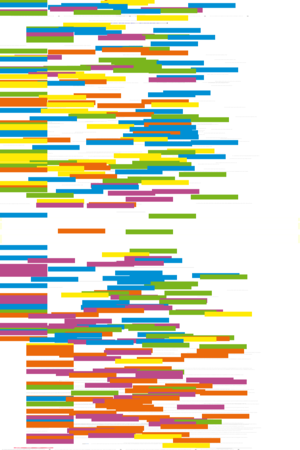 Some features of alt texts associated with images in Web pages
Some features of alt texts associated with images in Web pages Where does the information come from? Information source use patterns in Wikipedia
Where does the information come from? Information source use patterns in Wikipedia Young people's perceptions and usage of Wikipedia
Young people's perceptions and usage of Wikipedia Targeted s-gram matching: a novel n-gram matching technique for cross- and mono-lingual word form variants
Targeted s-gram matching: a novel n-gram matching technique for cross- and mono-lingual word form variants Word variant identification in Old French
Word variant identification in Old French An activity-theory-based model to analyse Web application requirements
An activity-theory-based model to analyse Web application requirements Analysis of the similarity of the responses of Web search engines to user queries: a user perspective
Analysis of the similarity of the responses of Web search engines to user queries: a user perspective An evaluation of New Zealand political party Websites
An evaluation of New Zealand political party Websites Assessing Website quality in context: retrieving information about genetically modified food on the Web
Assessing Website quality in context: retrieving information about genetically modified food on the Web Business use of the World Wide Web
Business use of the World Wide Web Business Use of The World Wide Web: a report on further investigations
Business Use of The World Wide Web: a report on further investigations Back door entries, invisible ink, and false drops on the Web: in interim research note
Back door entries, invisible ink, and false drops on the Web: in interim research note Combining ethnographic and clickstream data to identify user Web browsing strategies
Combining ethnographic and clickstream data to identify user Web browsing strategies Construcci�n de estrategias sistem�ticas para la b�squeda exhaustiva de informaci�n en Internet: un marco de toma de decisiones aplicado a la informaci�n sobre psicolog�a de la salud
Construcci�n de estrategias sistem�ticas para la b�squeda exhaustiva de informaci�n en Internet: un marco de toma de decisiones aplicado a la informaci�n sobre psicolog�a de la salud The development of children's Web searching skills - a non-linear model
The development of children's Web searching skills - a non-linear model Digital libraries and World Wide Web sites and page persistence.
Digital libraries and World Wide Web sites and page persistence. The effect of query complexity on Web searching results
The effect of query complexity on Web searching results Five things to change first when academic libraries embrace Web access
Five things to change first when academic libraries embrace Web access The influence that JavaScript™ has on the visibility of a Website to search engines - a pilot study
The influence that JavaScript™ has on the visibility of a Website to search engines - a pilot study Information behaviour that keeps found things found
Information behaviour that keeps found things found Information quality assessment on the Web: an expression of behaviour
Information quality assessment on the Web: an expression of behaviour Gender and learning attitudes in using Web-based science lessons
Gender and learning attitudes in using Web-based science lessons Lithuanian on-line periodicals on the World Wide Web
Lithuanian on-line periodicals on the World Wide Web A longitudinal study of Web pages continued: a consideration of document persistence
A longitudinal study of Web pages continued: a consideration of document persistence Maintaining Web cache coherency
Maintaining Web cache coherency Making sense of the Web: a metaphorical approach
Making sense of the Web: a metaphorical approach Perceived difficulty as a determinant of Web search success
Perceived difficulty as a determinant of Web search success Publishing, bookselling and the World Wide Web
Publishing, bookselling and the World Wide Web A review of Web information seeking research: considerations of method and foci of interest
A review of Web information seeking research: considerations of method and foci of interest Selected results from a large study of Web searching: the Excite study
Selected results from a large study of Web searching: the Excite study A study of the development of the digital ranch.
A study of the development of the digital ranch. Web information seeking by pages: an observational study of moving and stopping
Web information seeking by pages: an observational study of moving and stopping Web links as research indicators: analogues of citations?
Web links as research indicators: analogues of citations? Web search: how the Web has changed information retrieval
Web search: how the Web has changed information retrieval What is the title of a Web page? A study of Webography practice
What is the title of a Web page? A study of Webography practice What is this link doing here? Beginning a fine-grained process of identifying reasons for academic hyperlink creation
What is this link doing here? Beginning a fine-grained process of identifying reasons for academic hyperlink creation Where is meaning when form is gone? Knowledge representation on the Web
Where is meaning when form is gone? Knowledge representation on the Web Where is meaning when form is gone? Knowledge representation on the Web
Where is meaning when form is gone? Knowledge representation on the Web